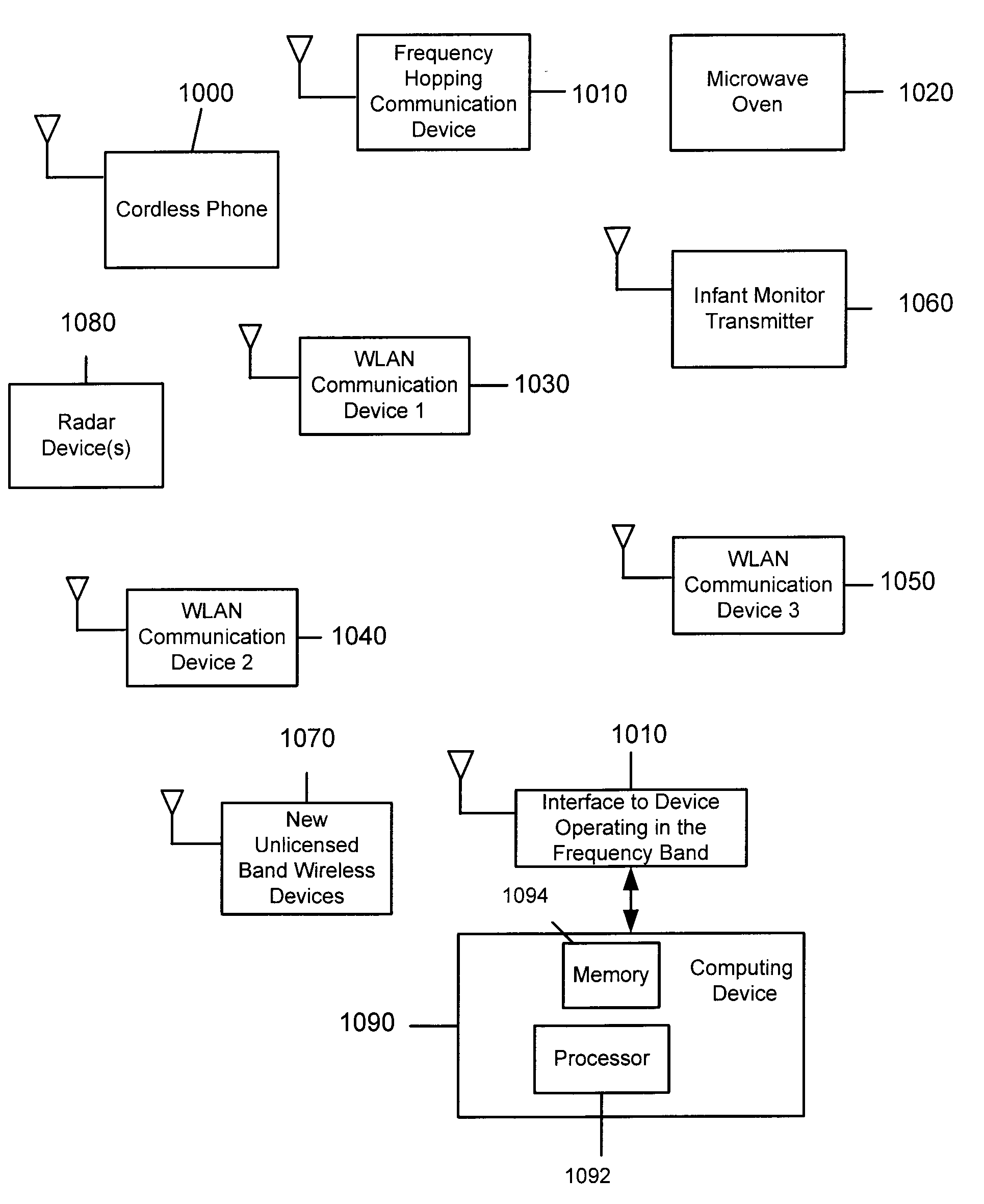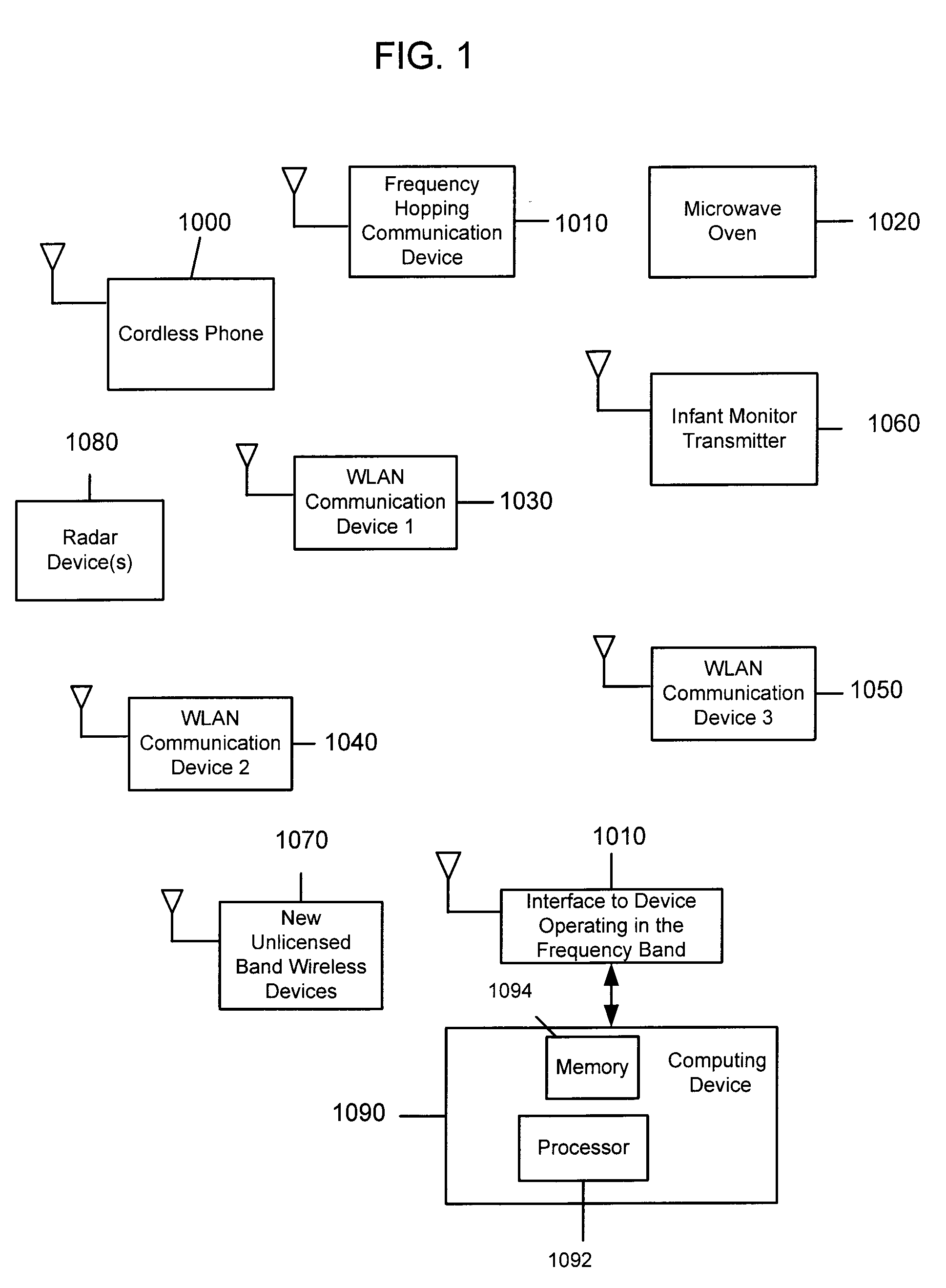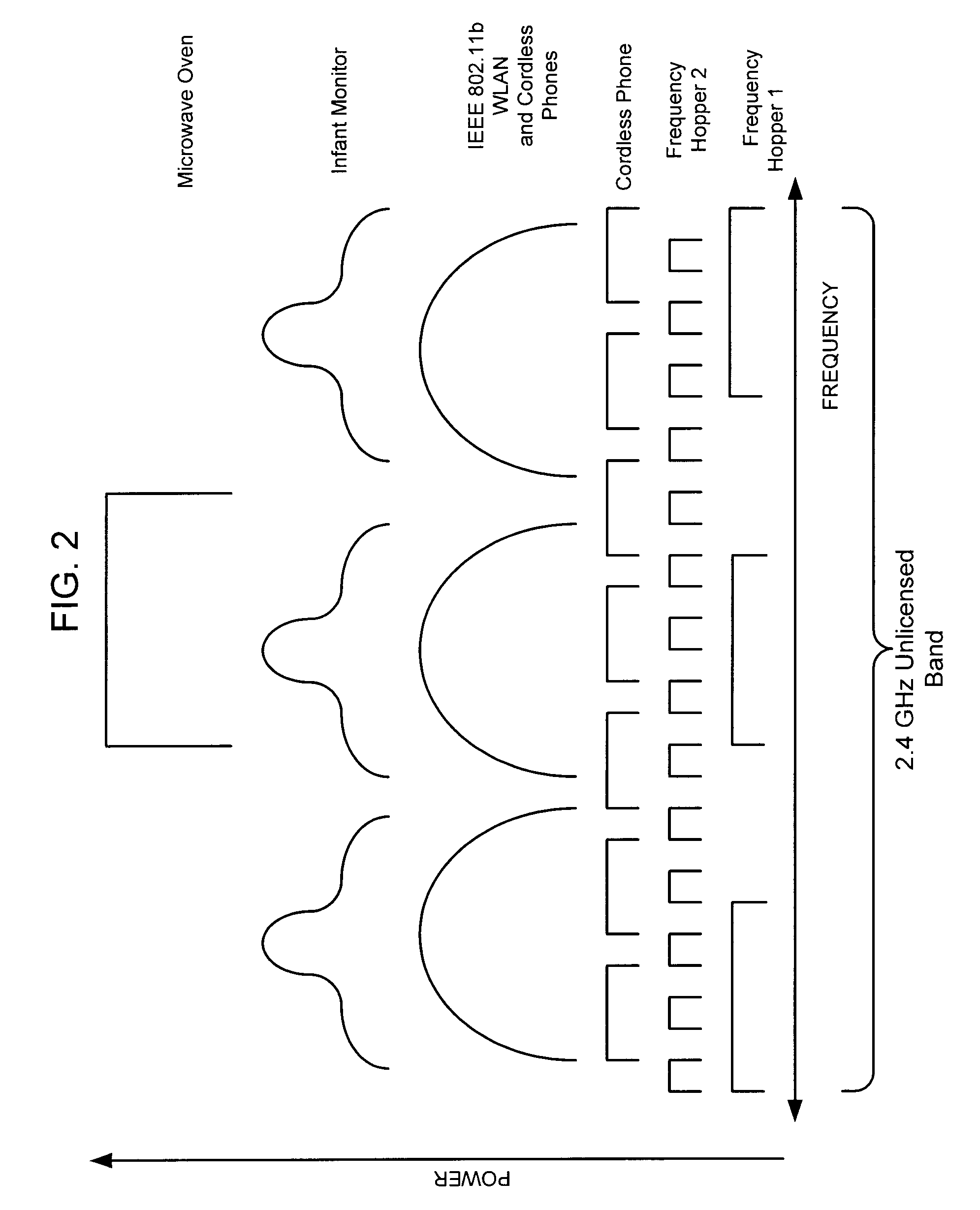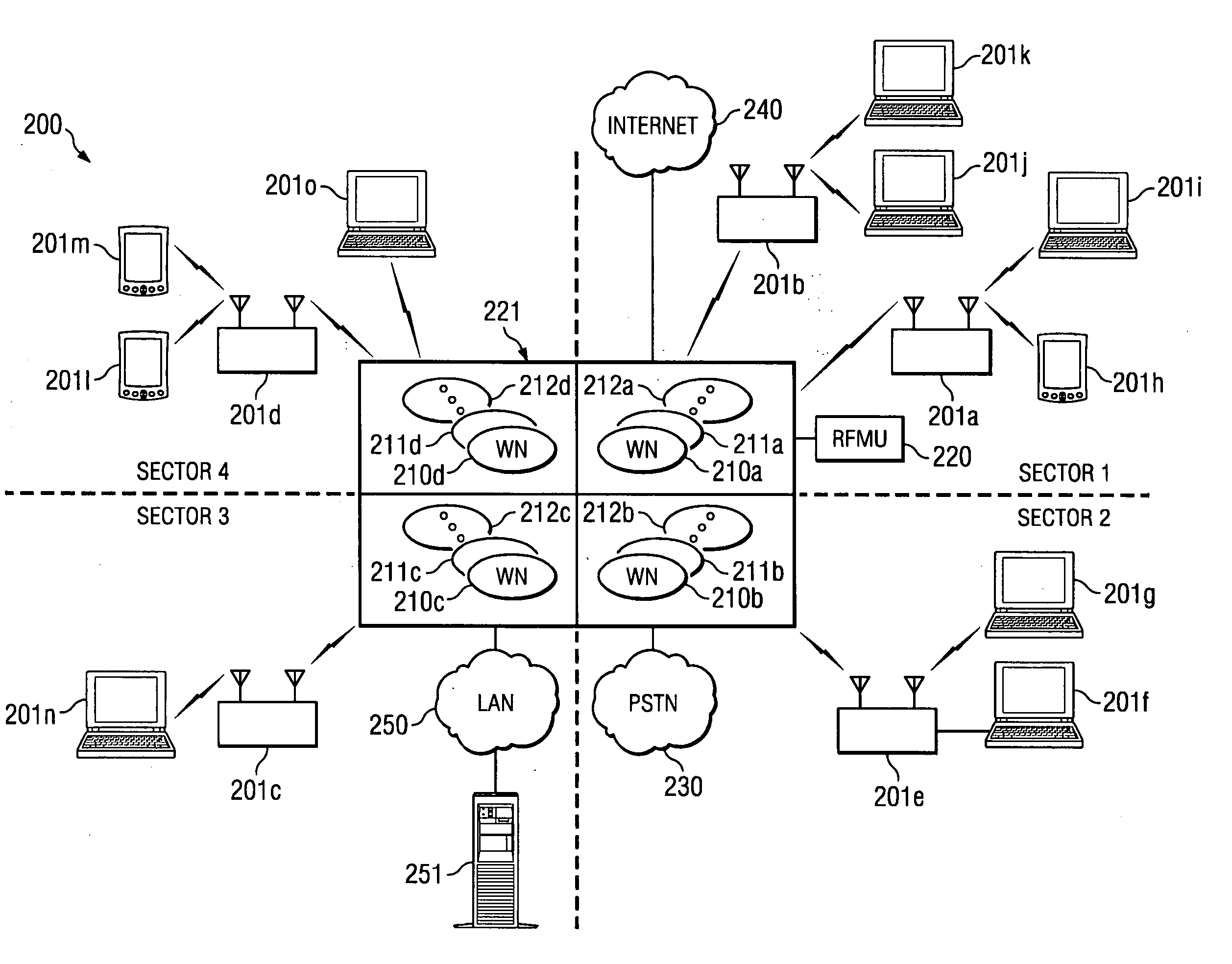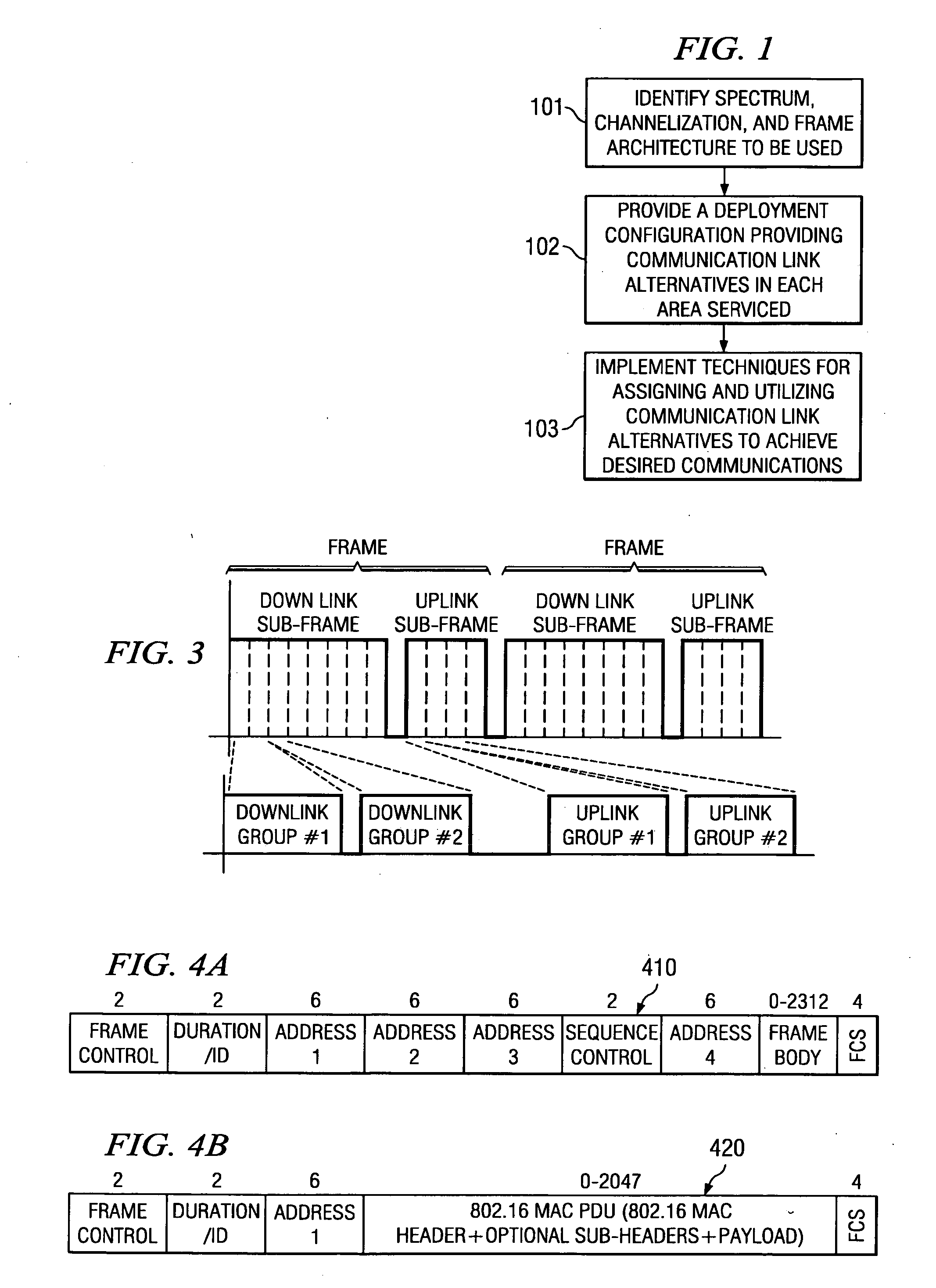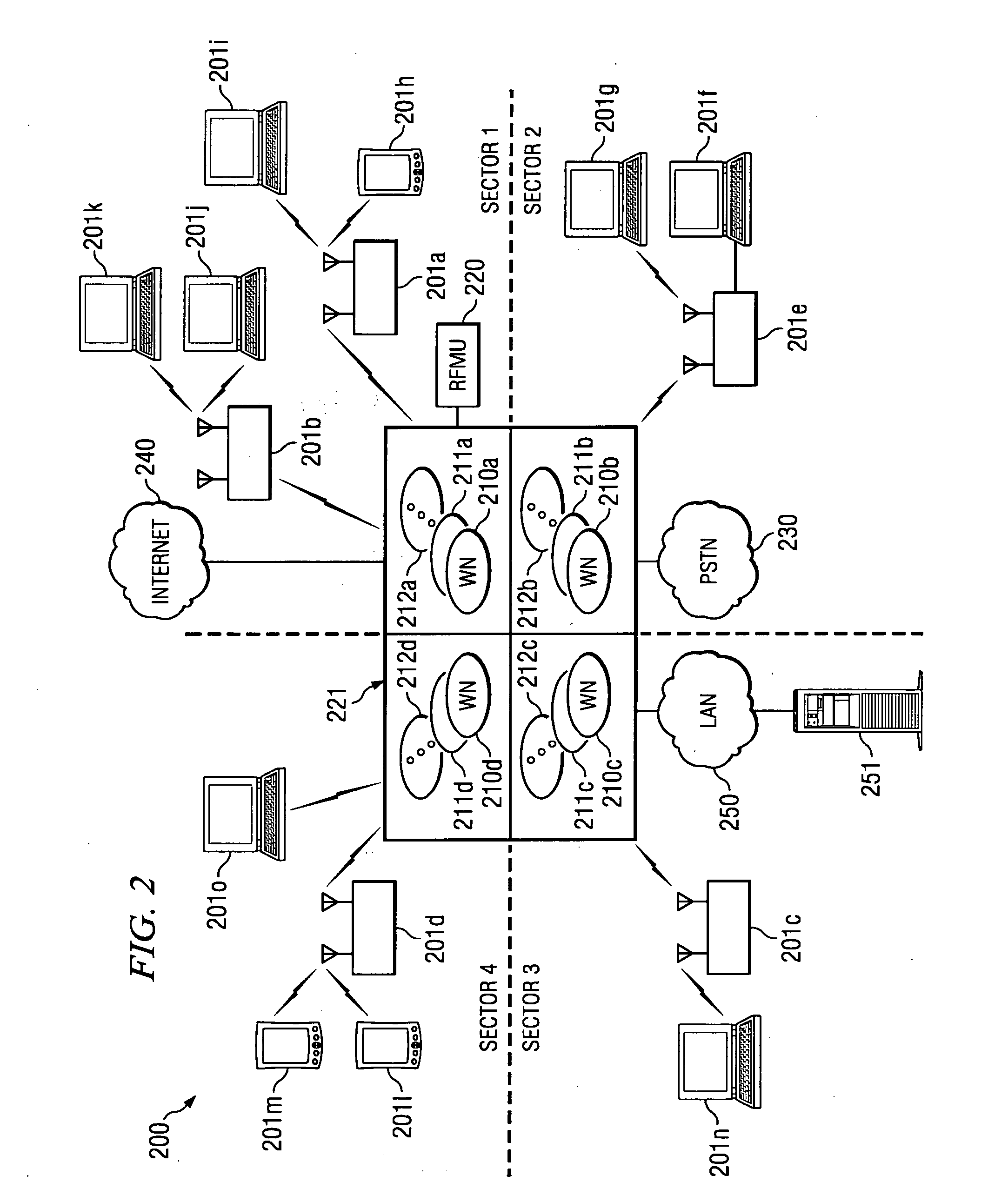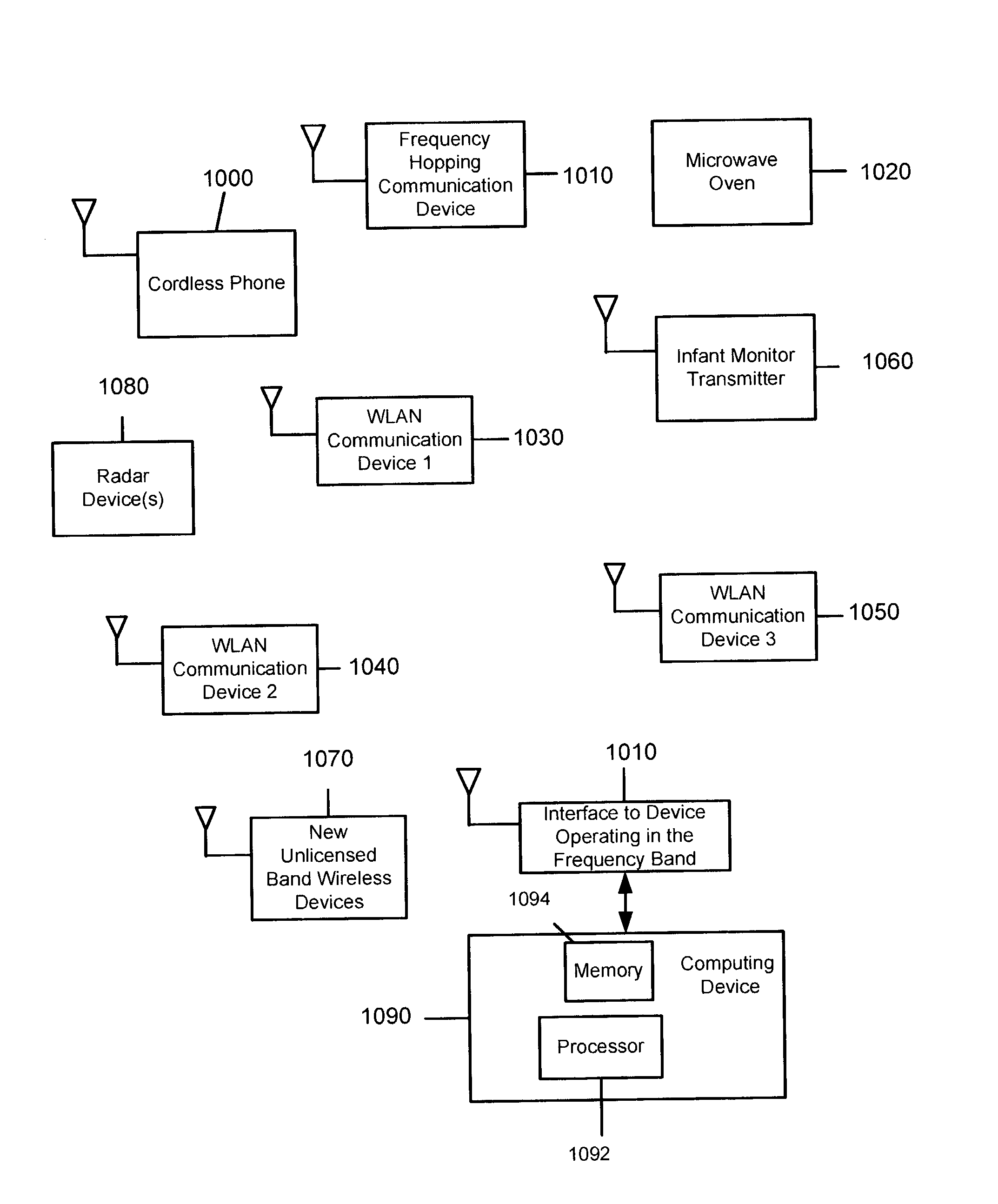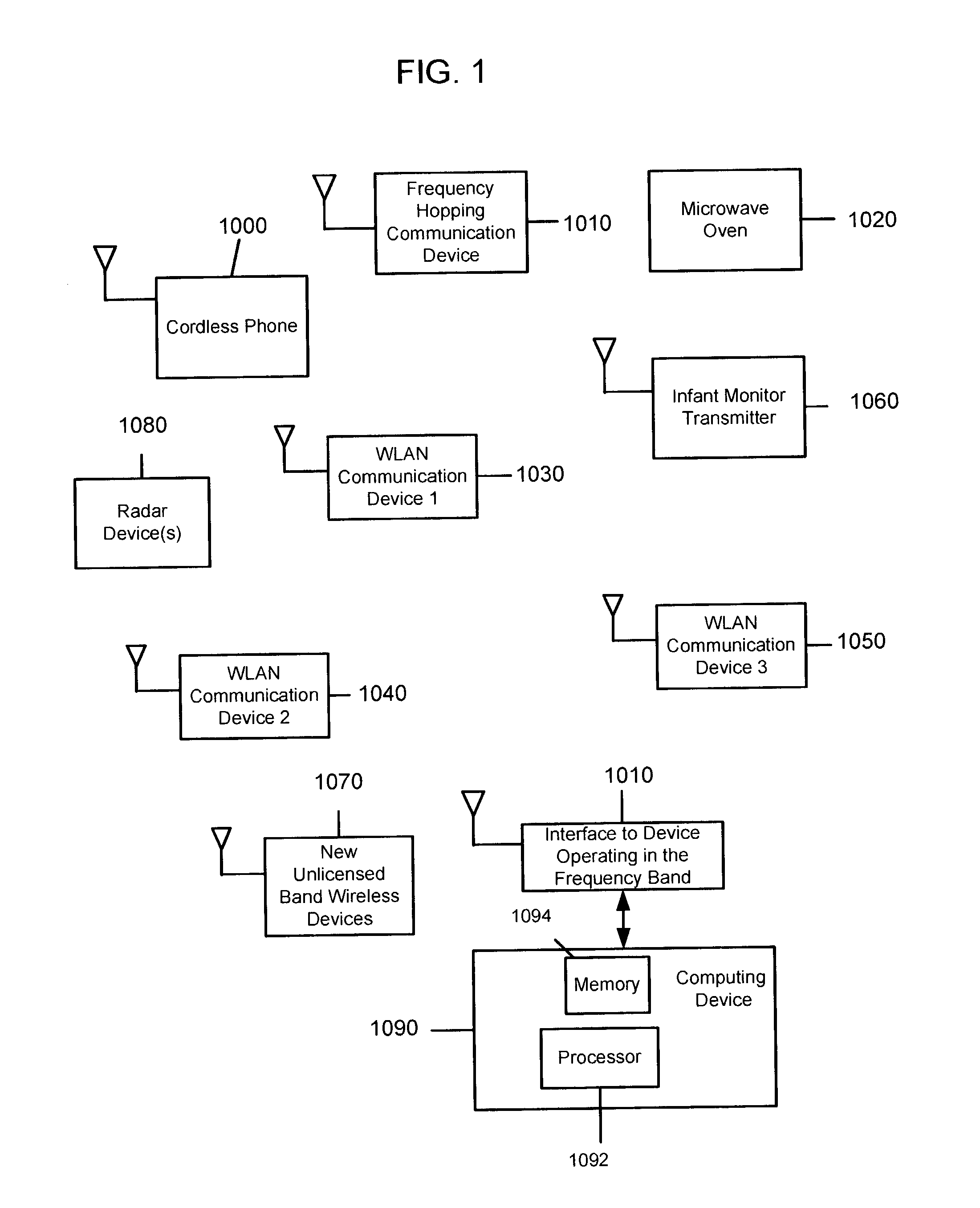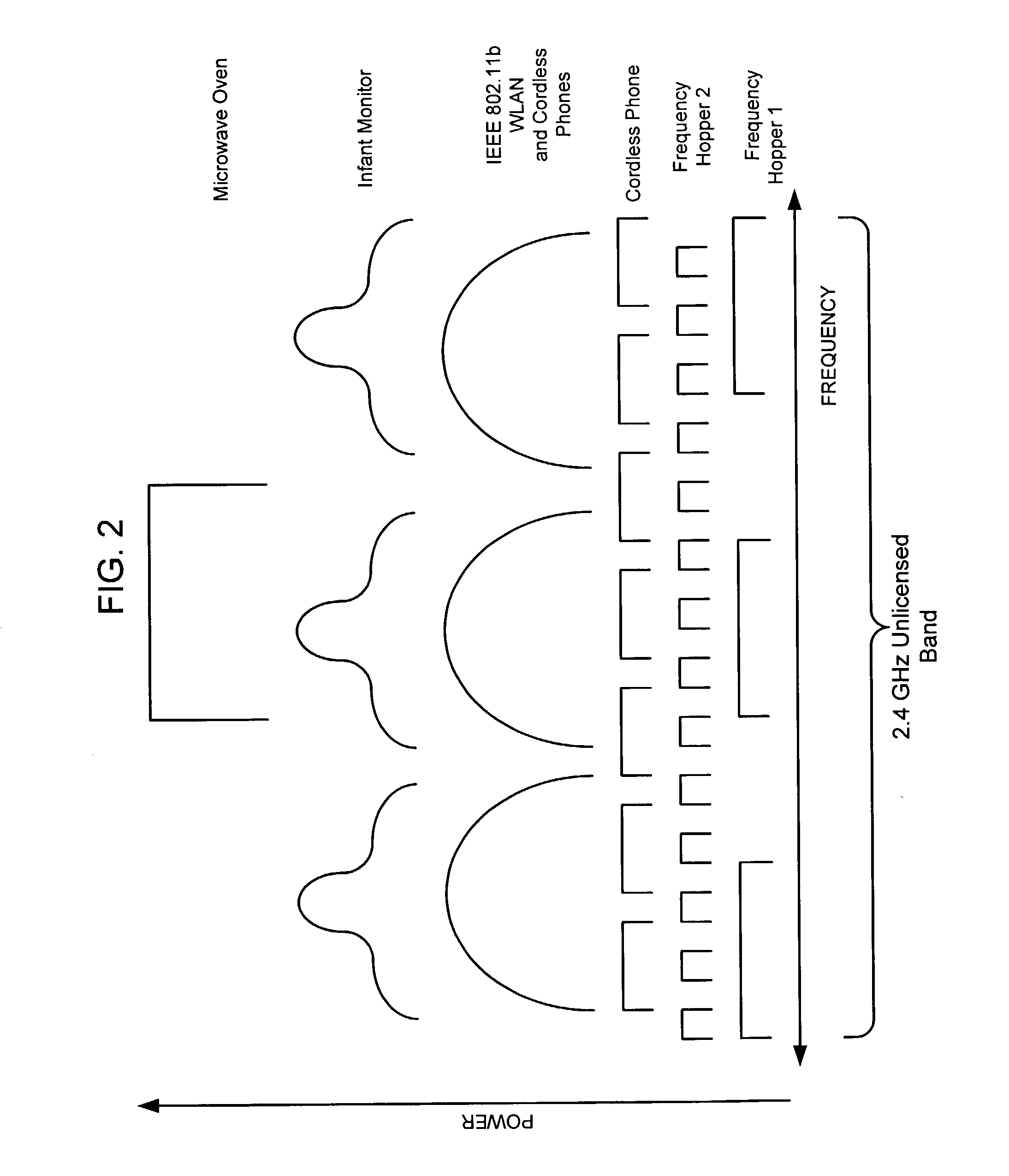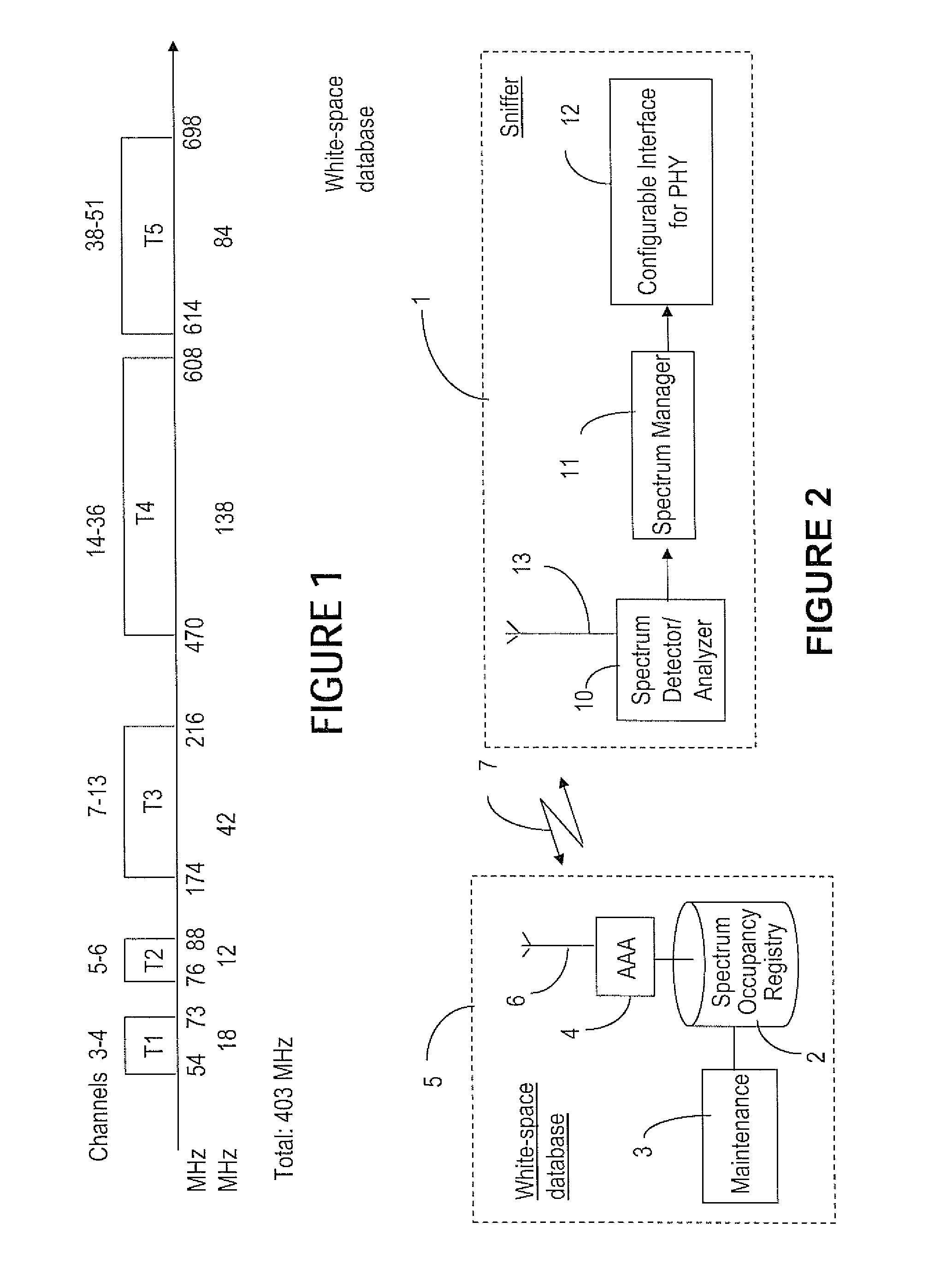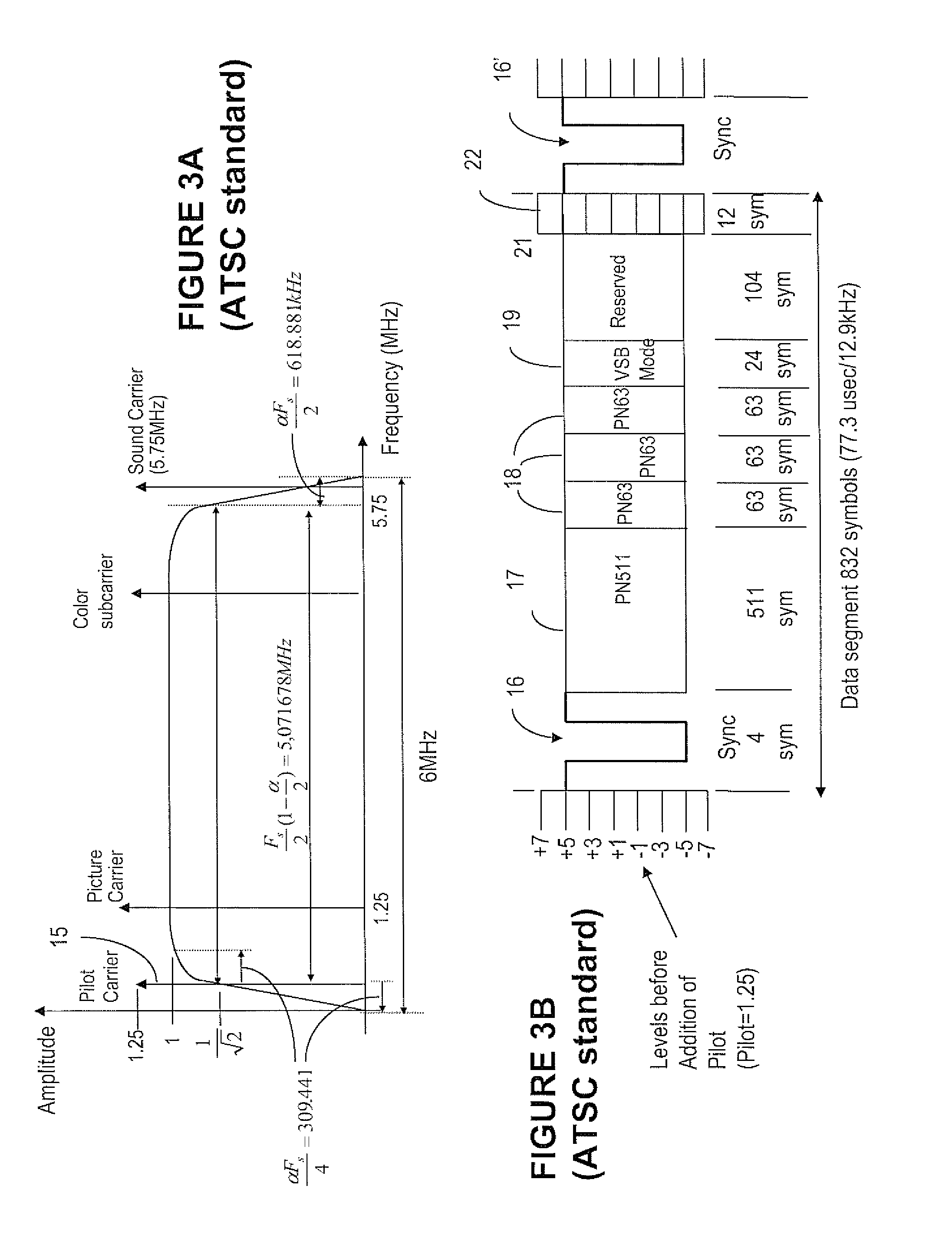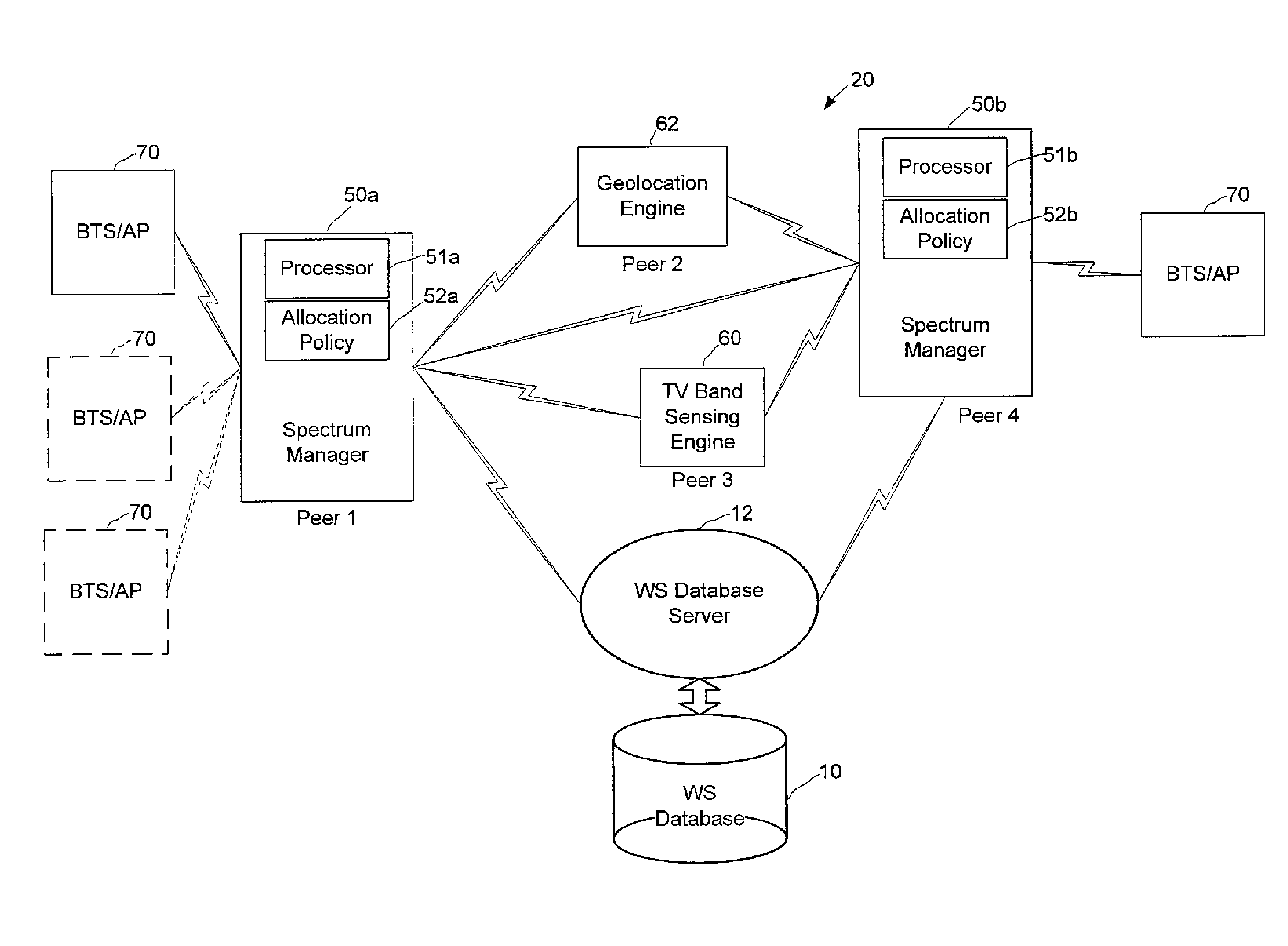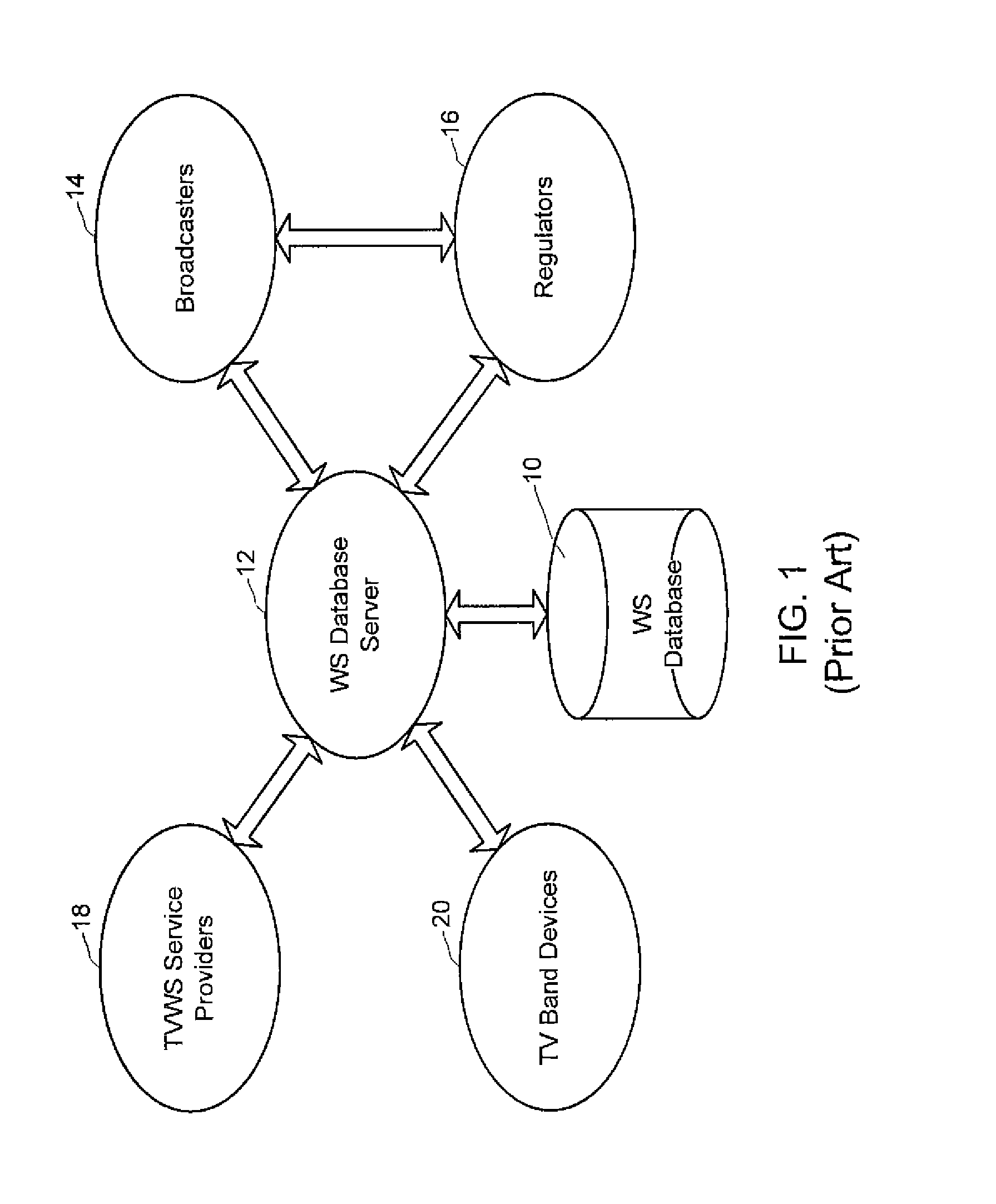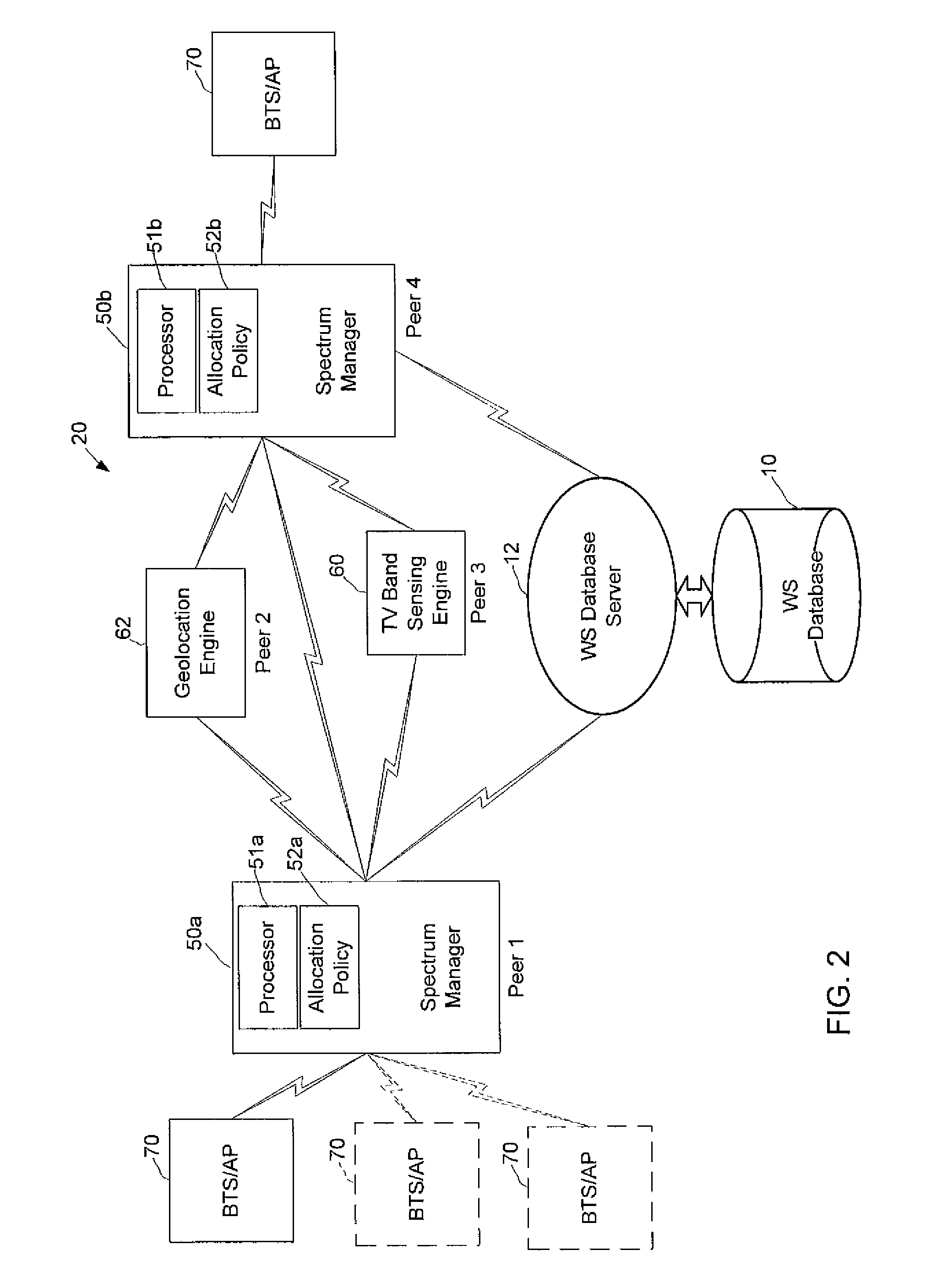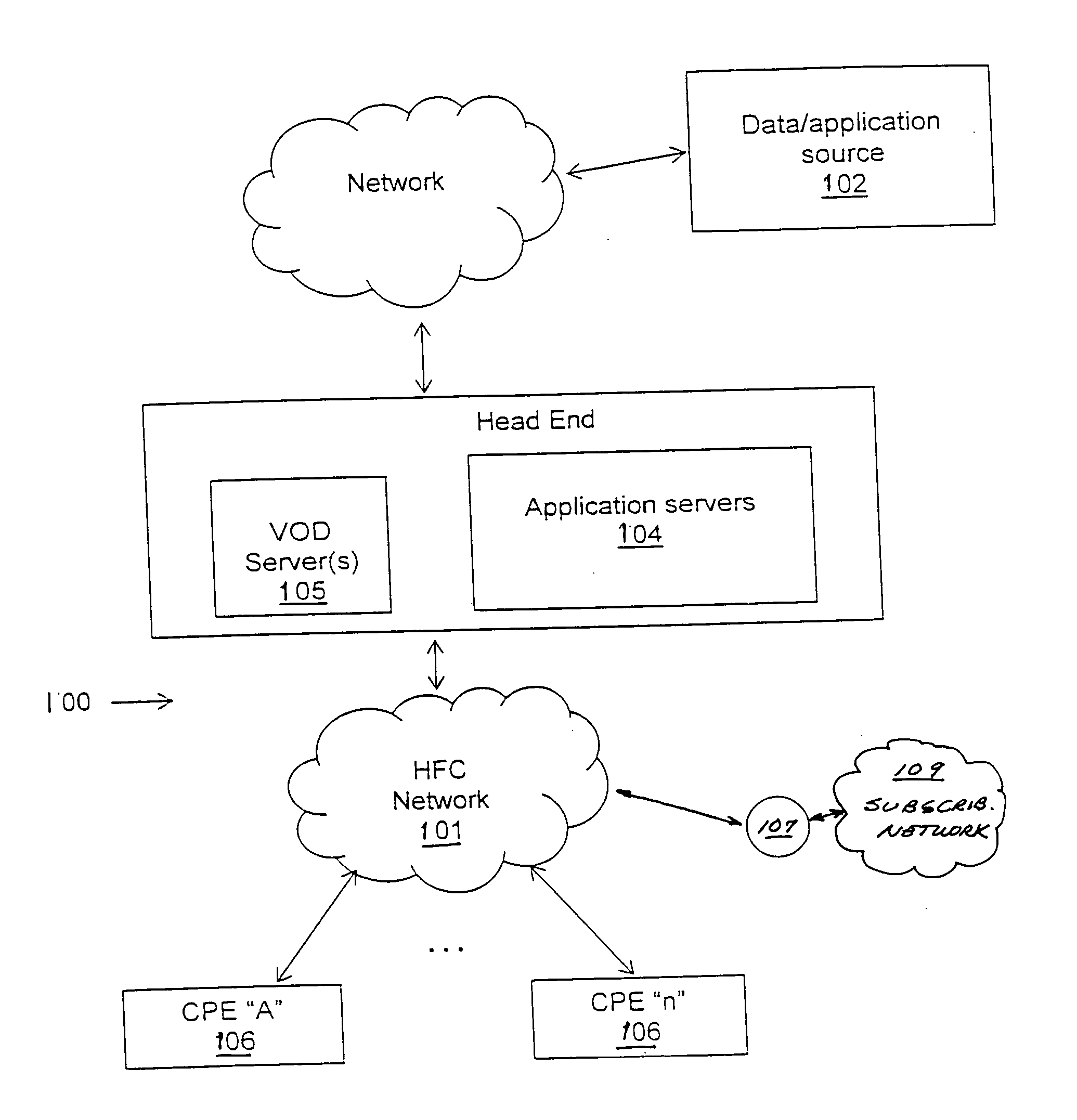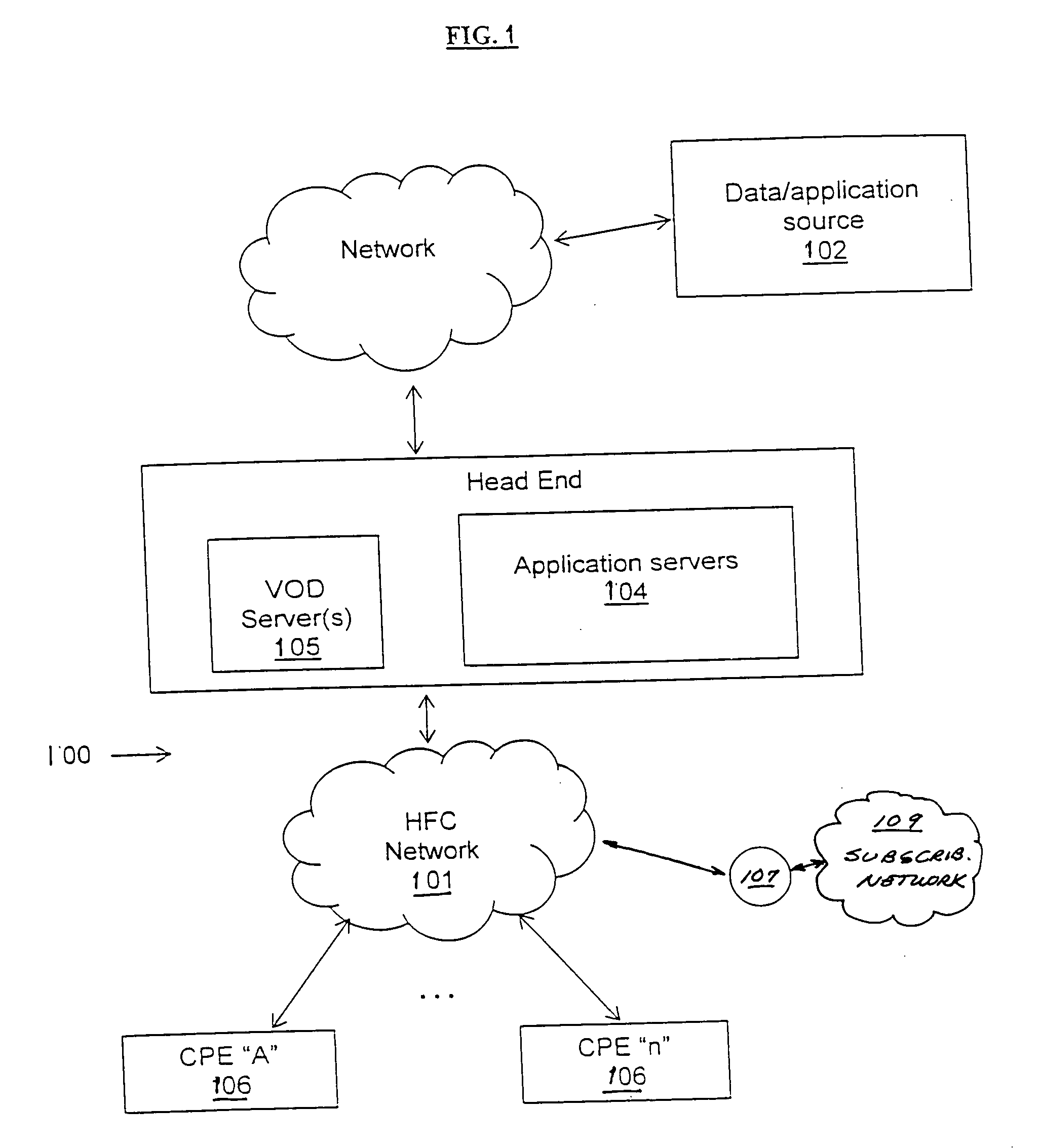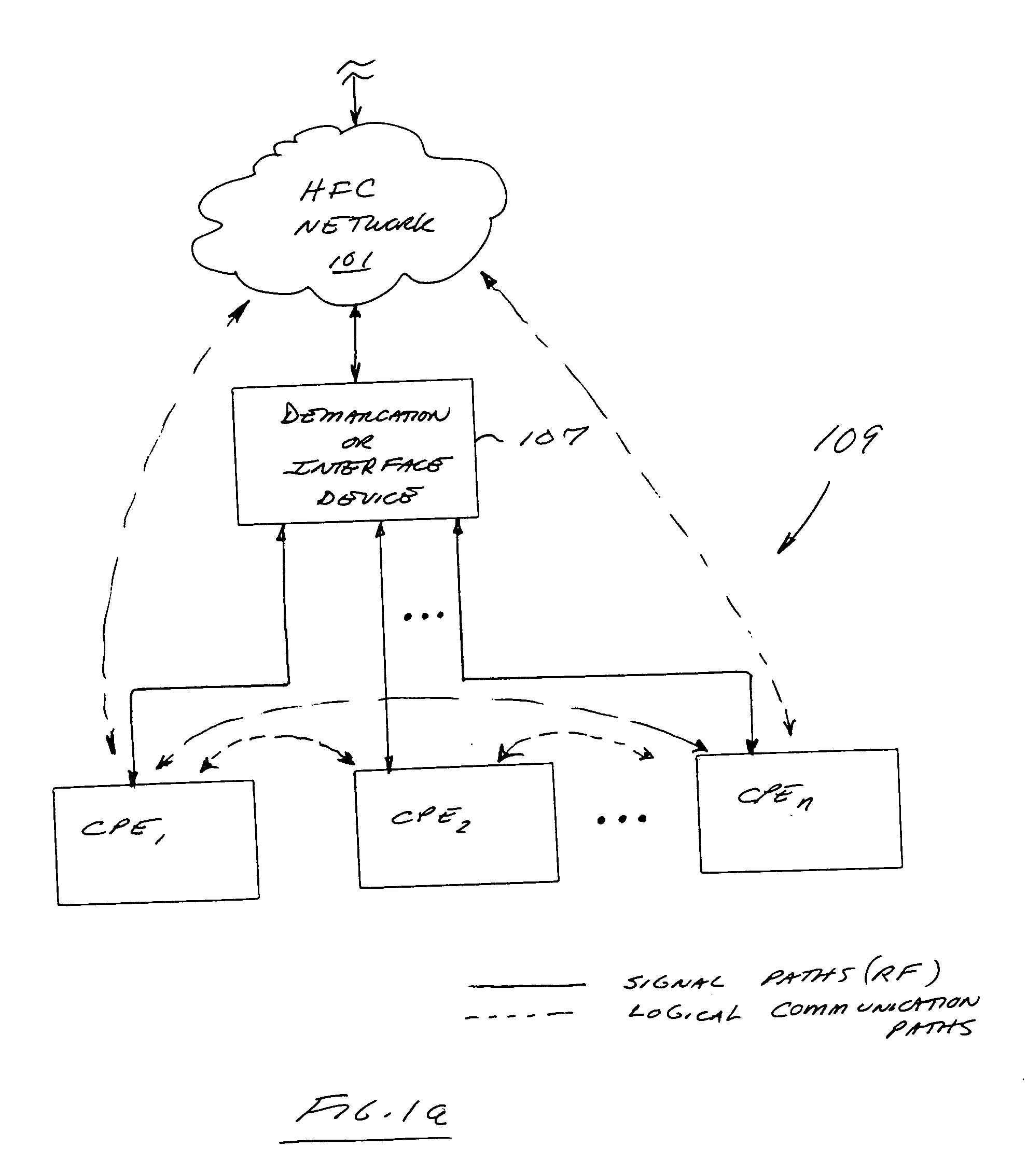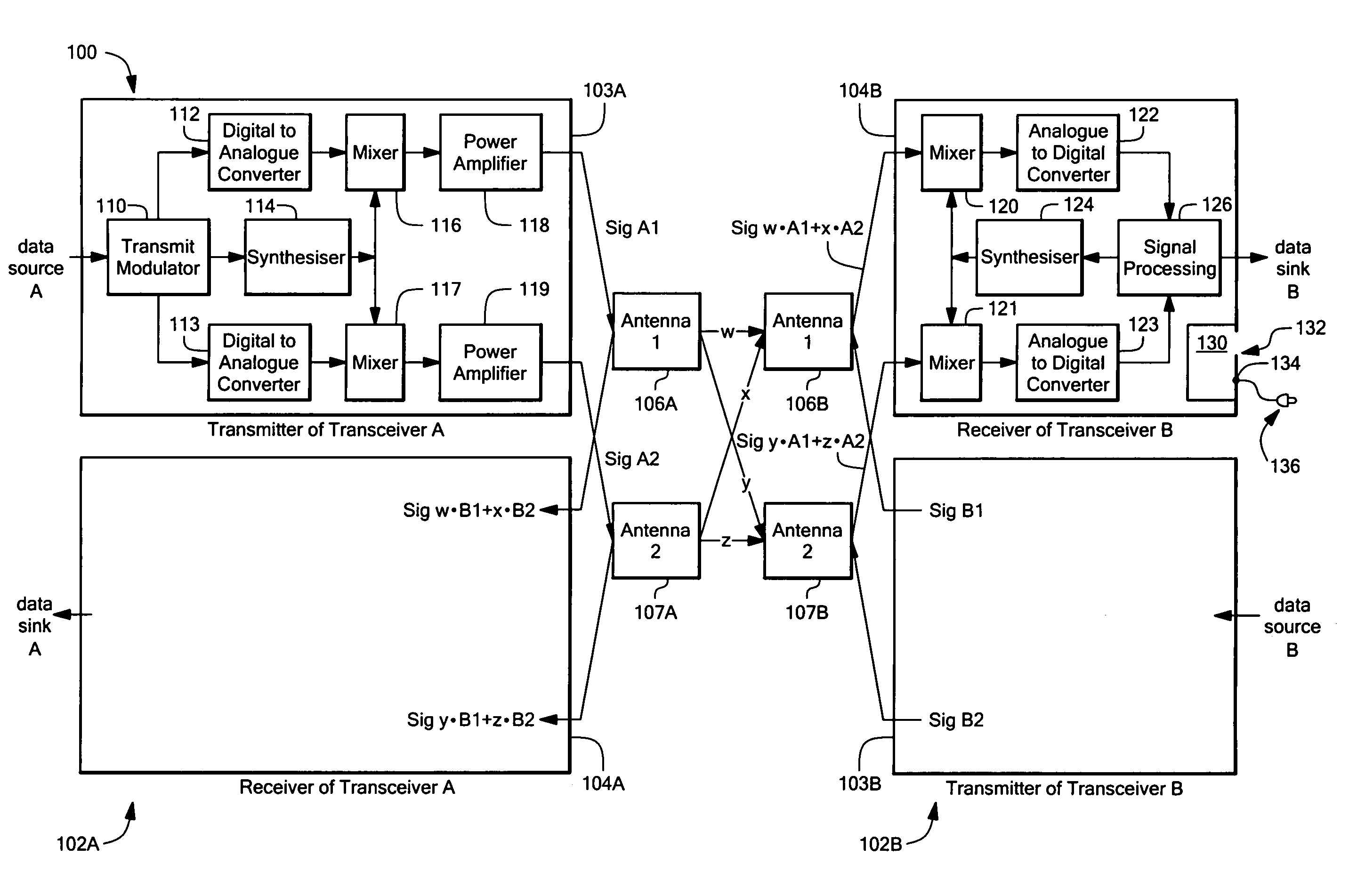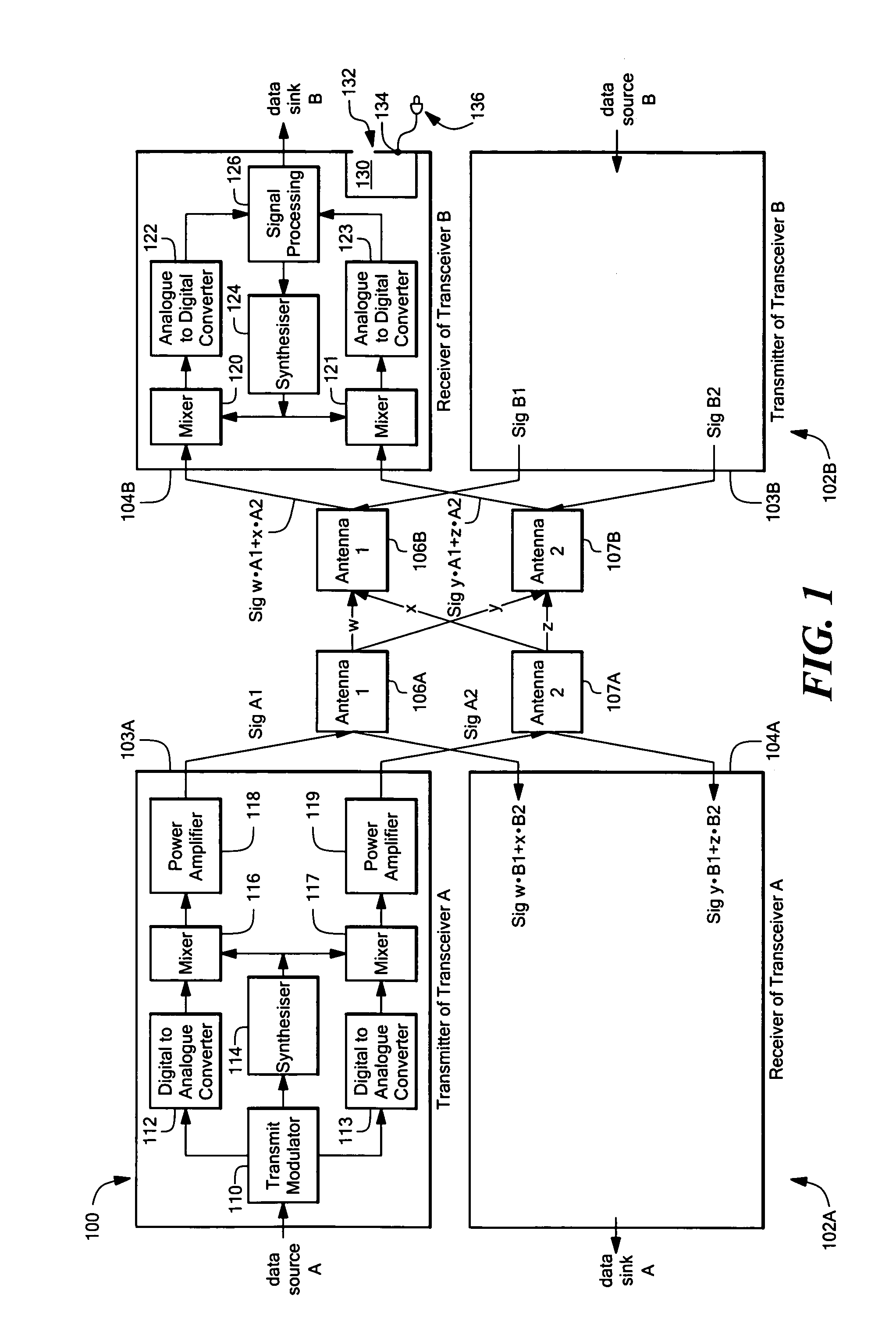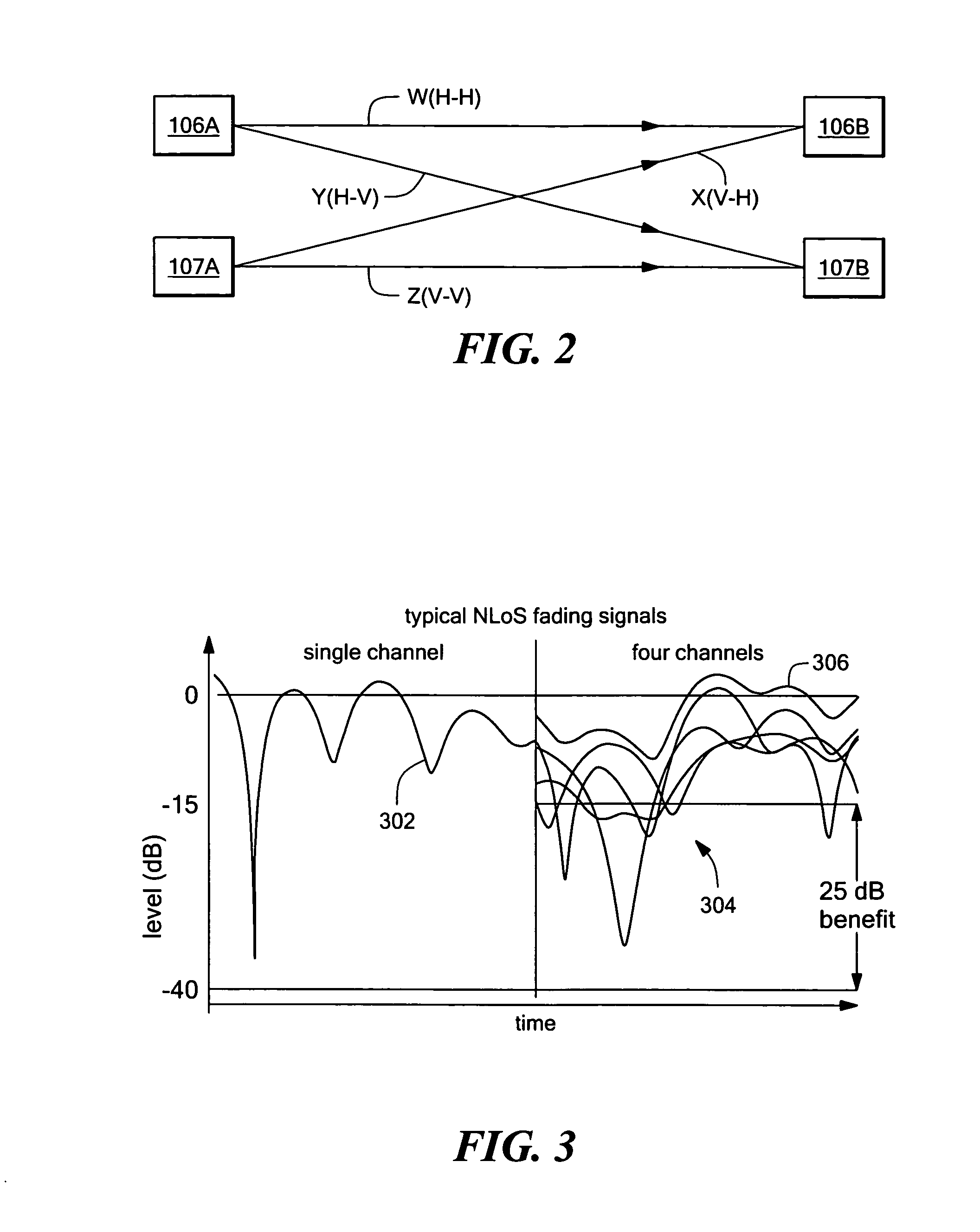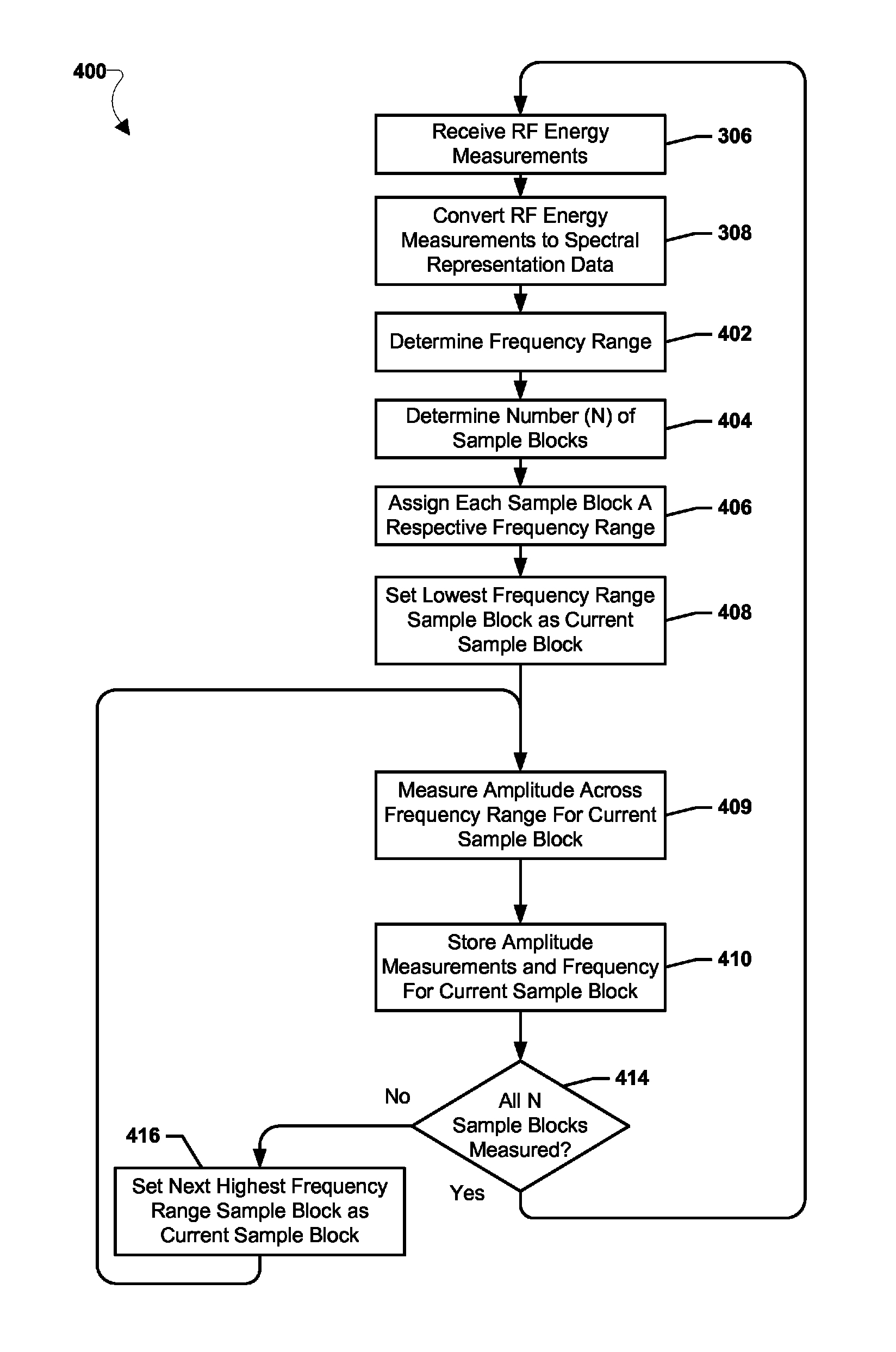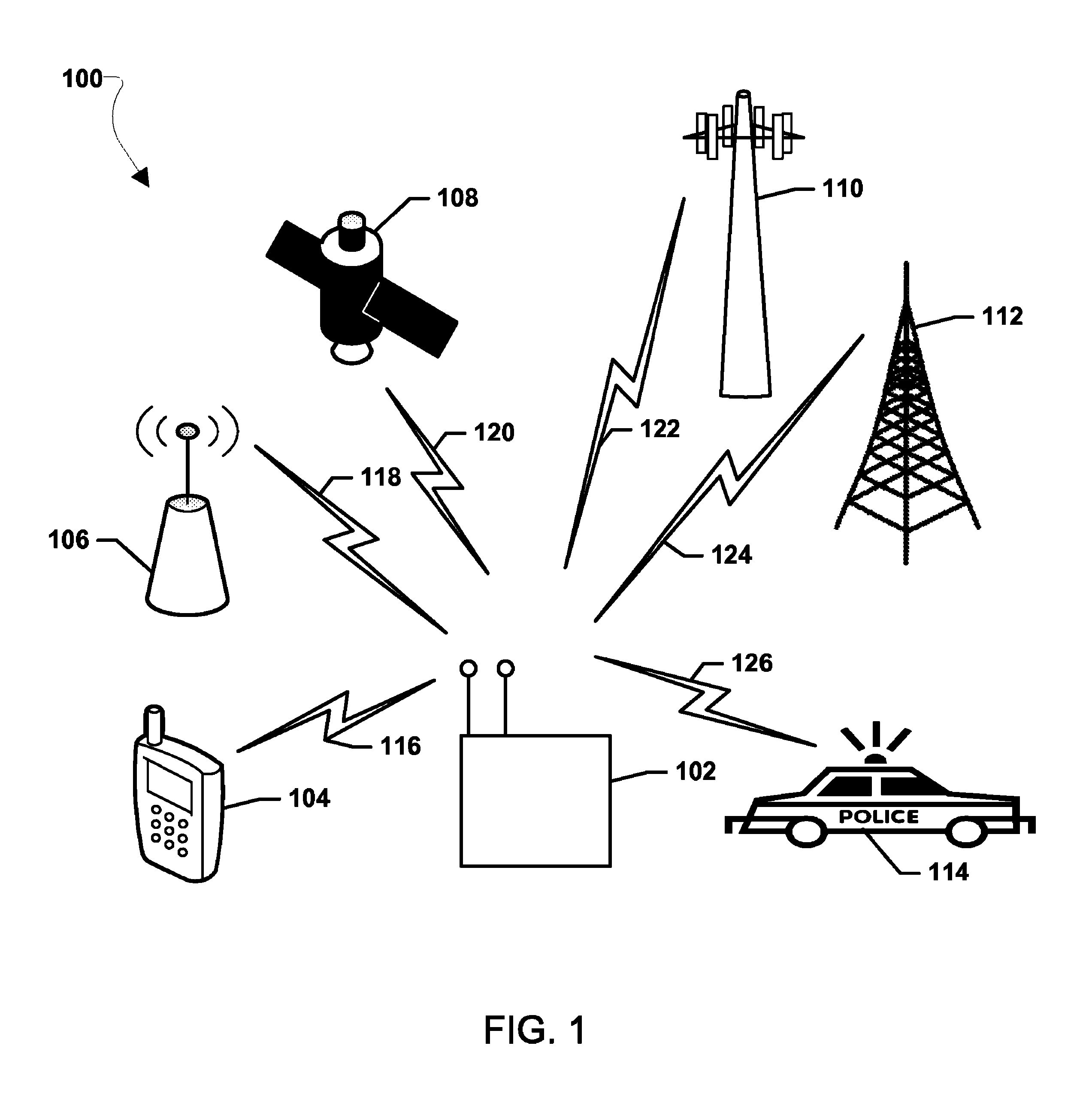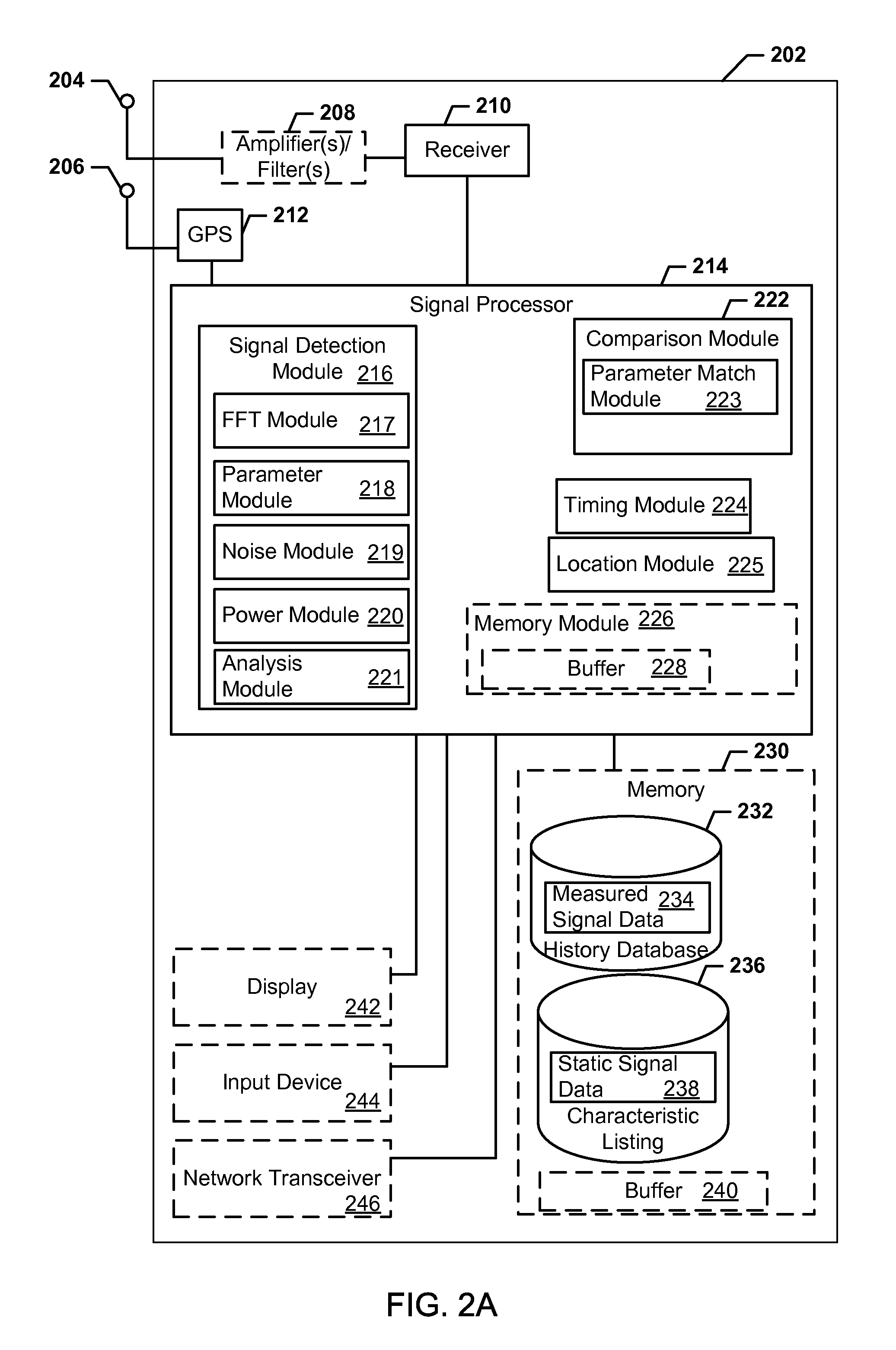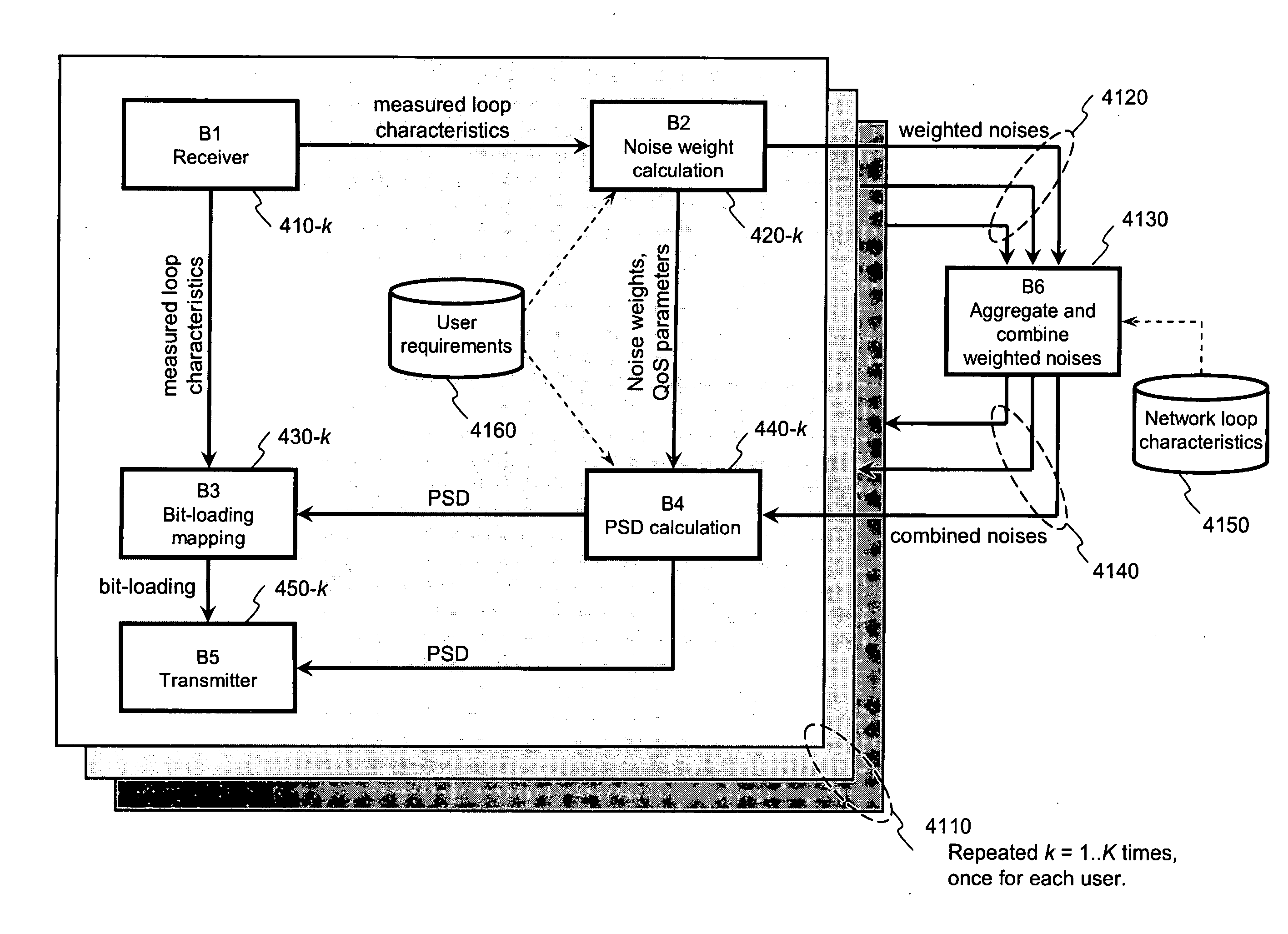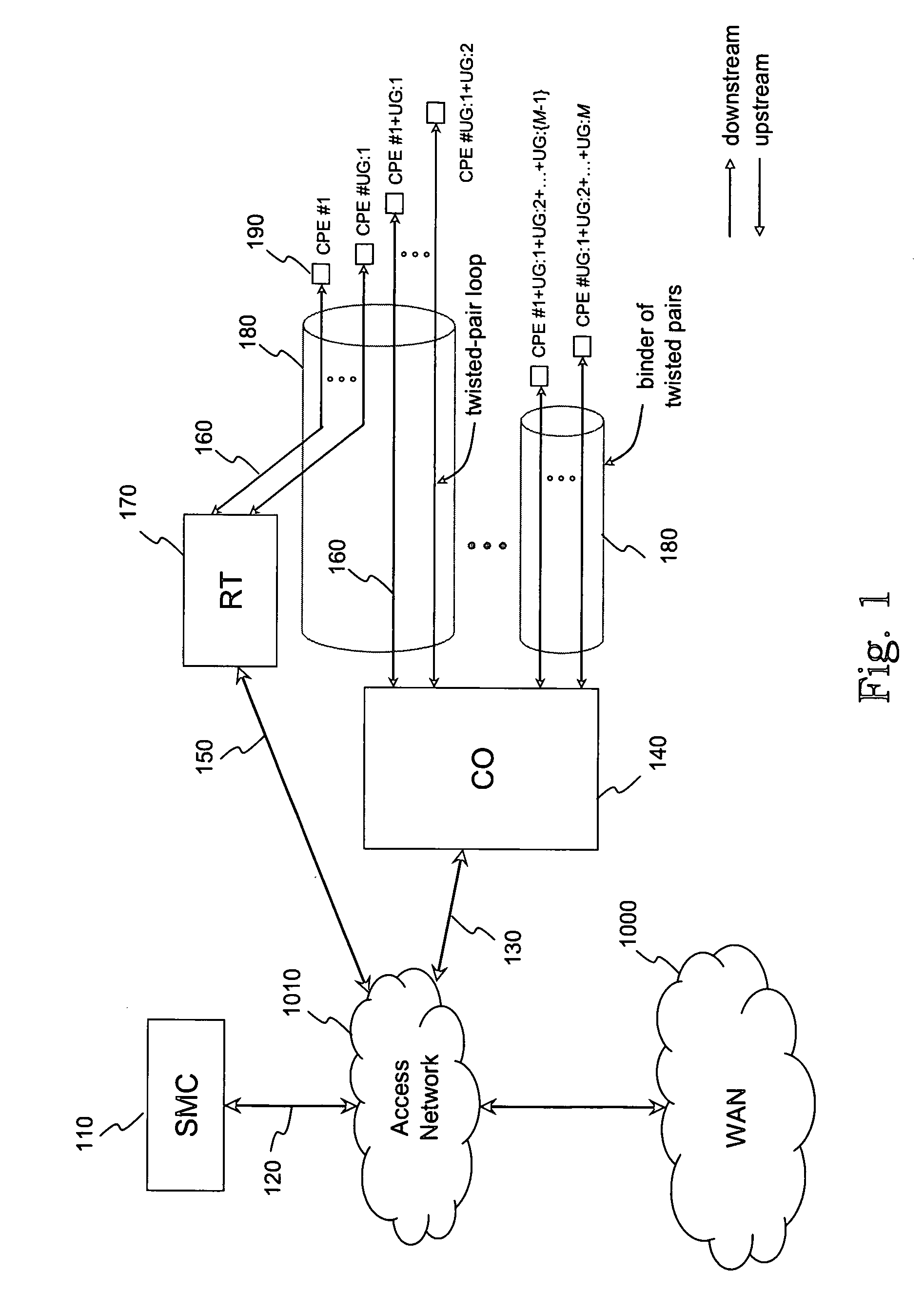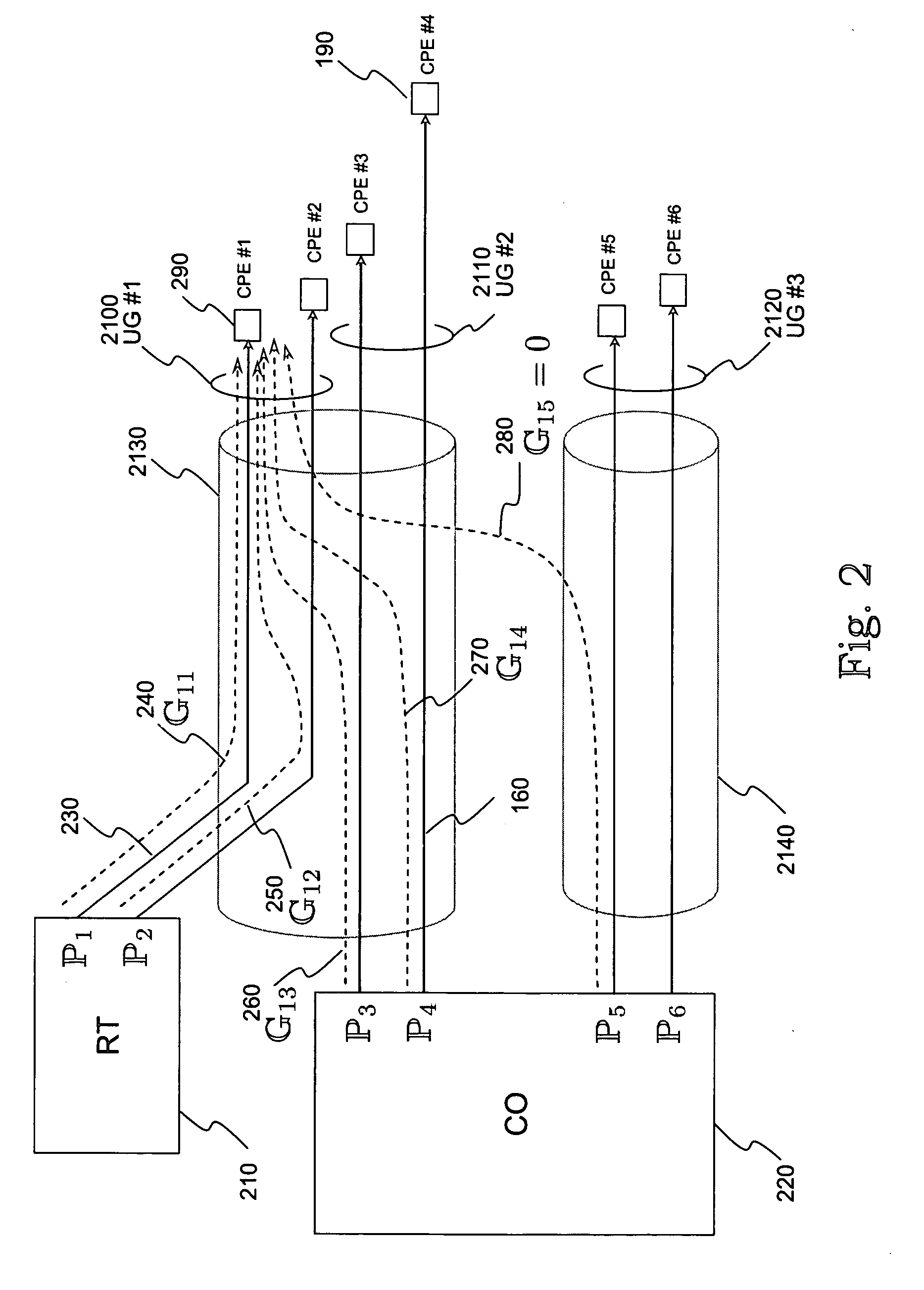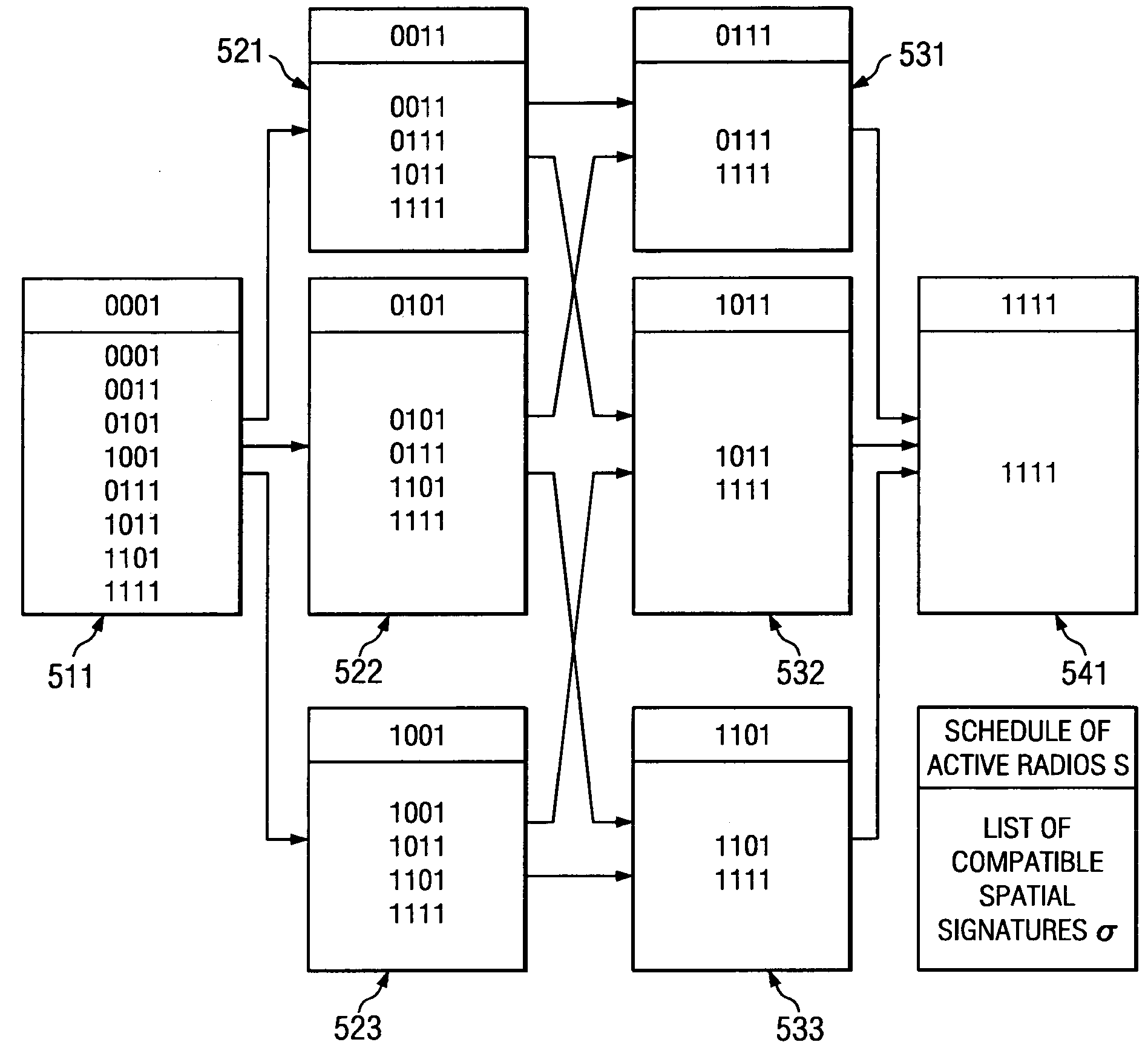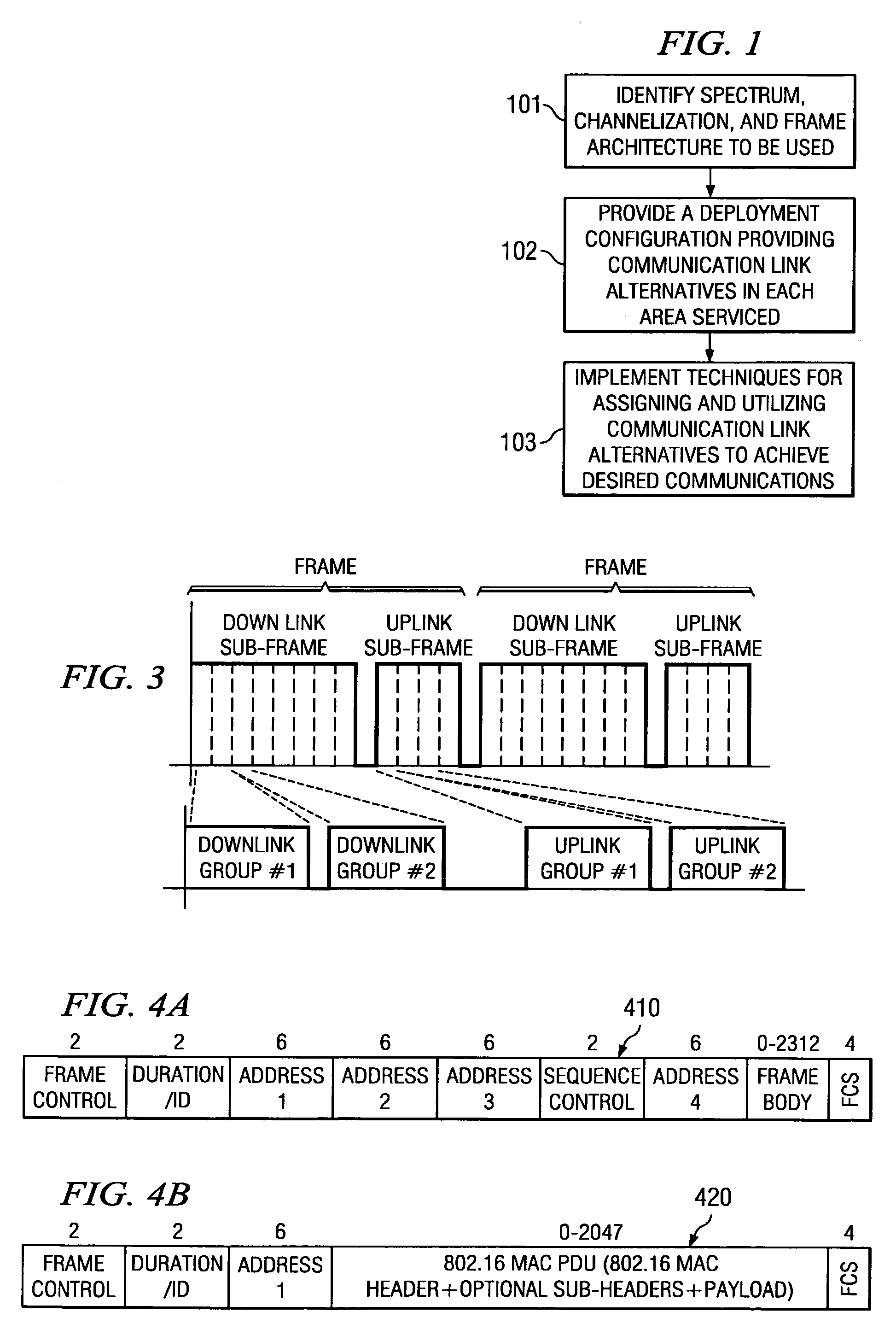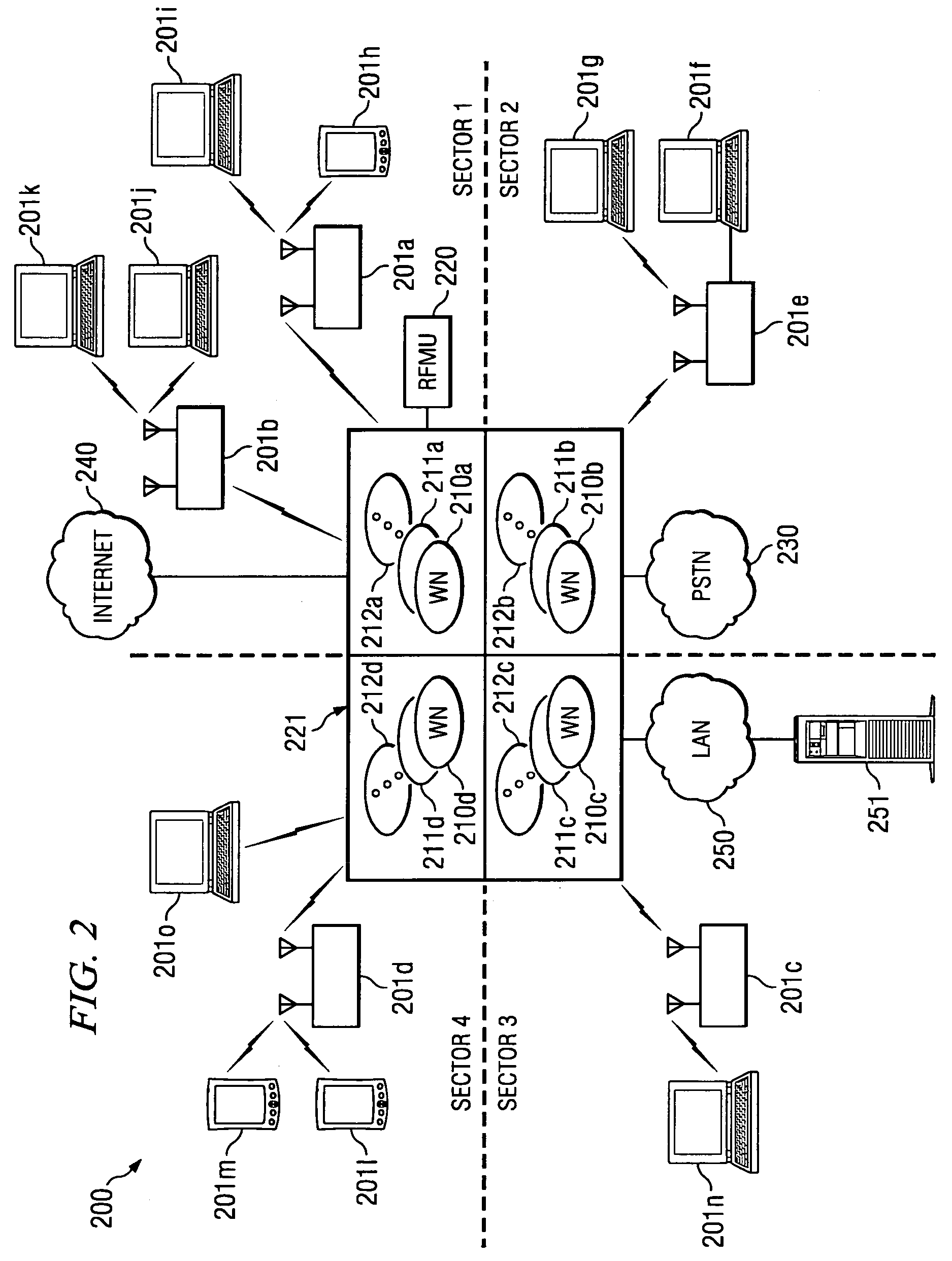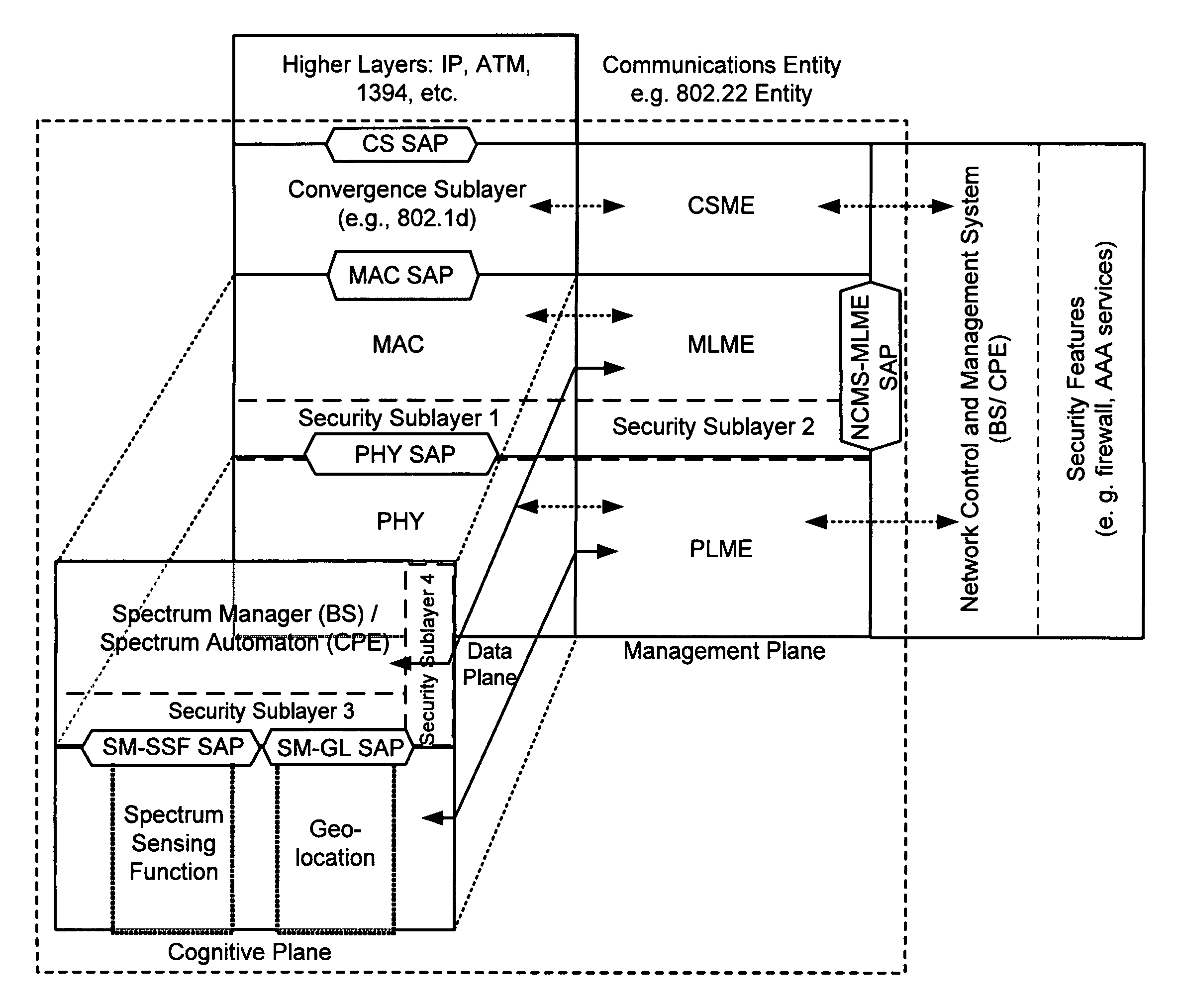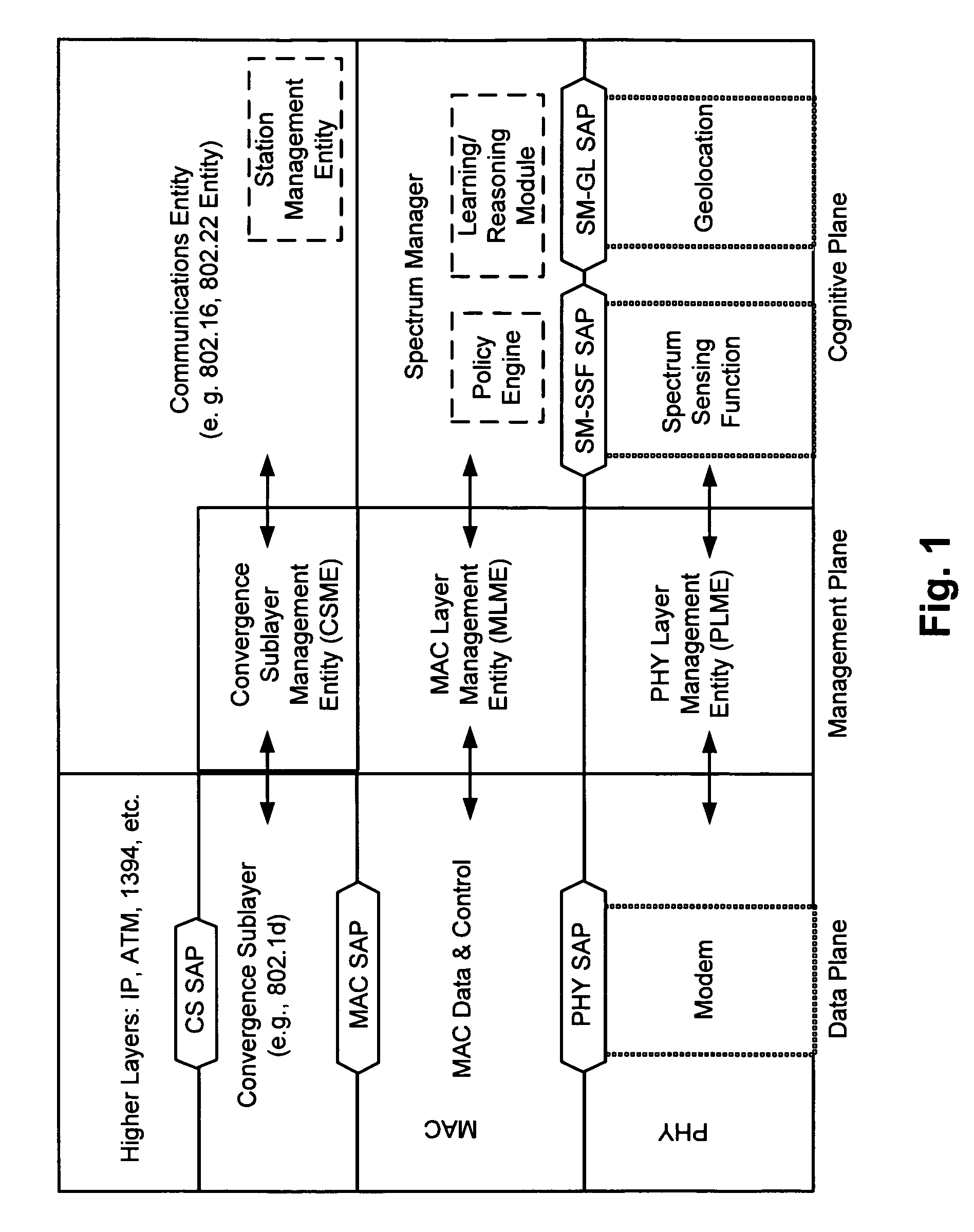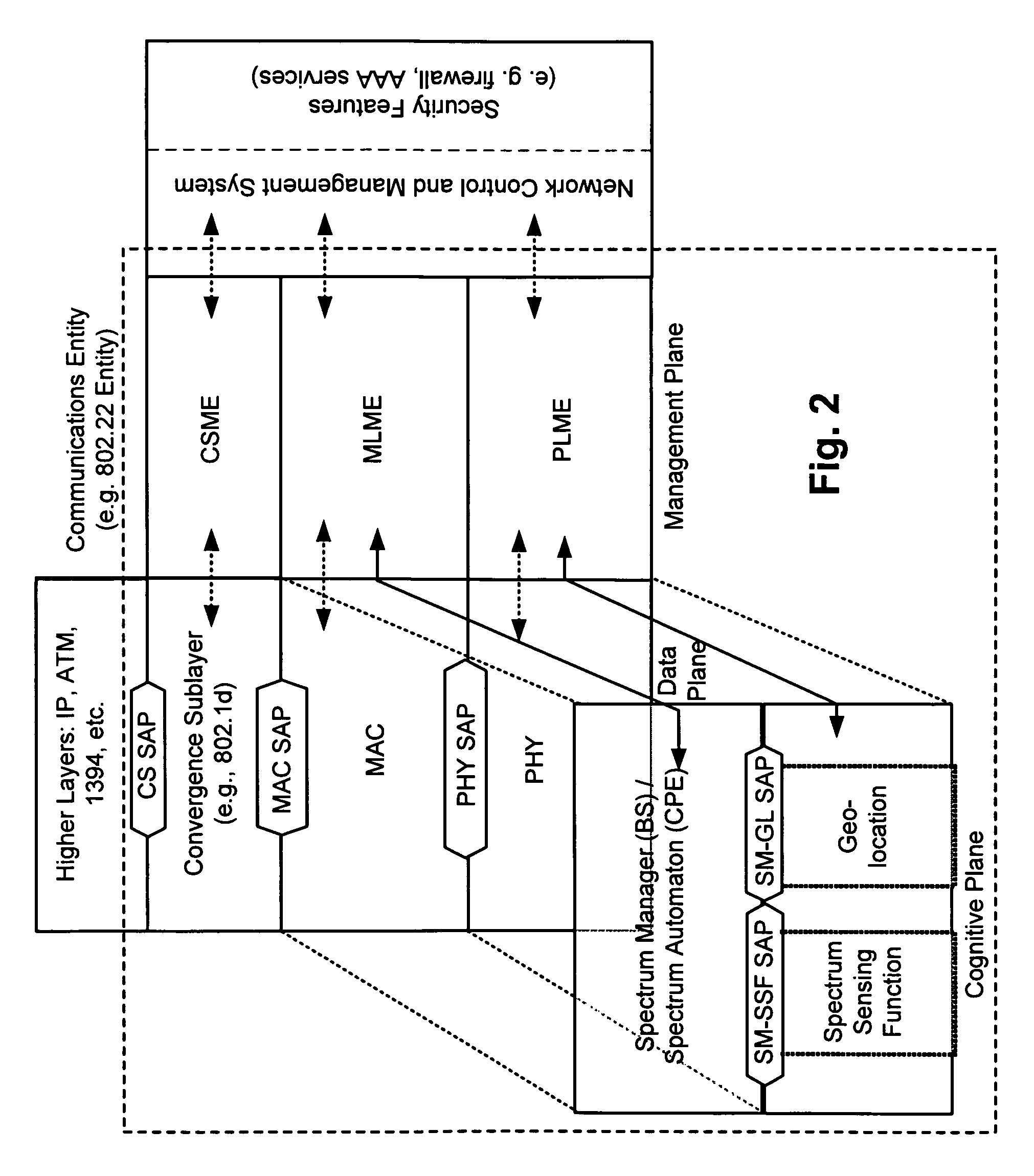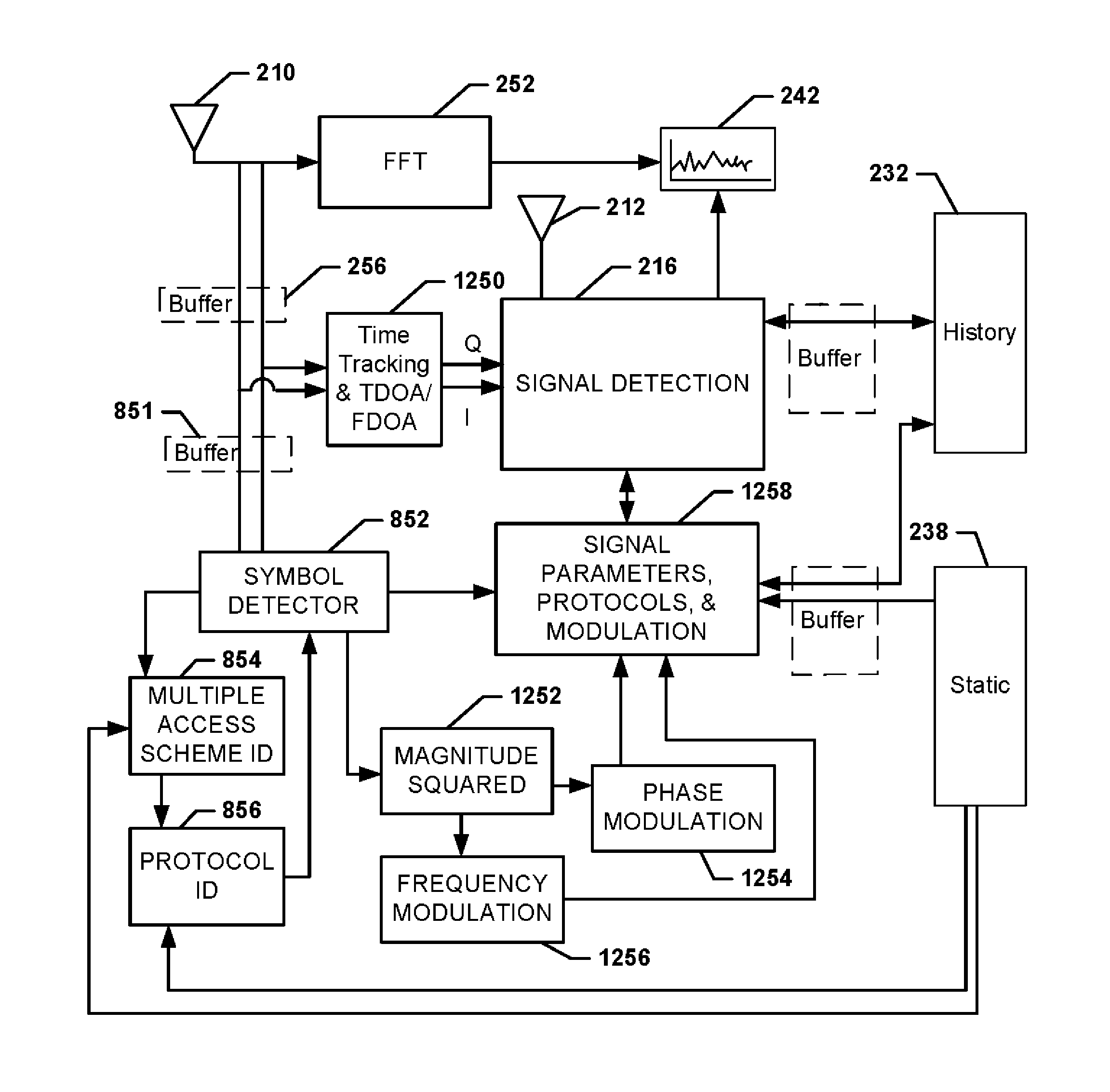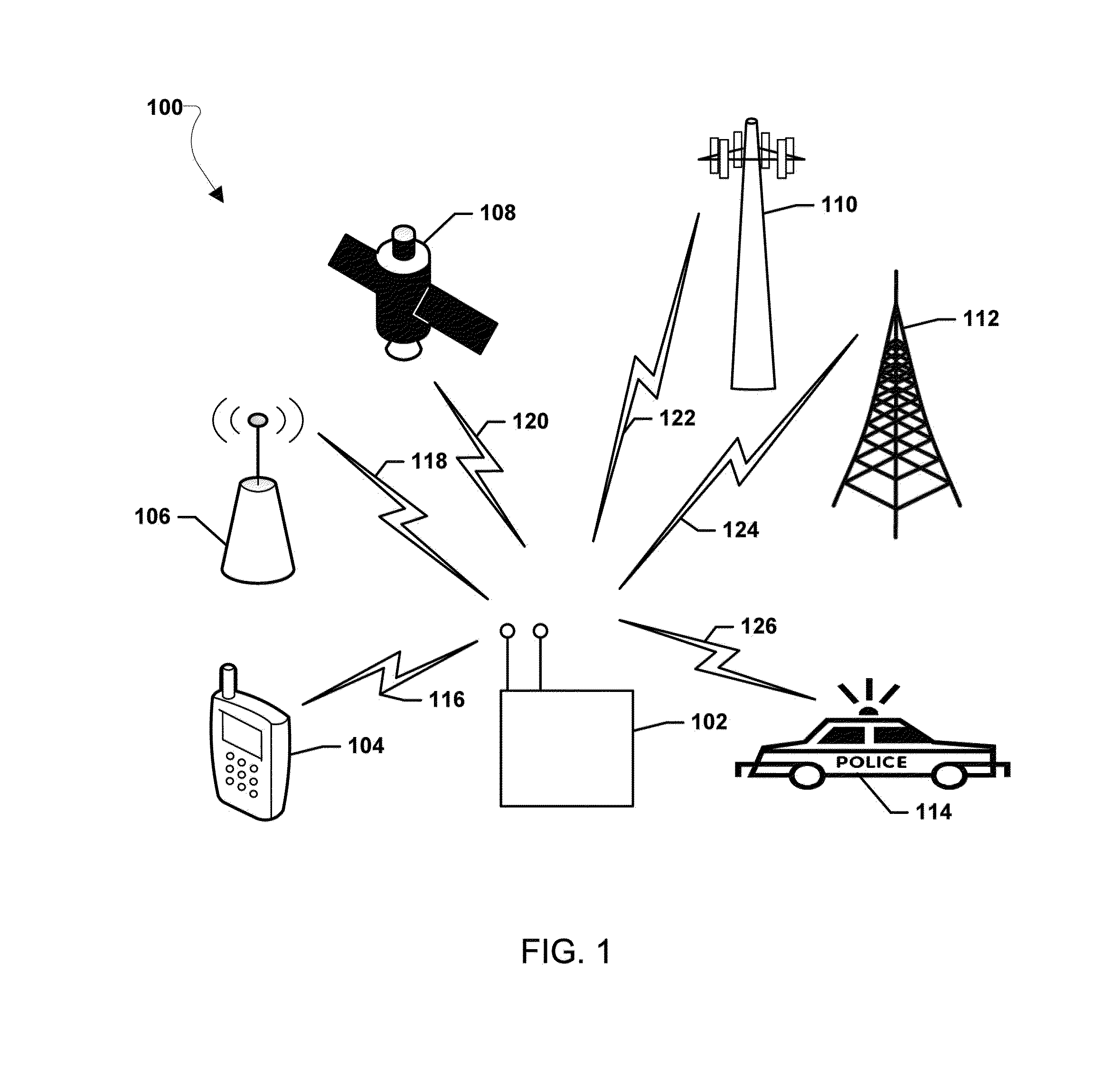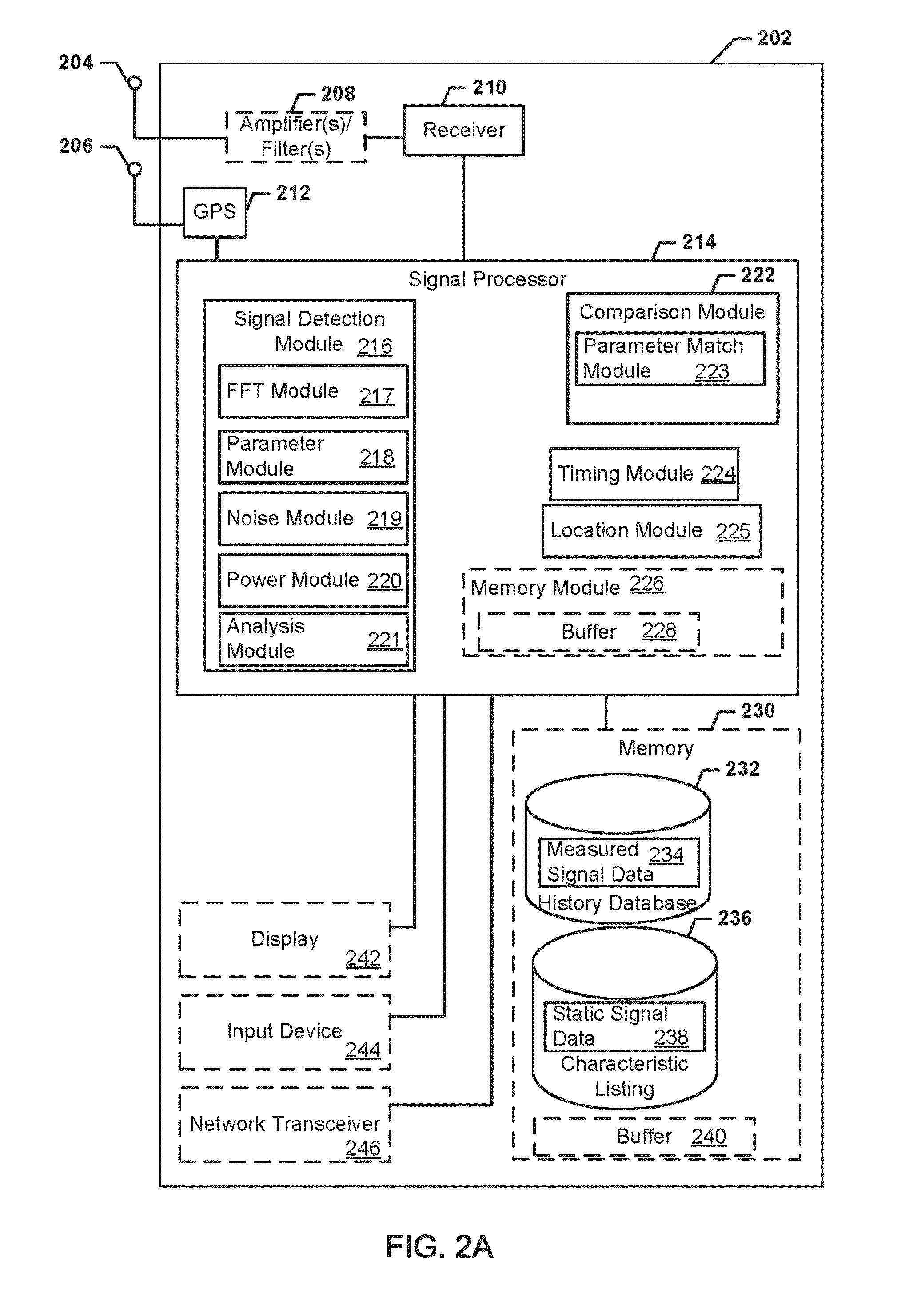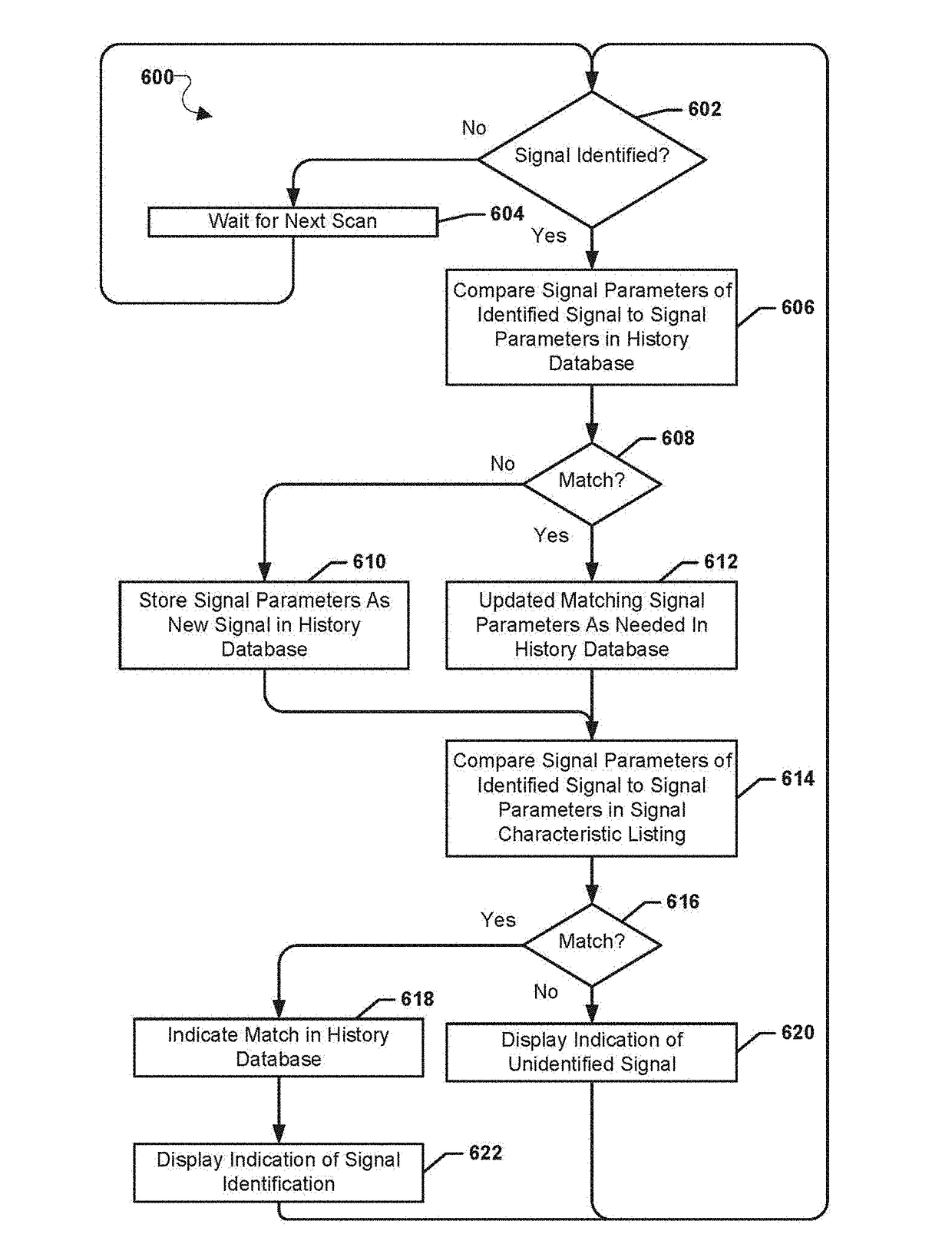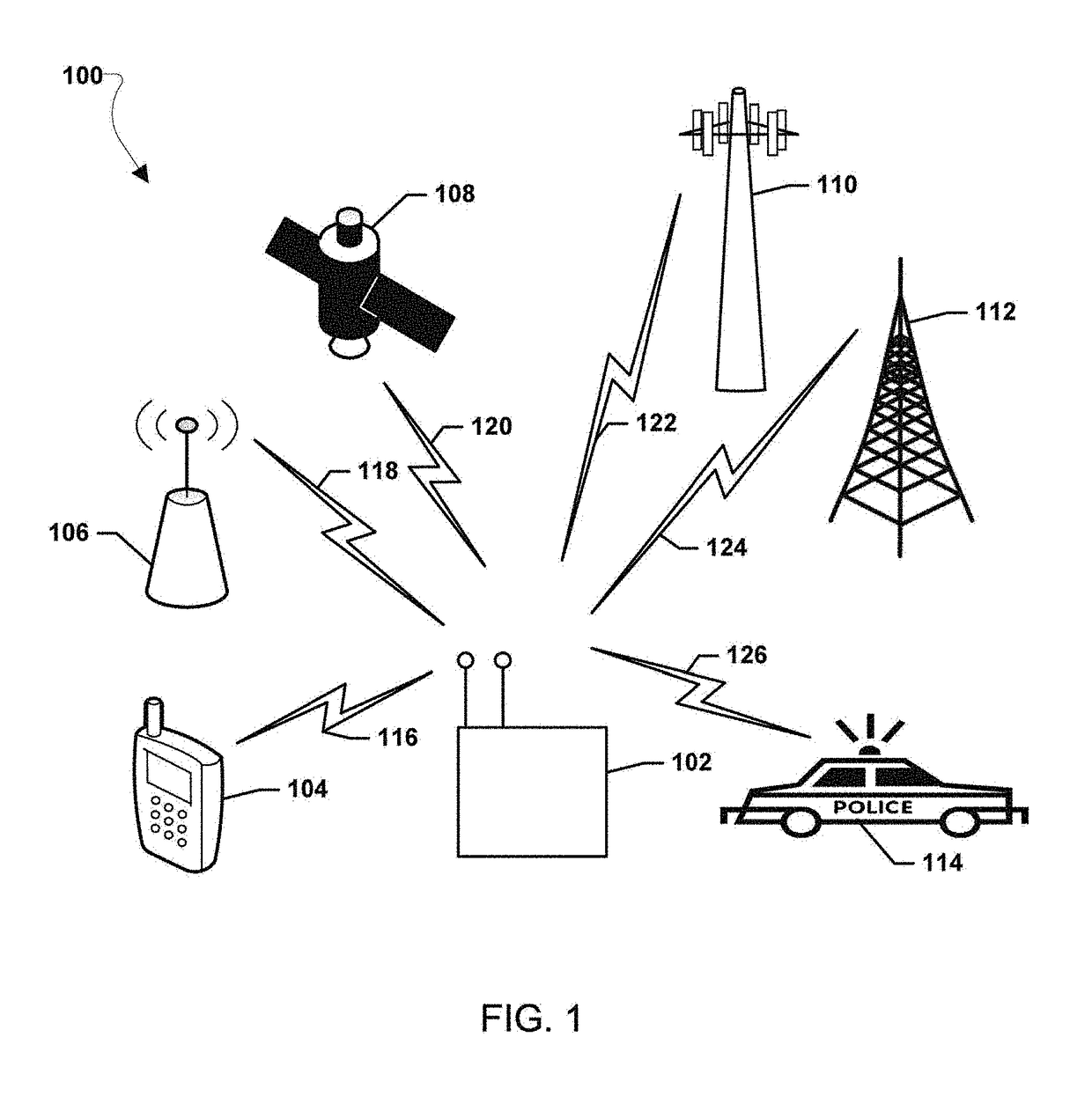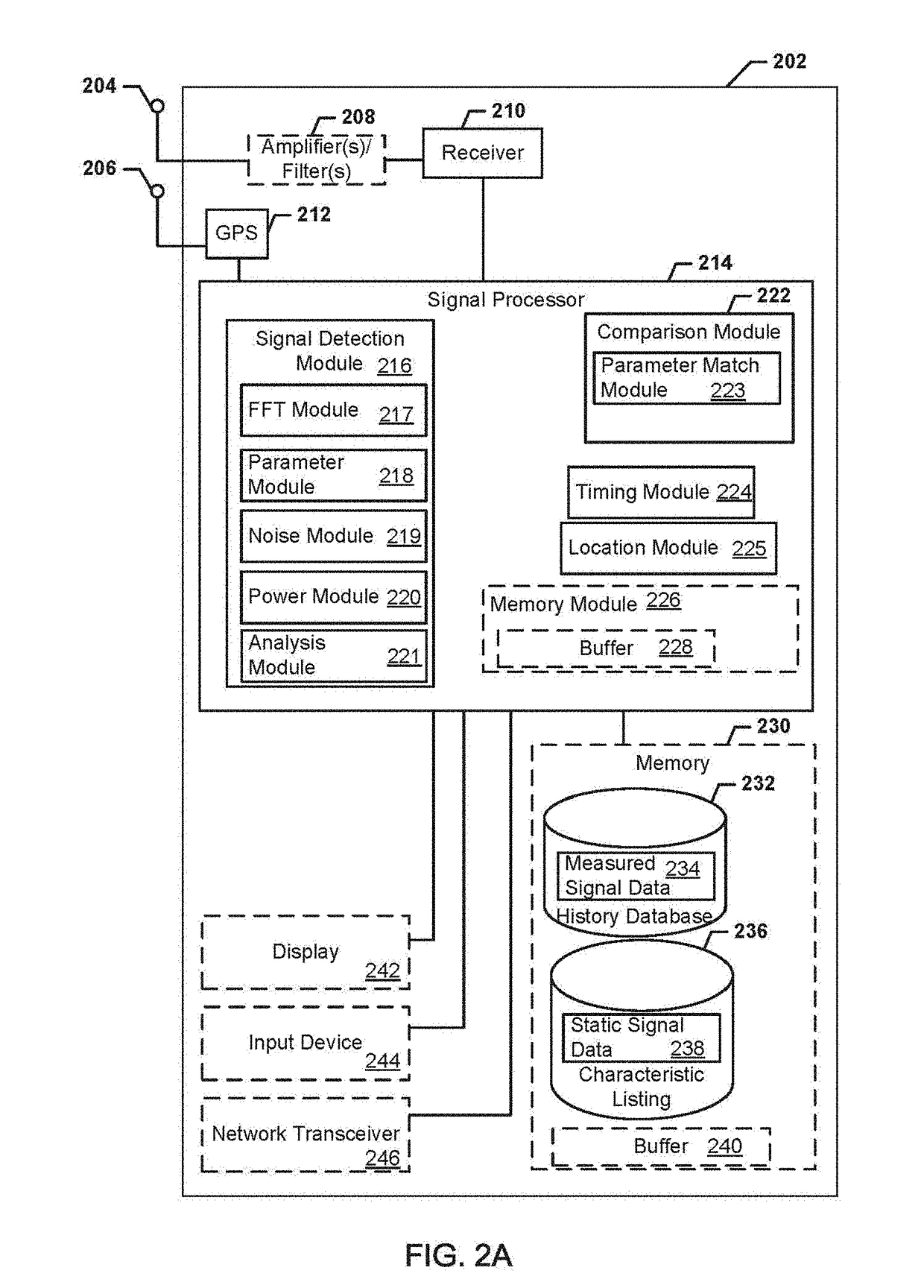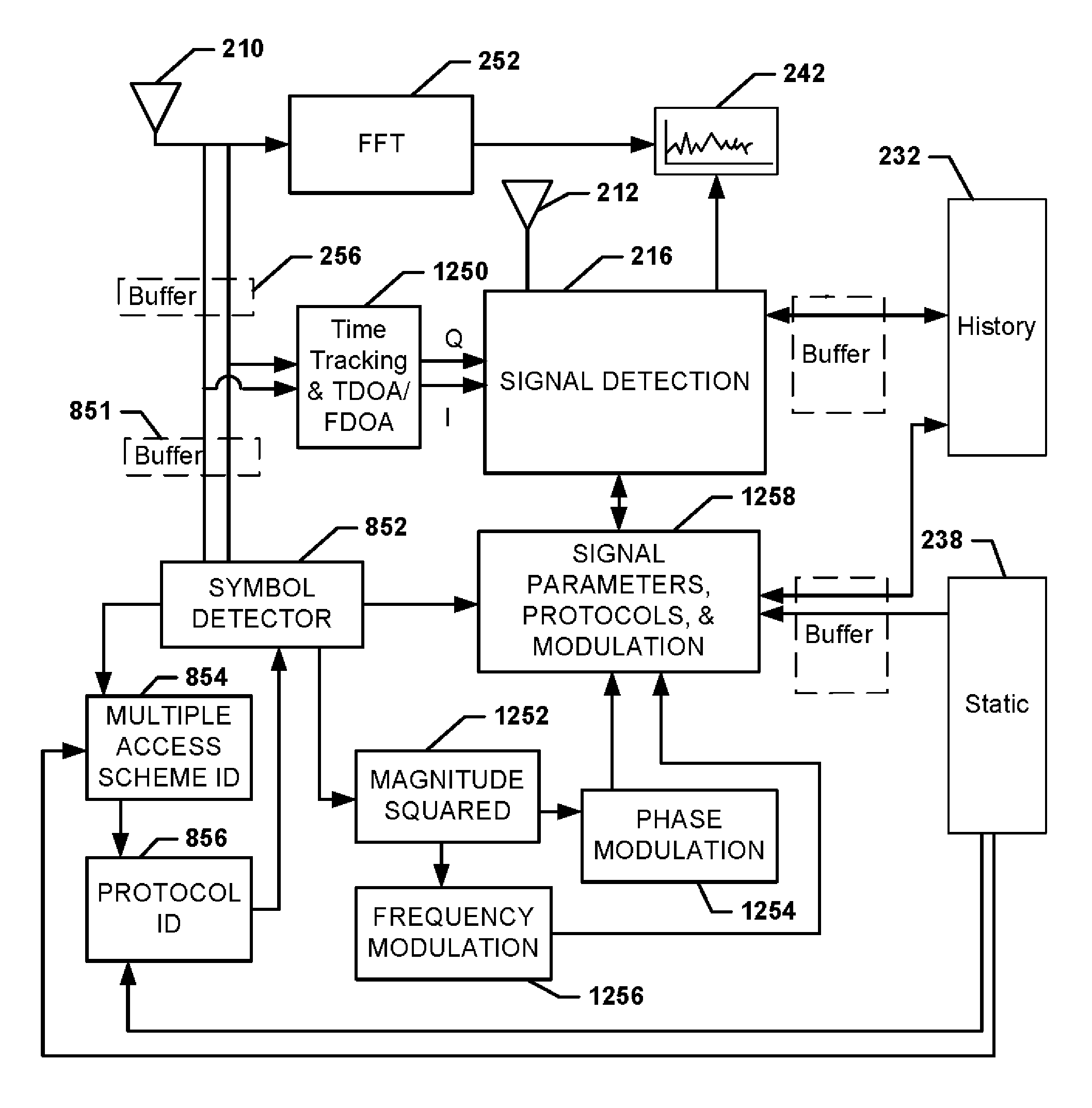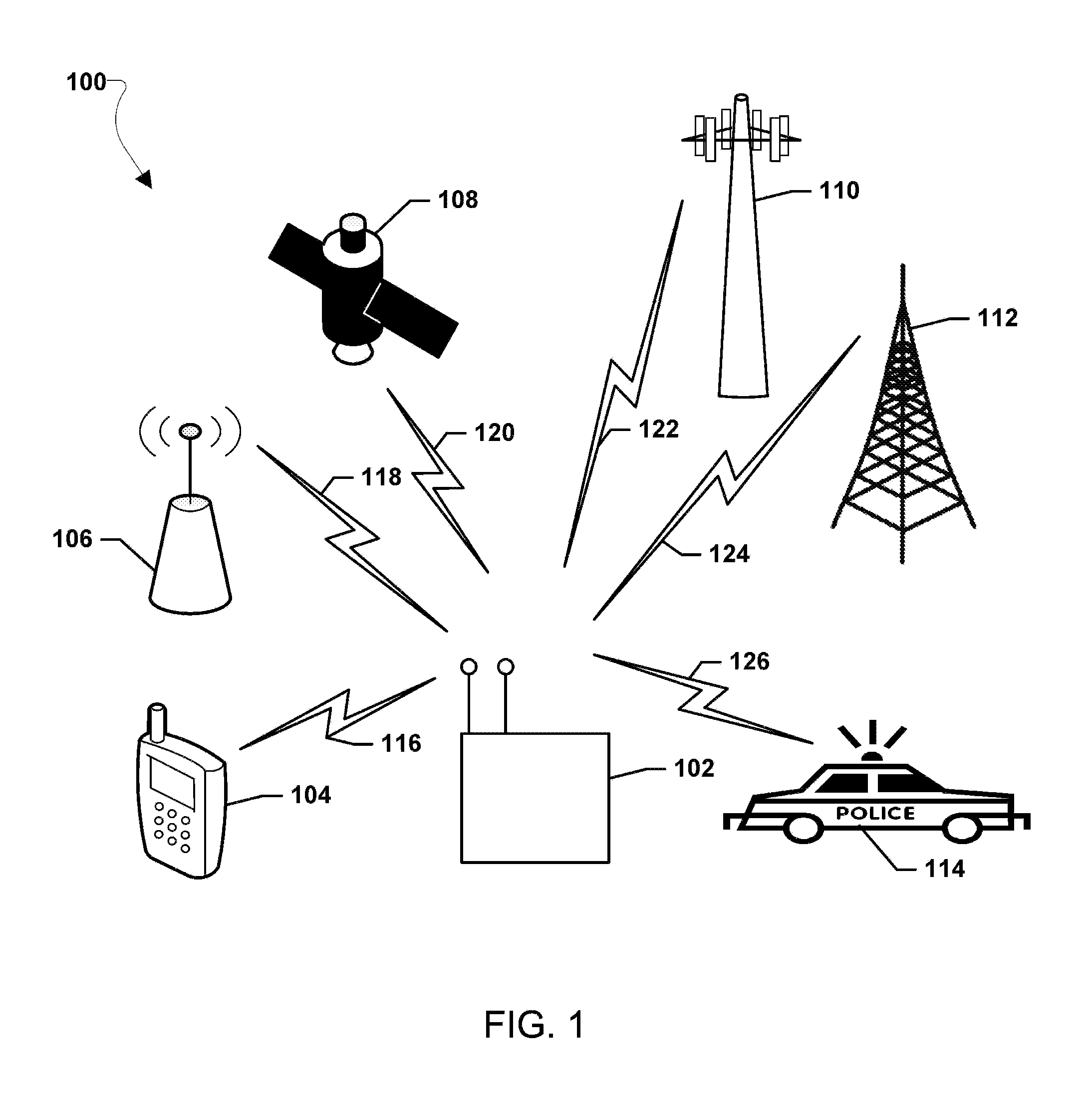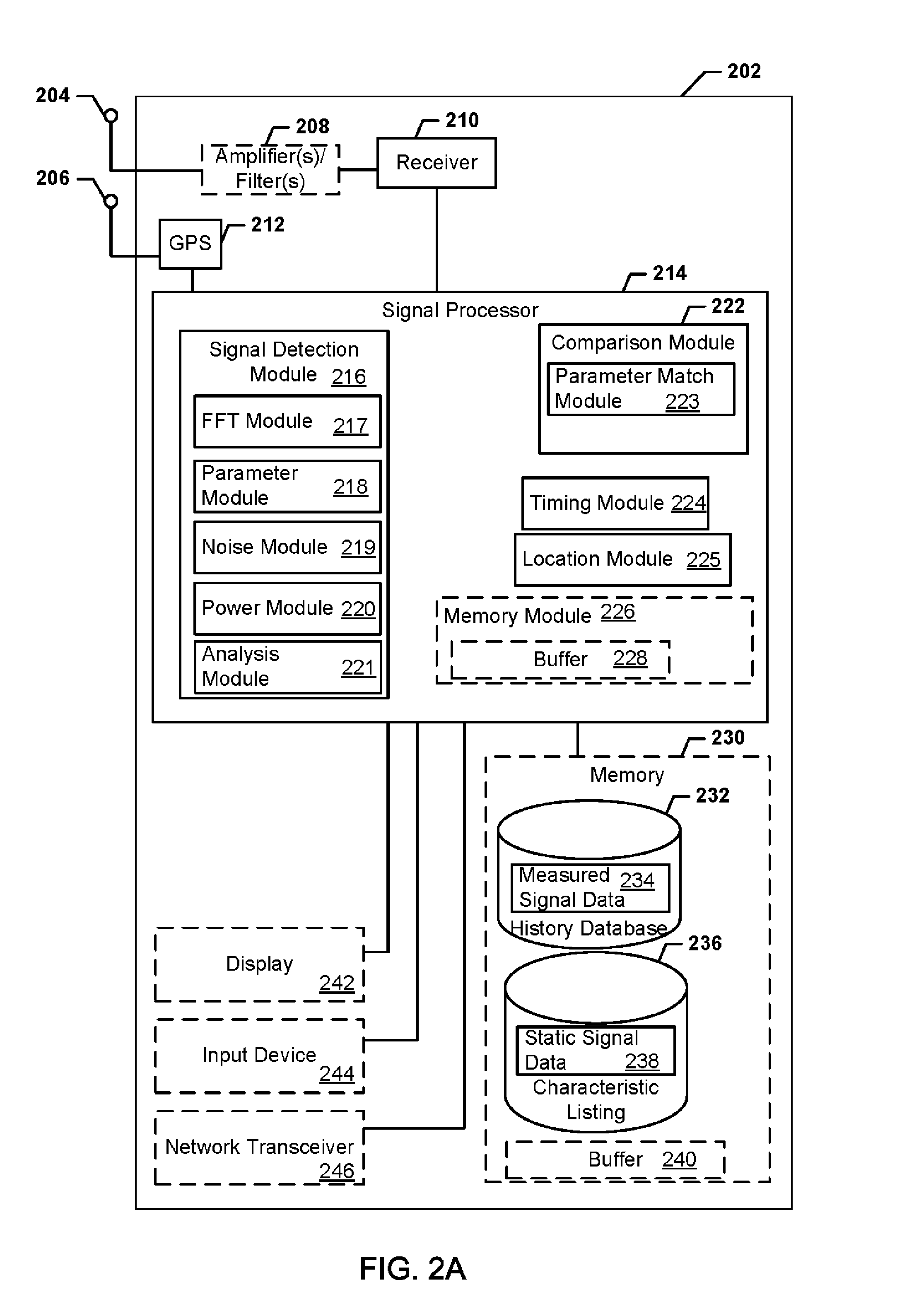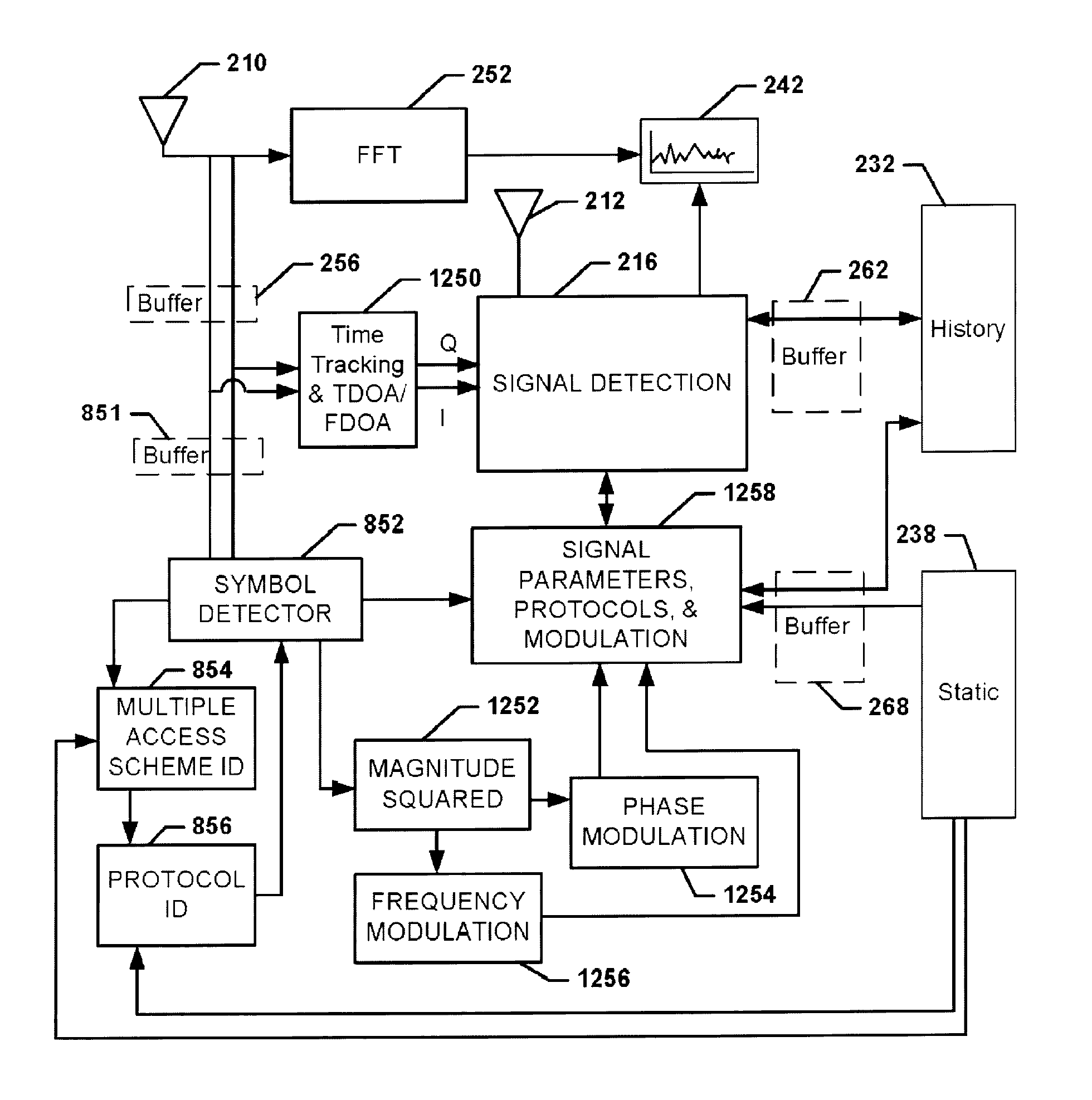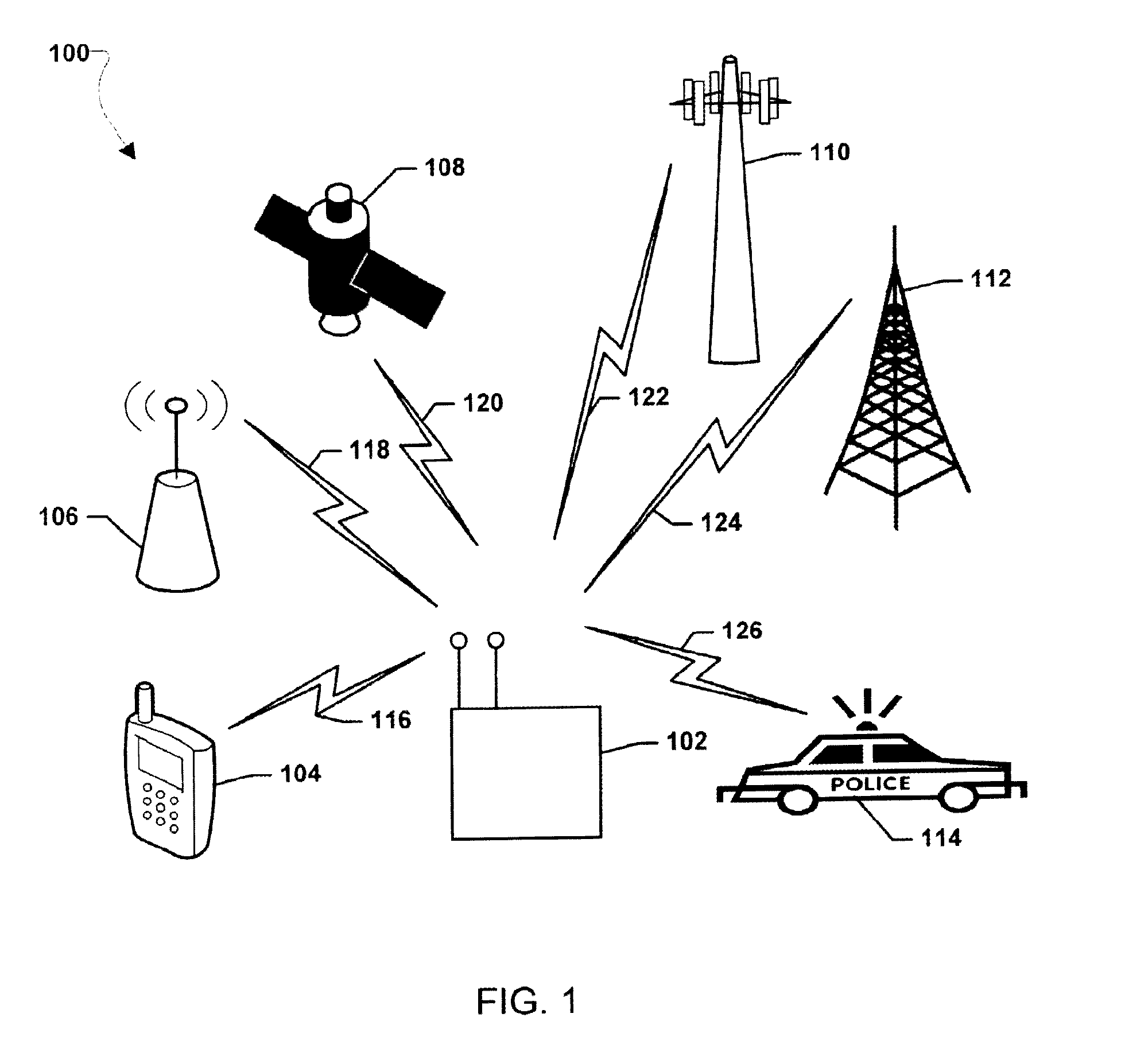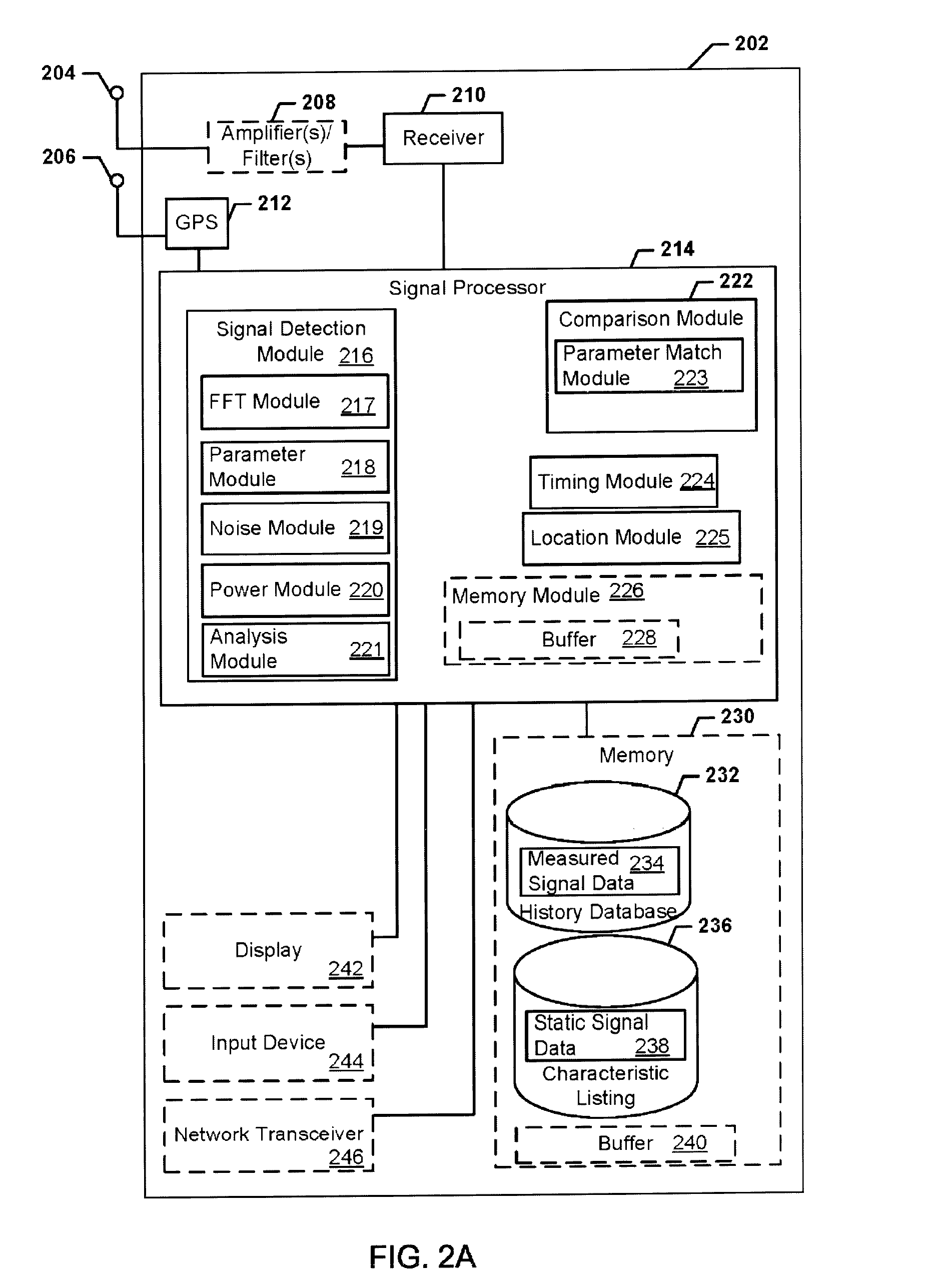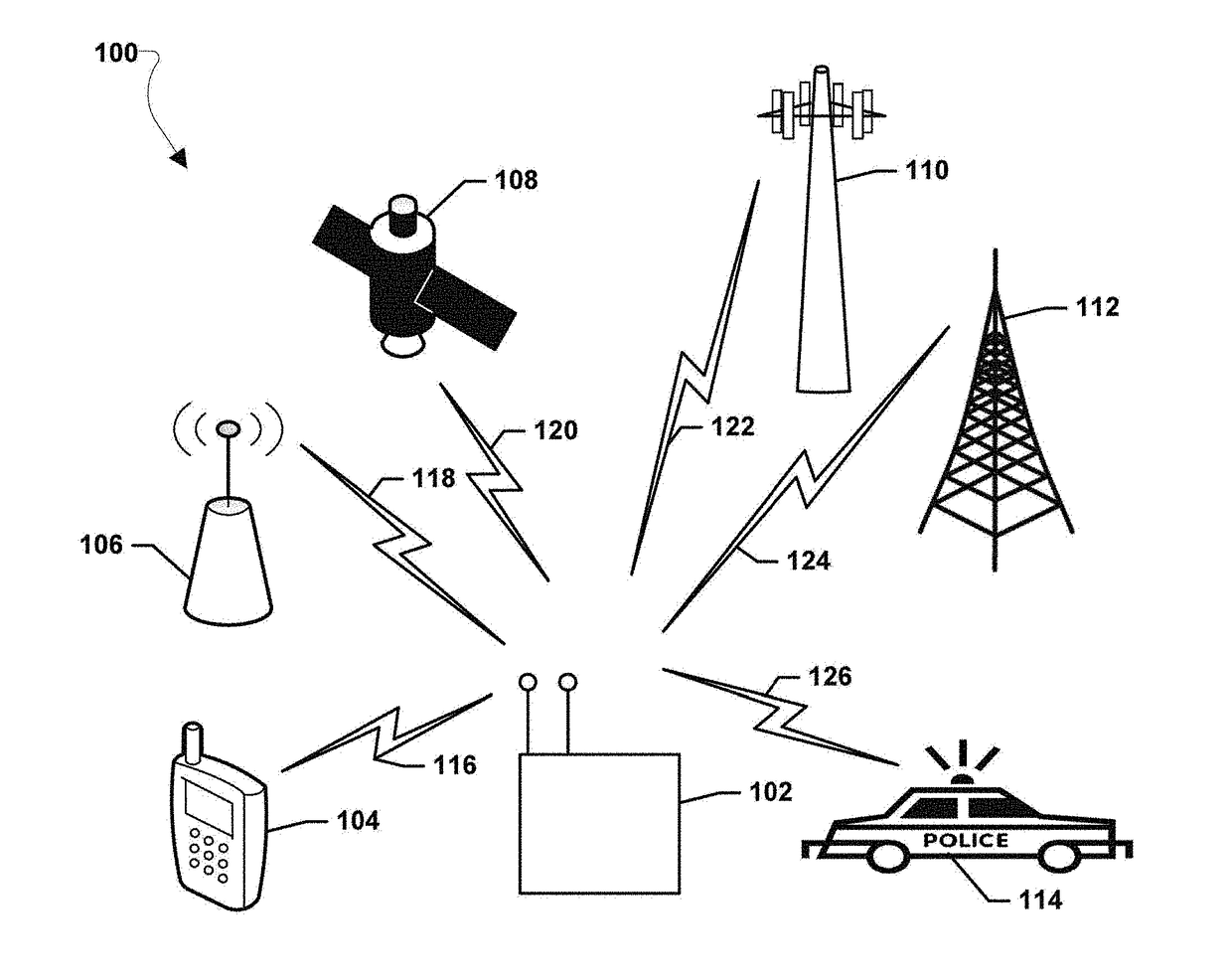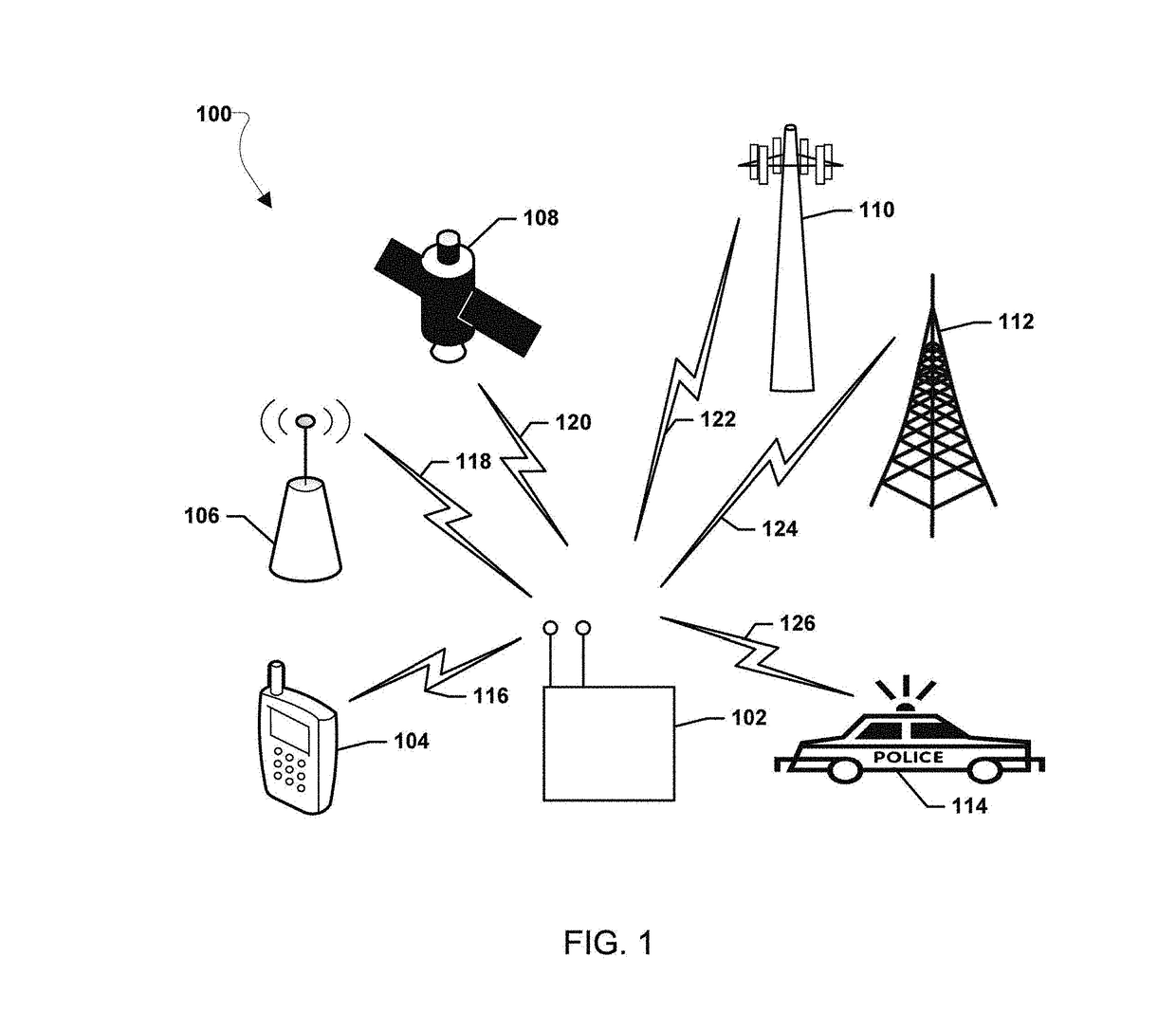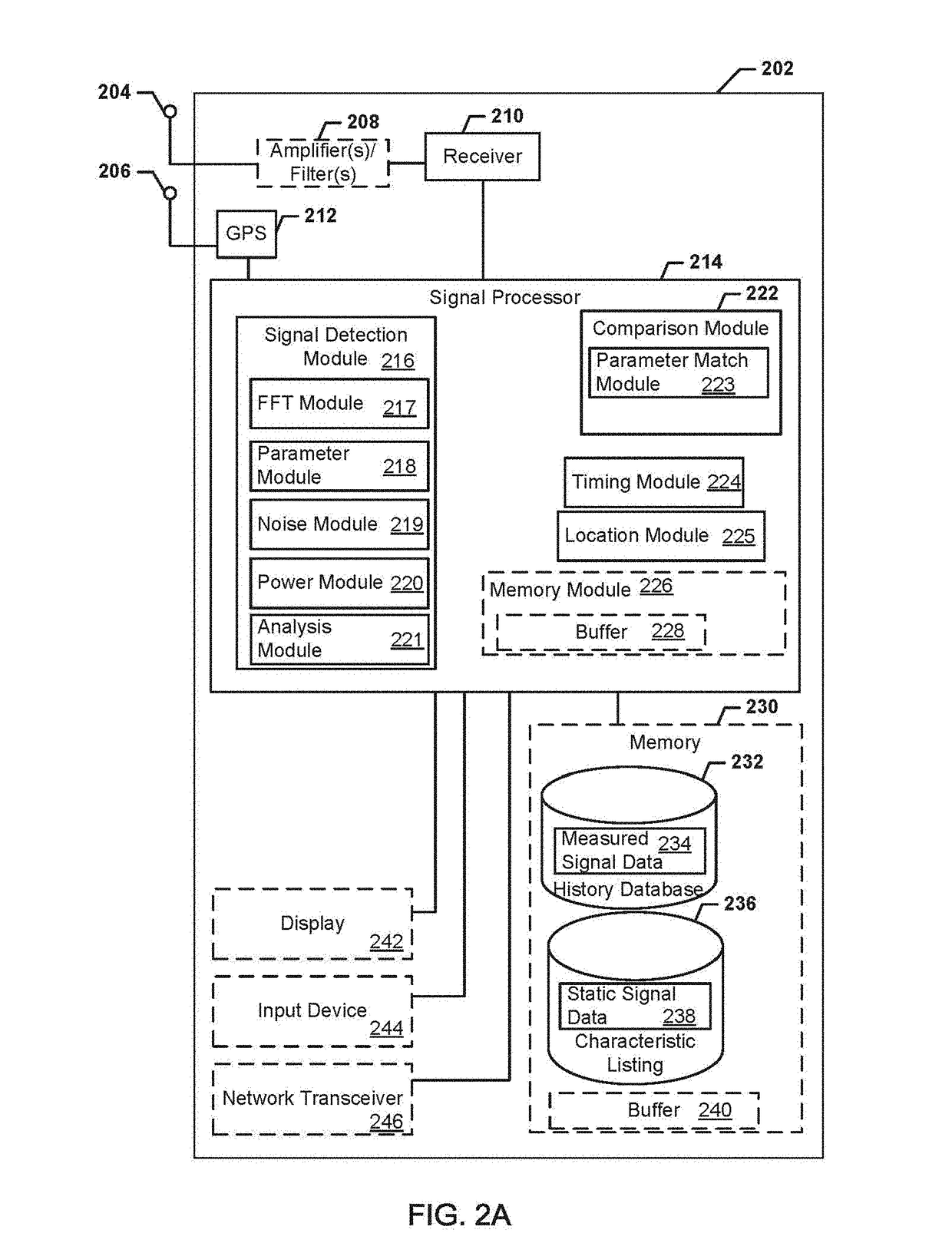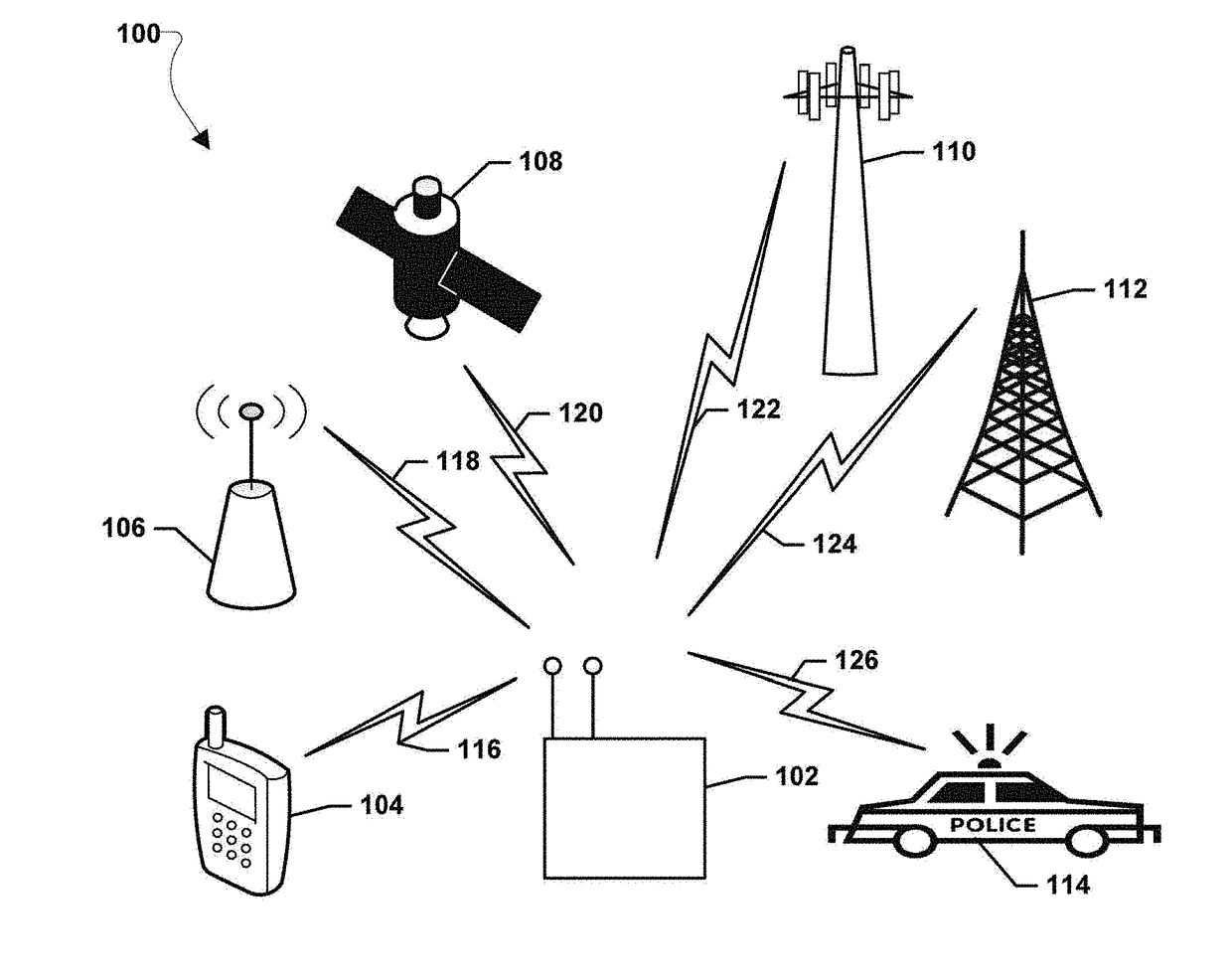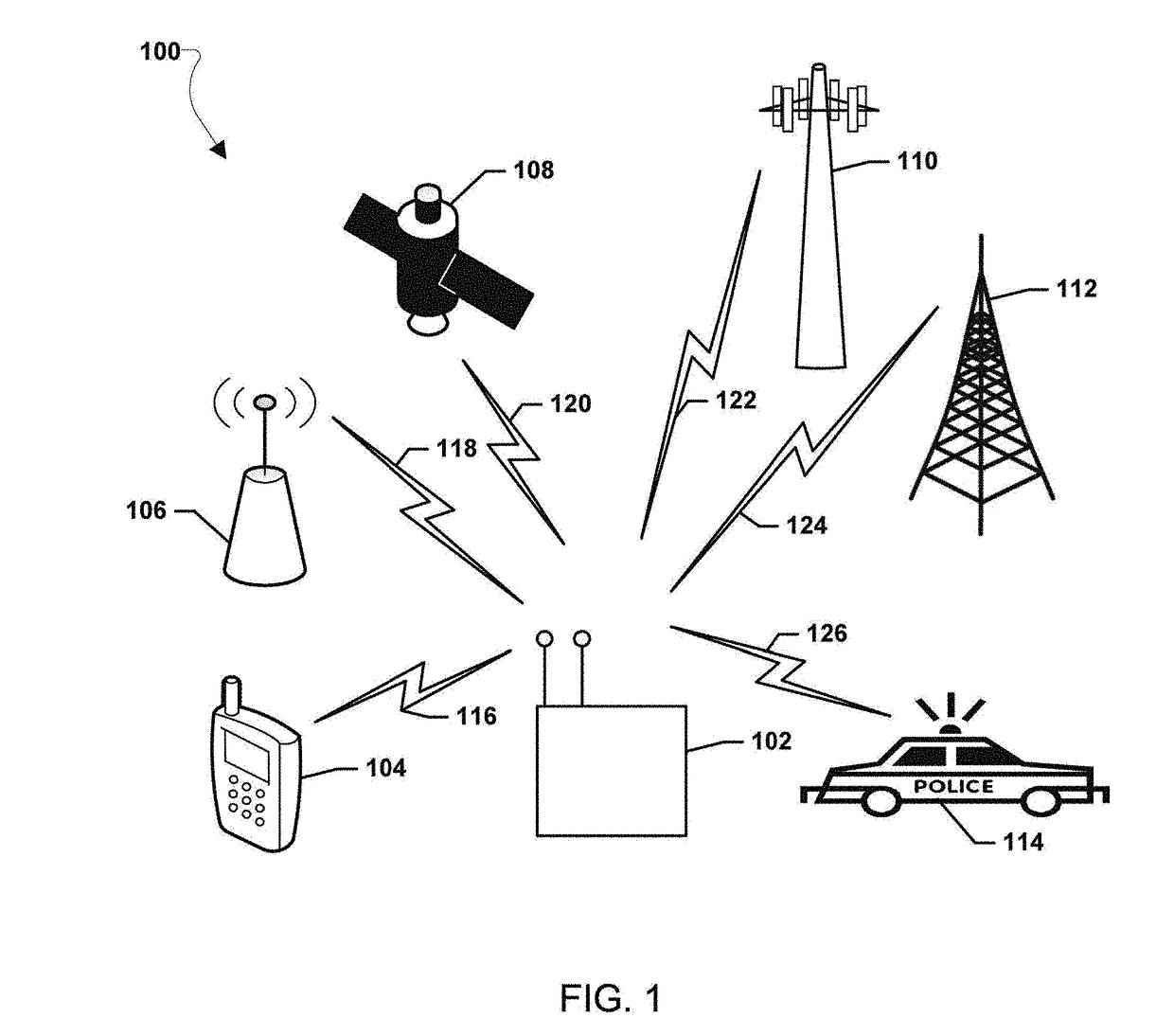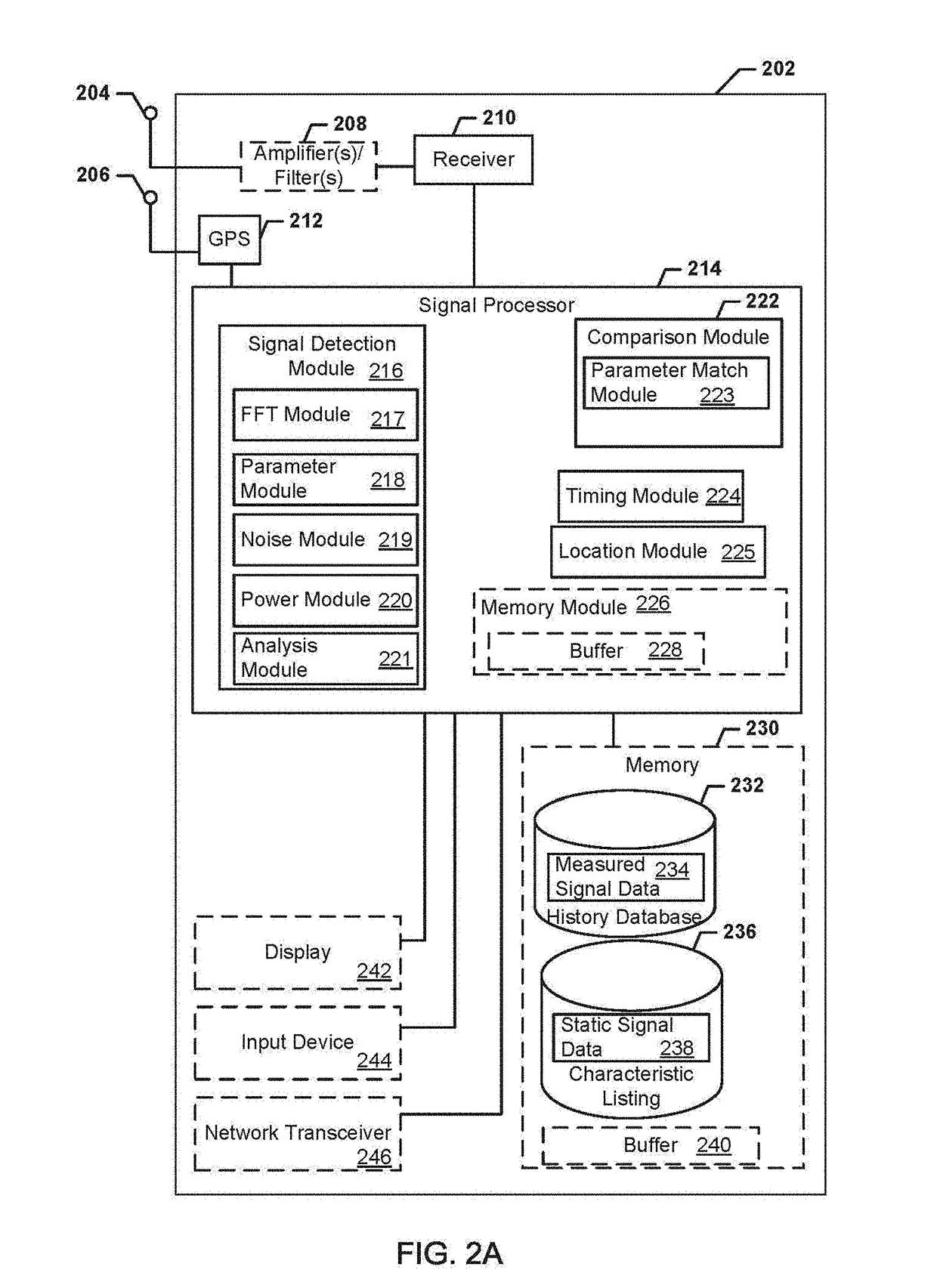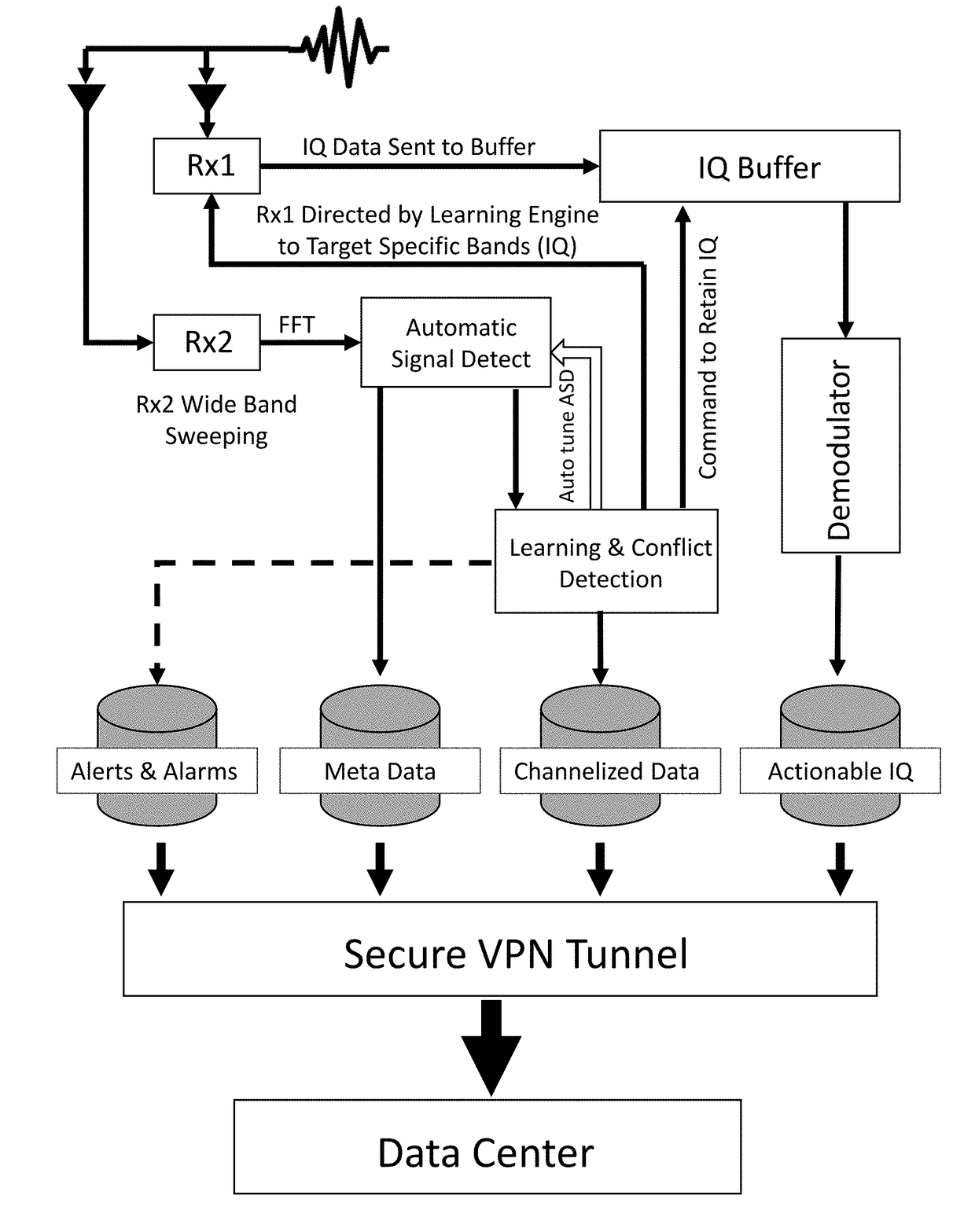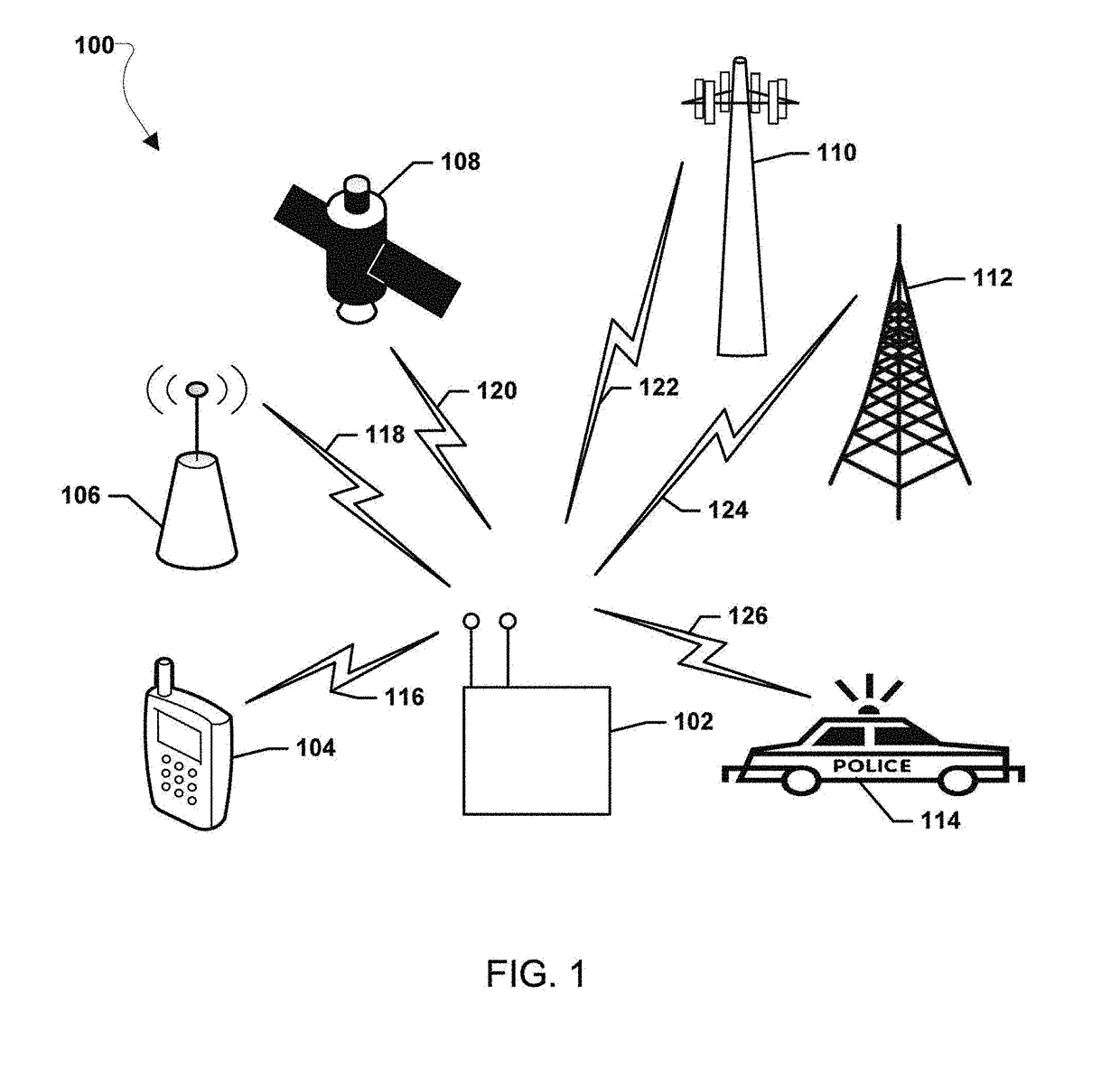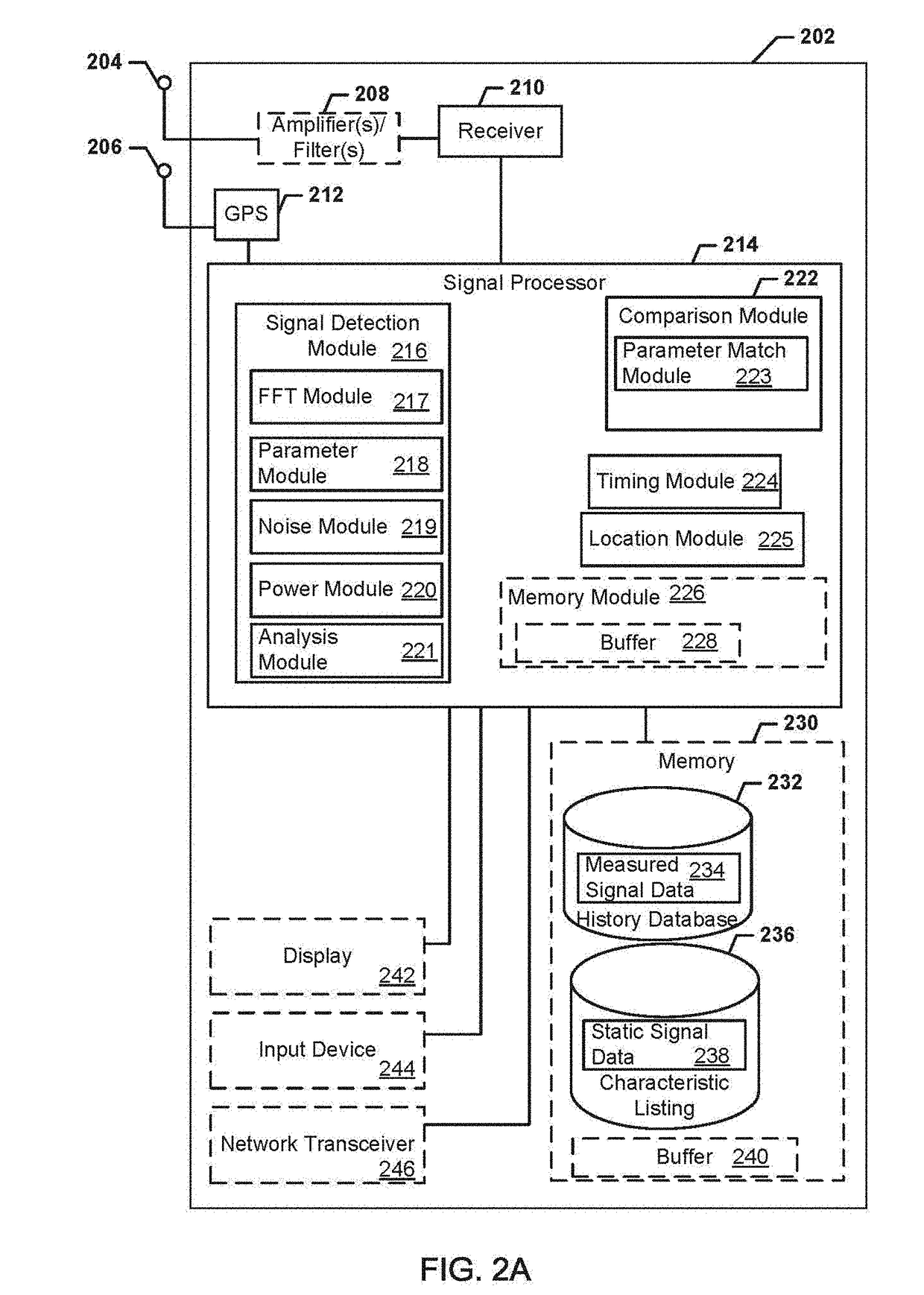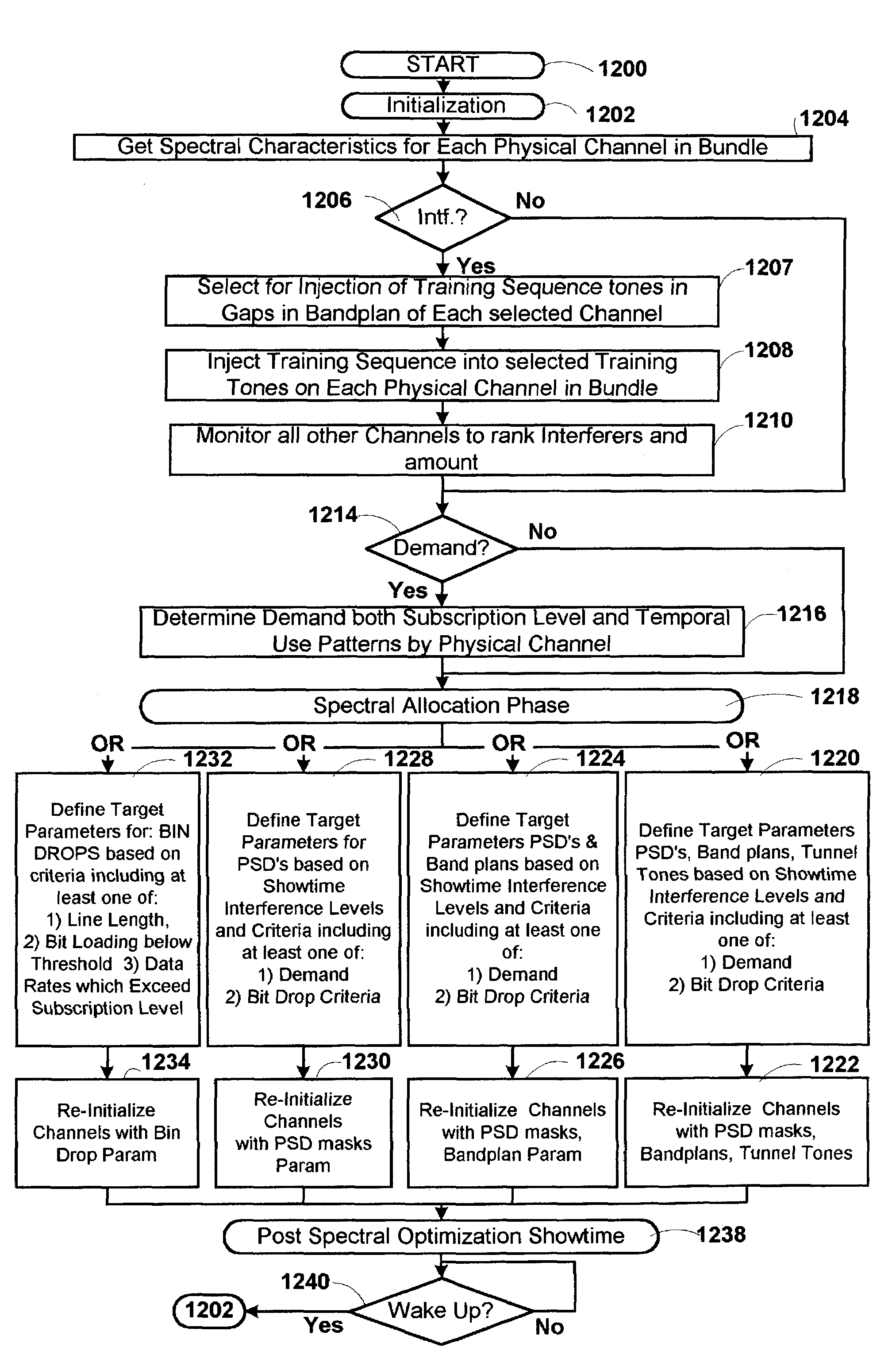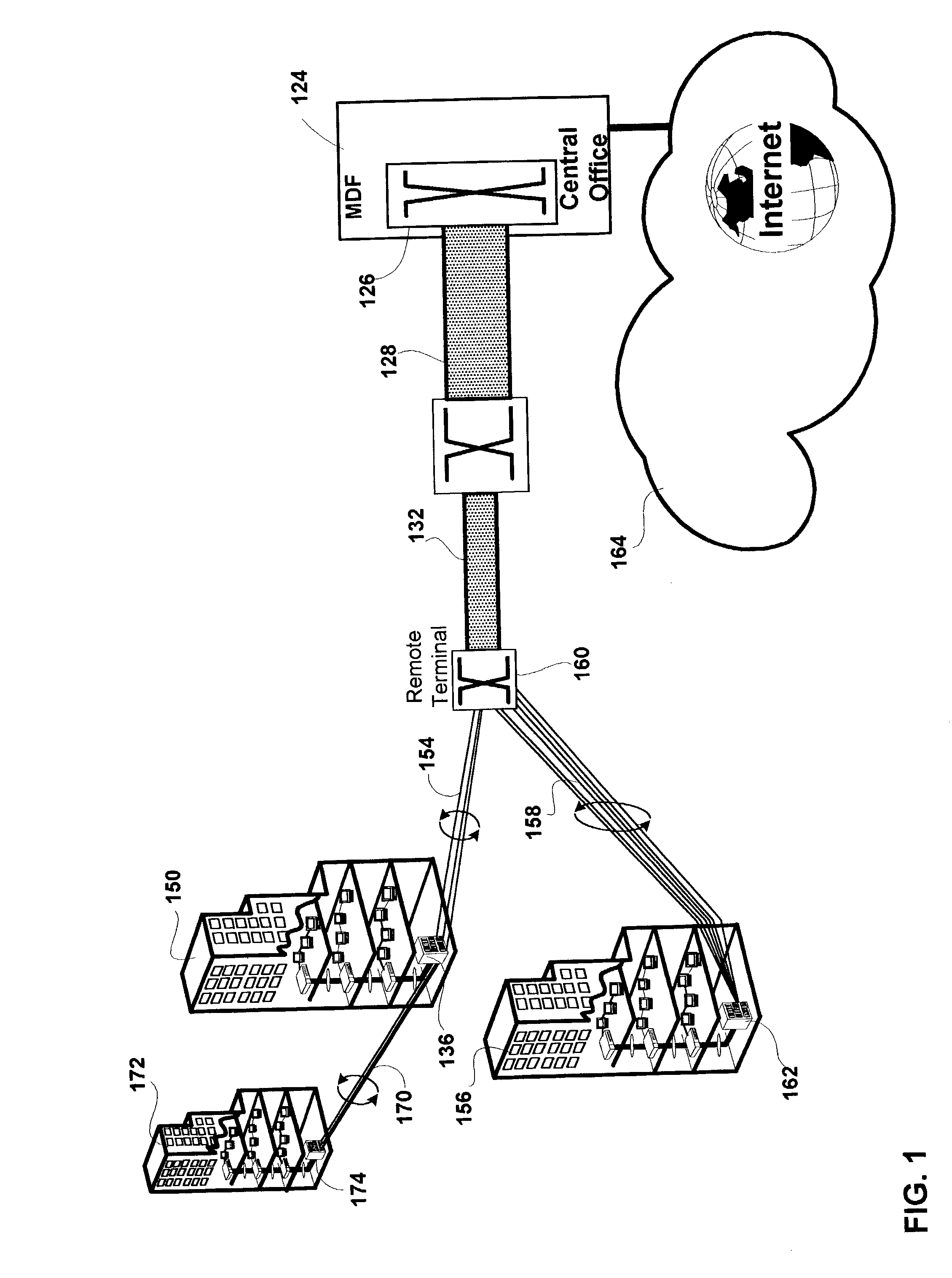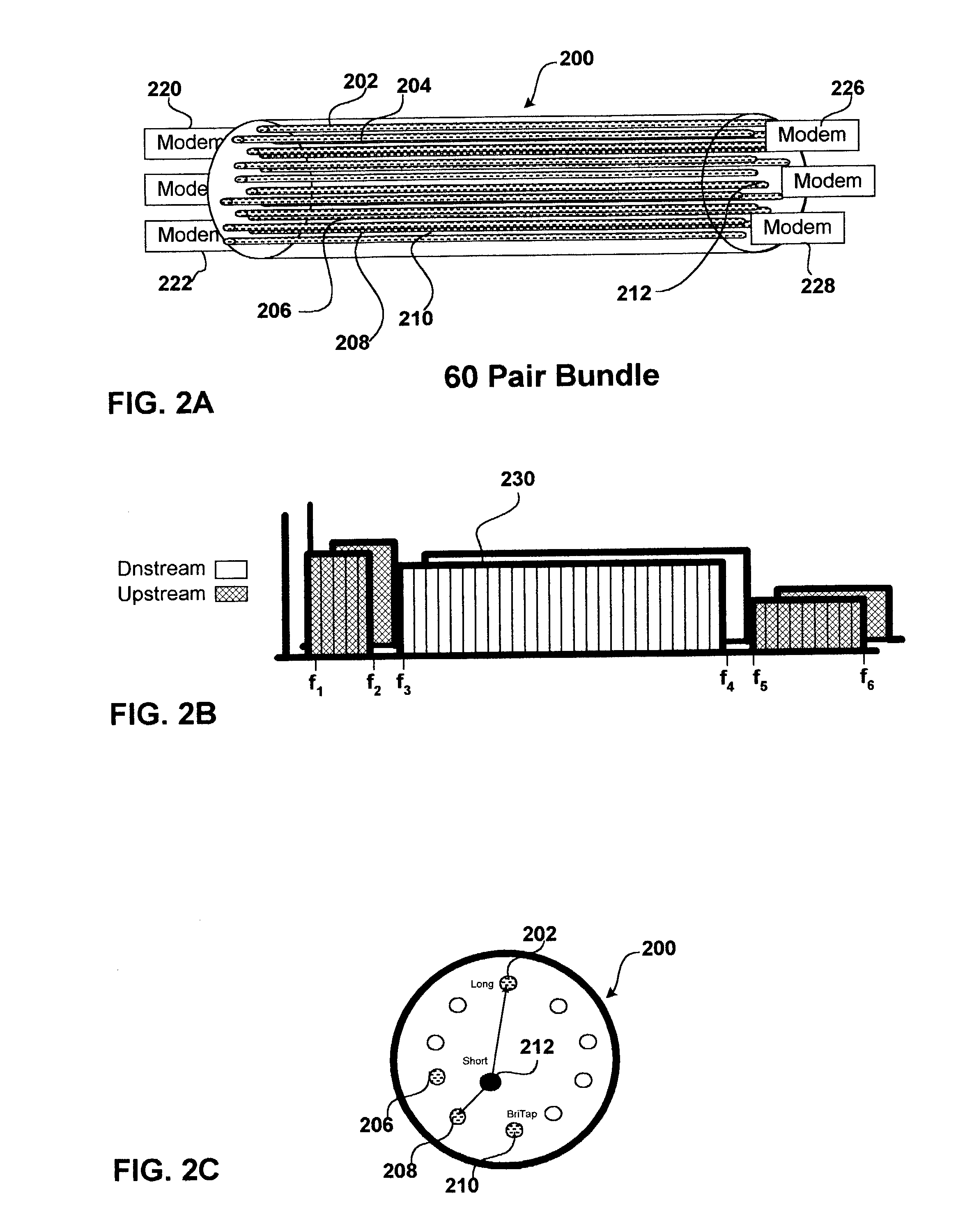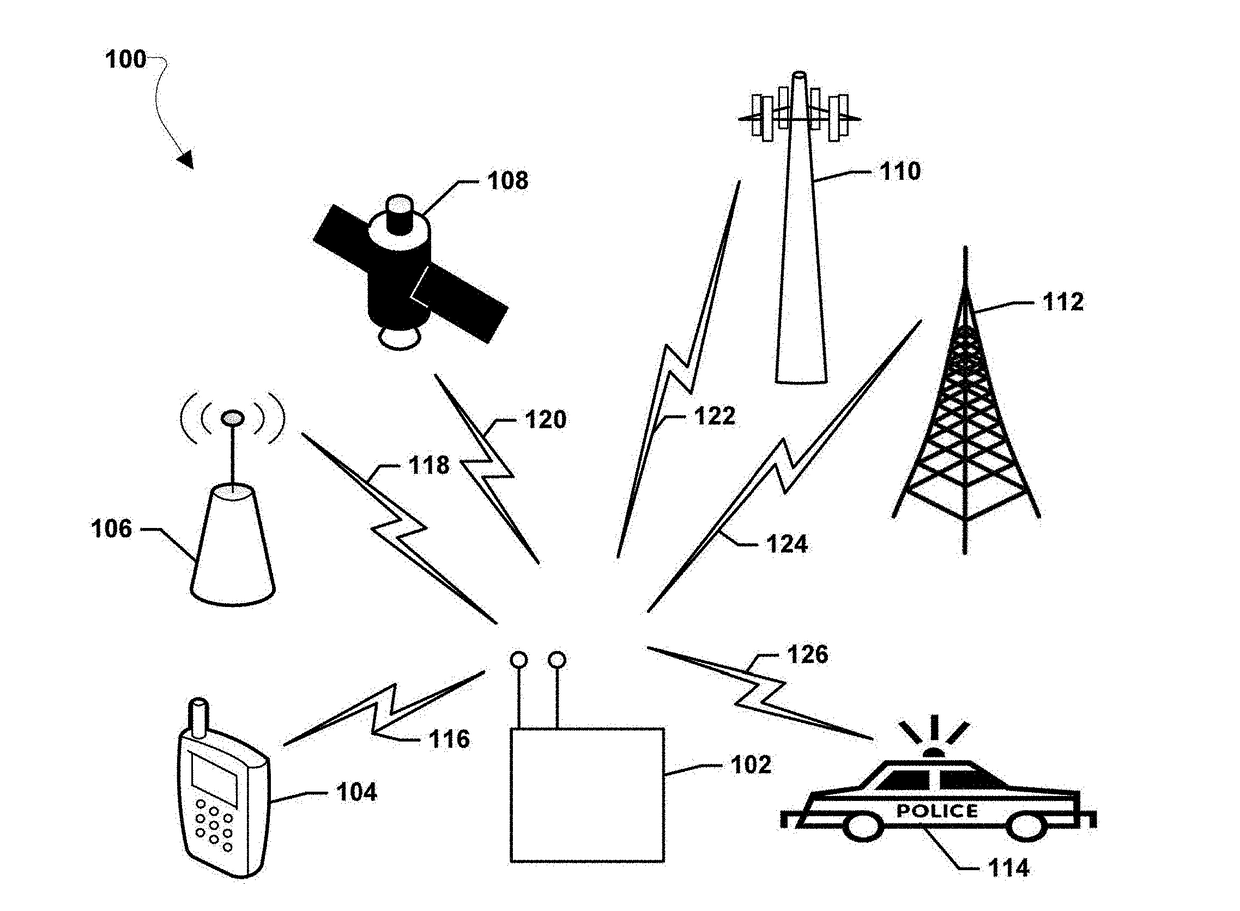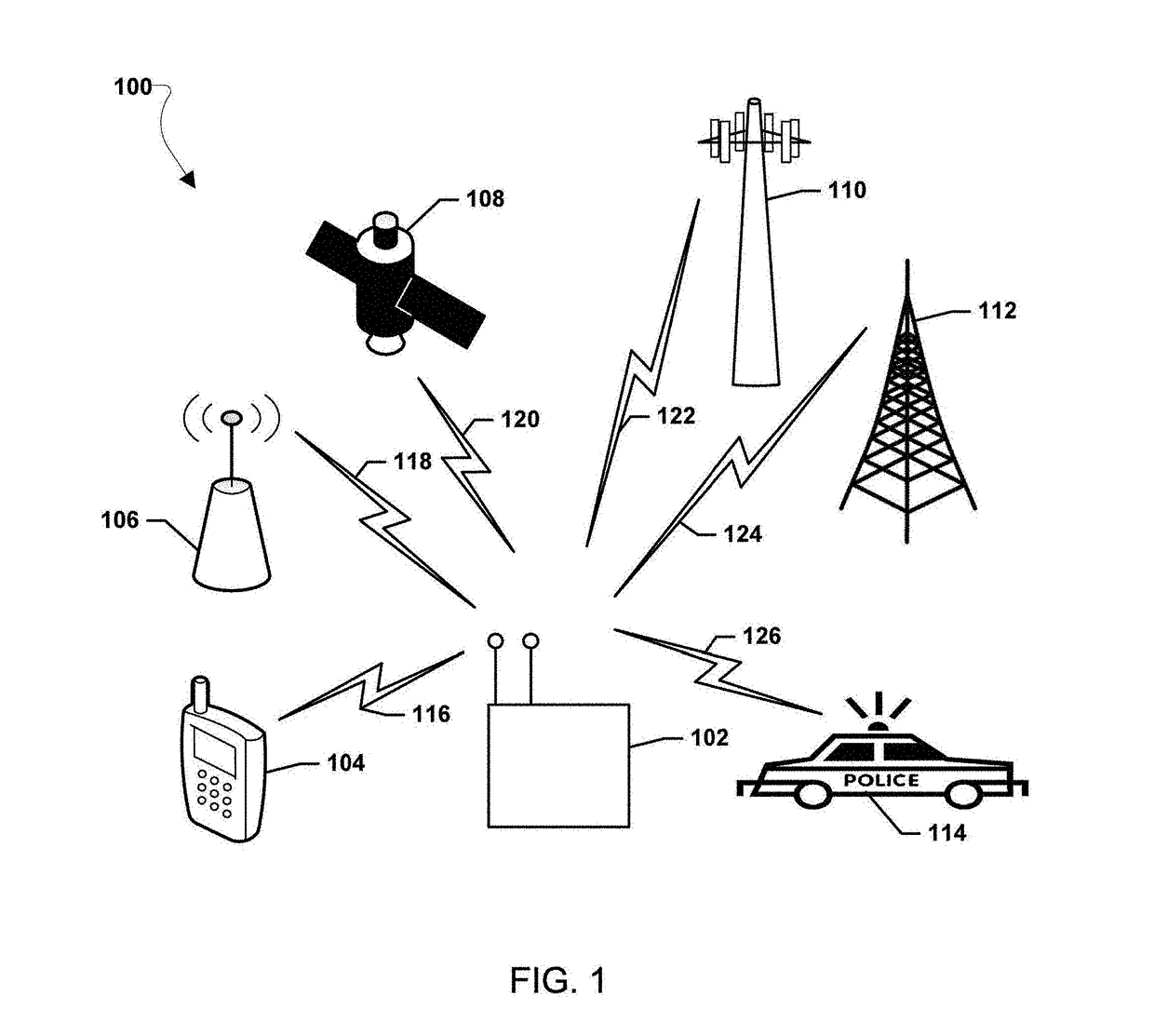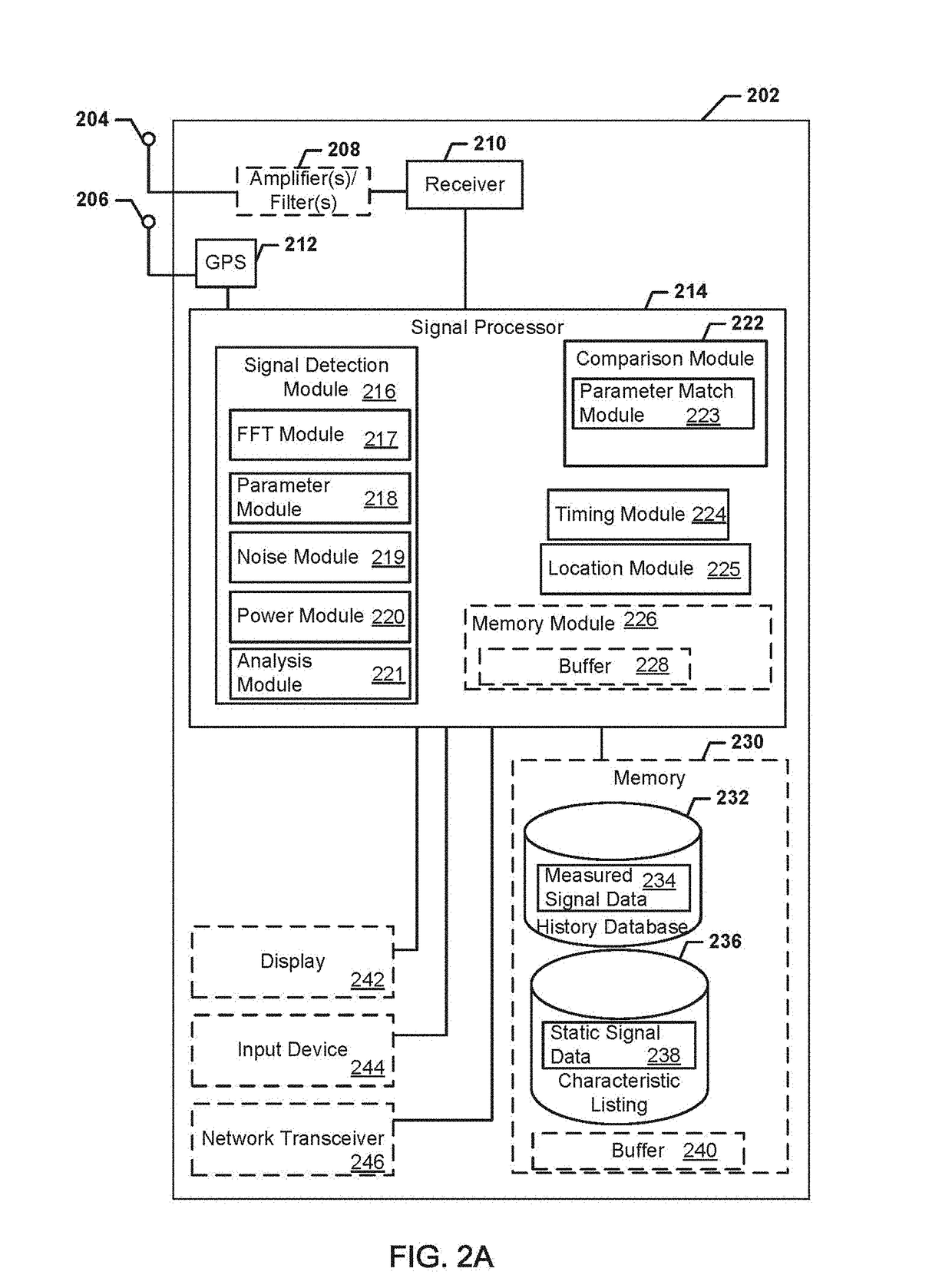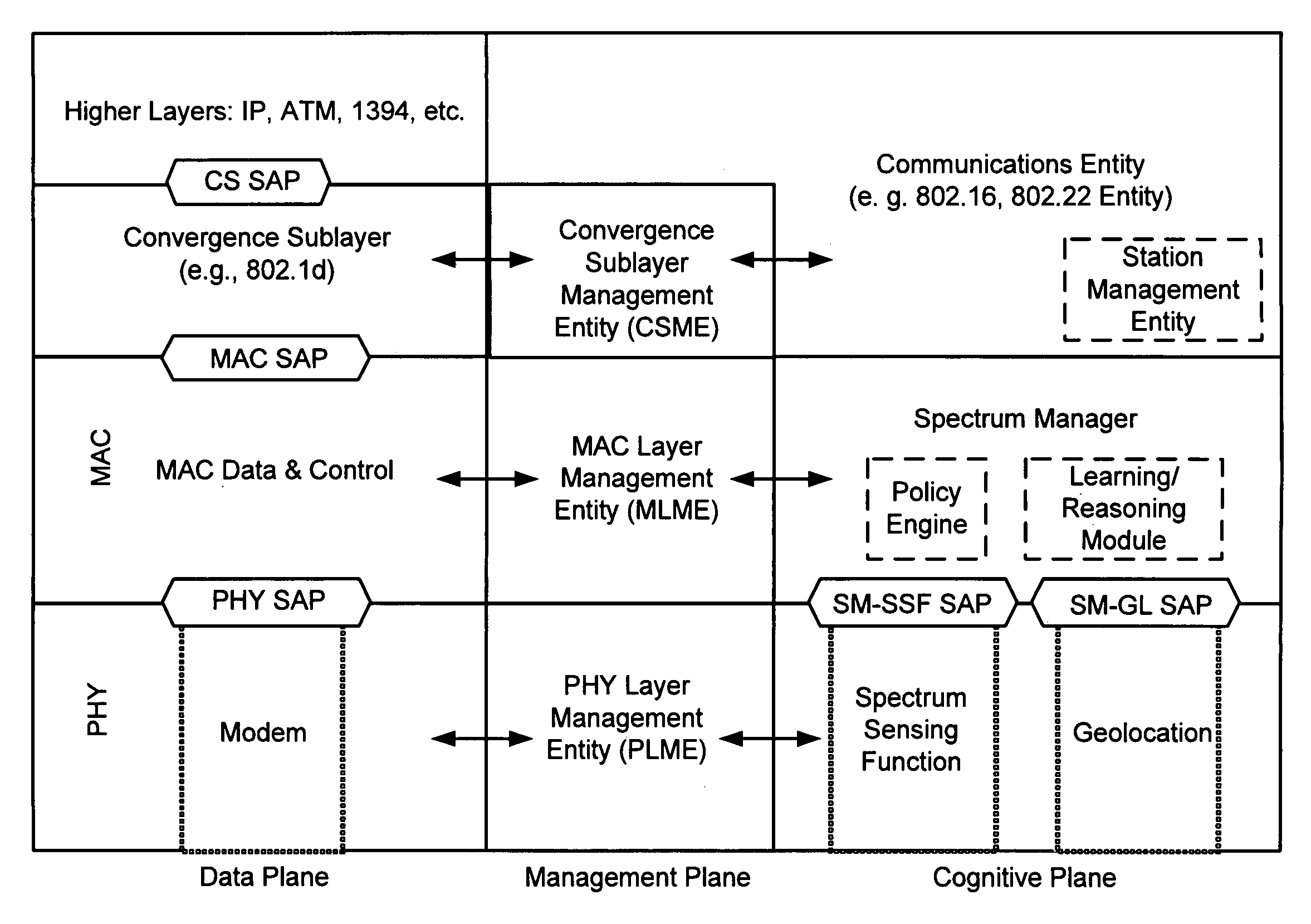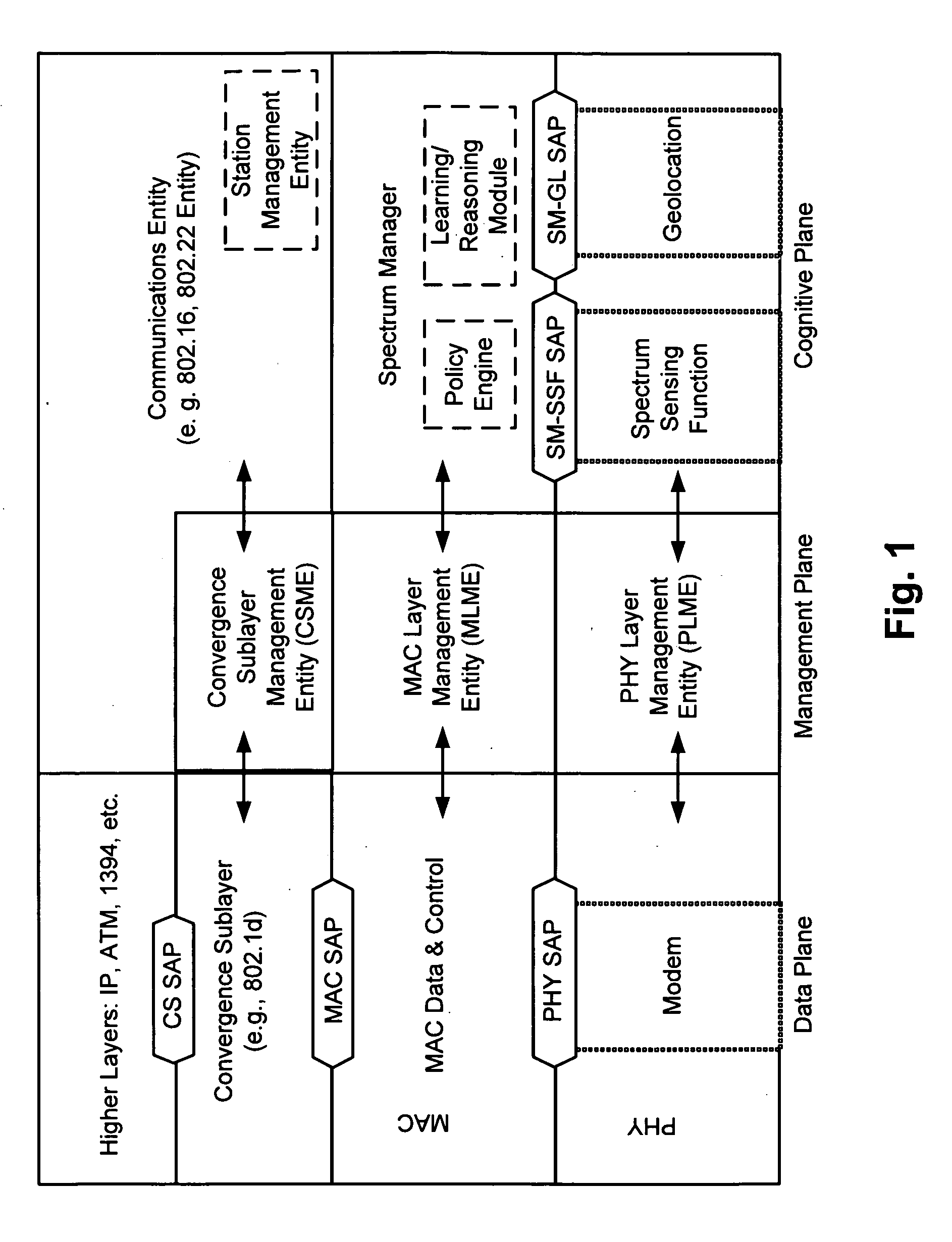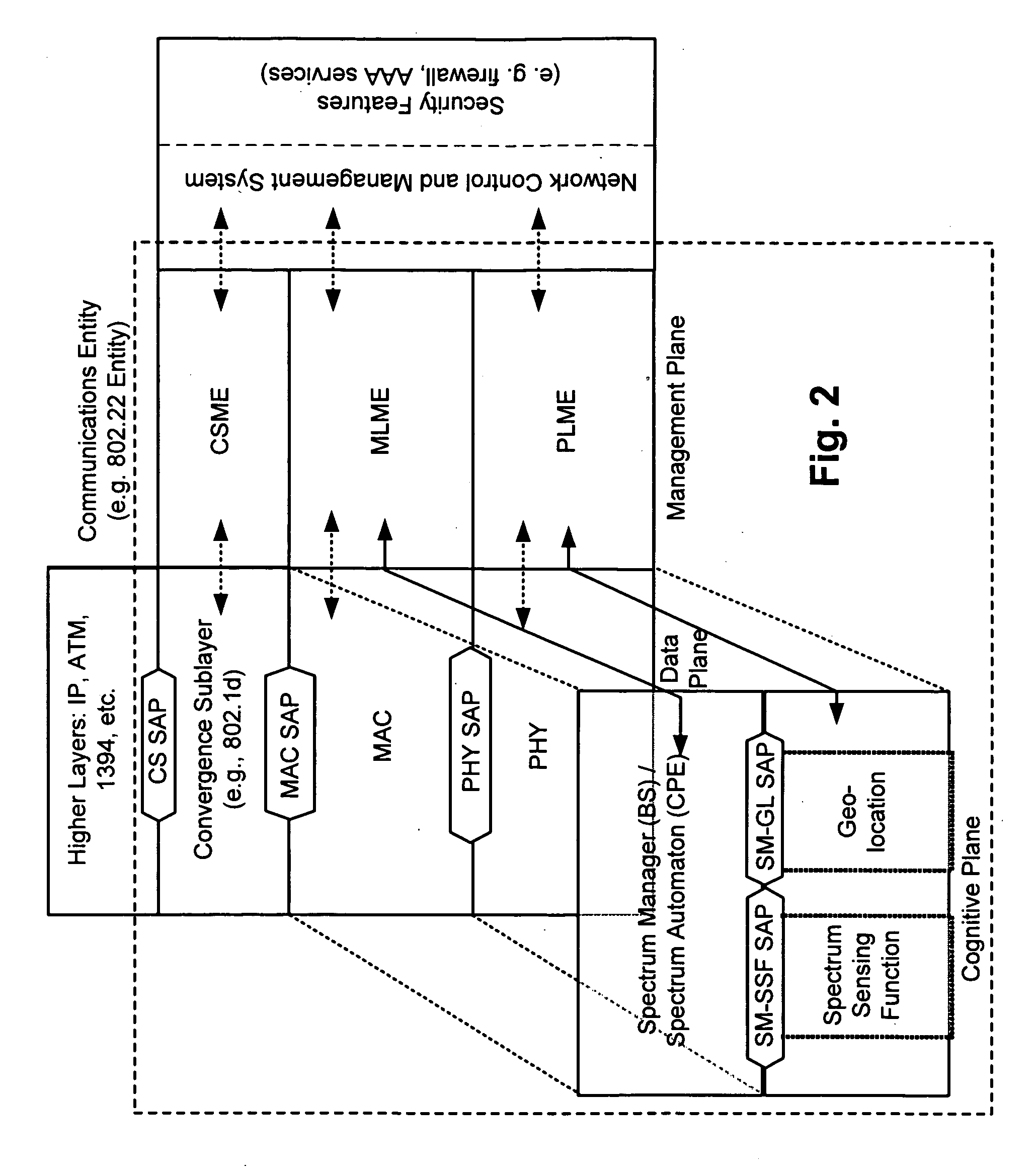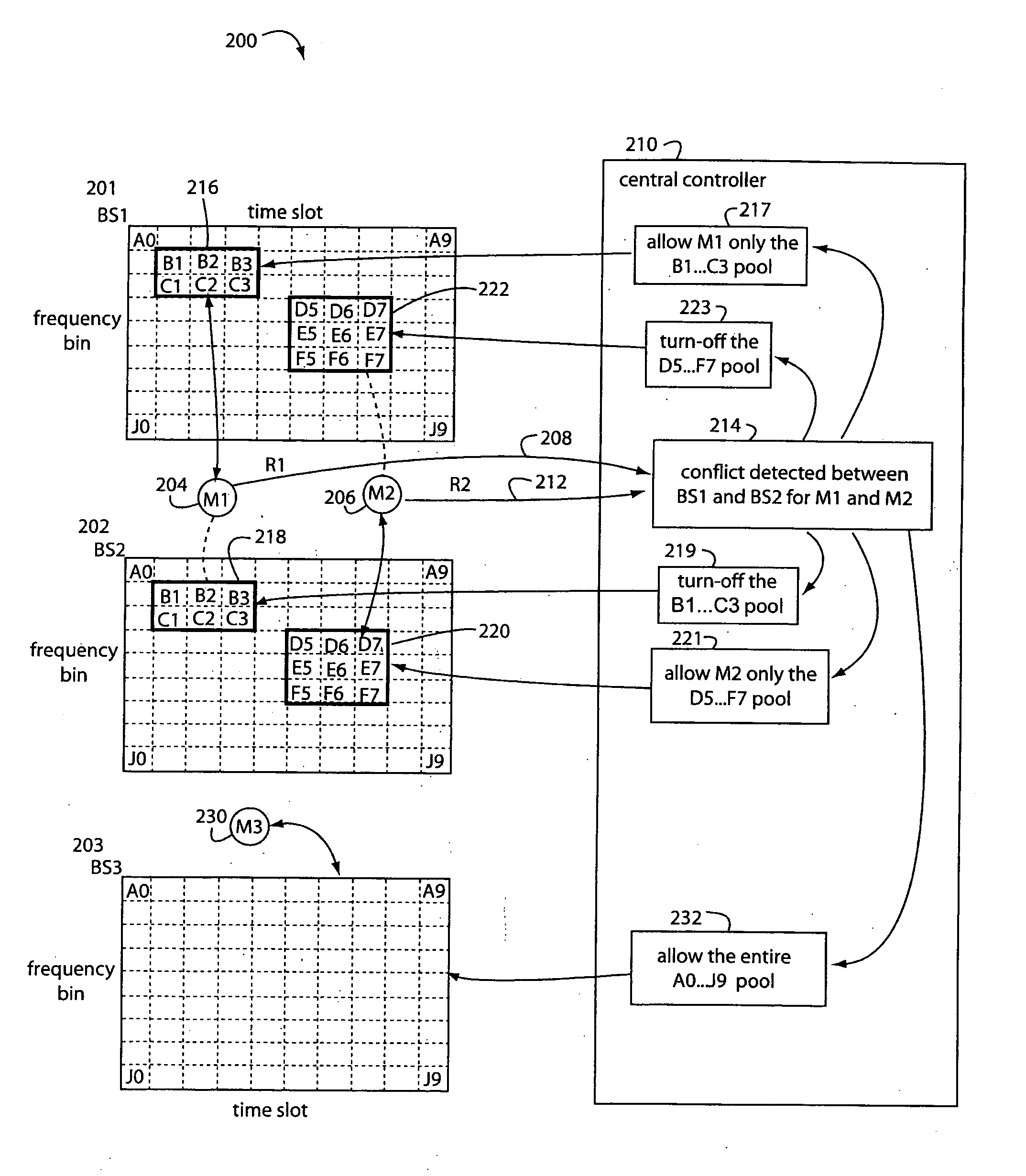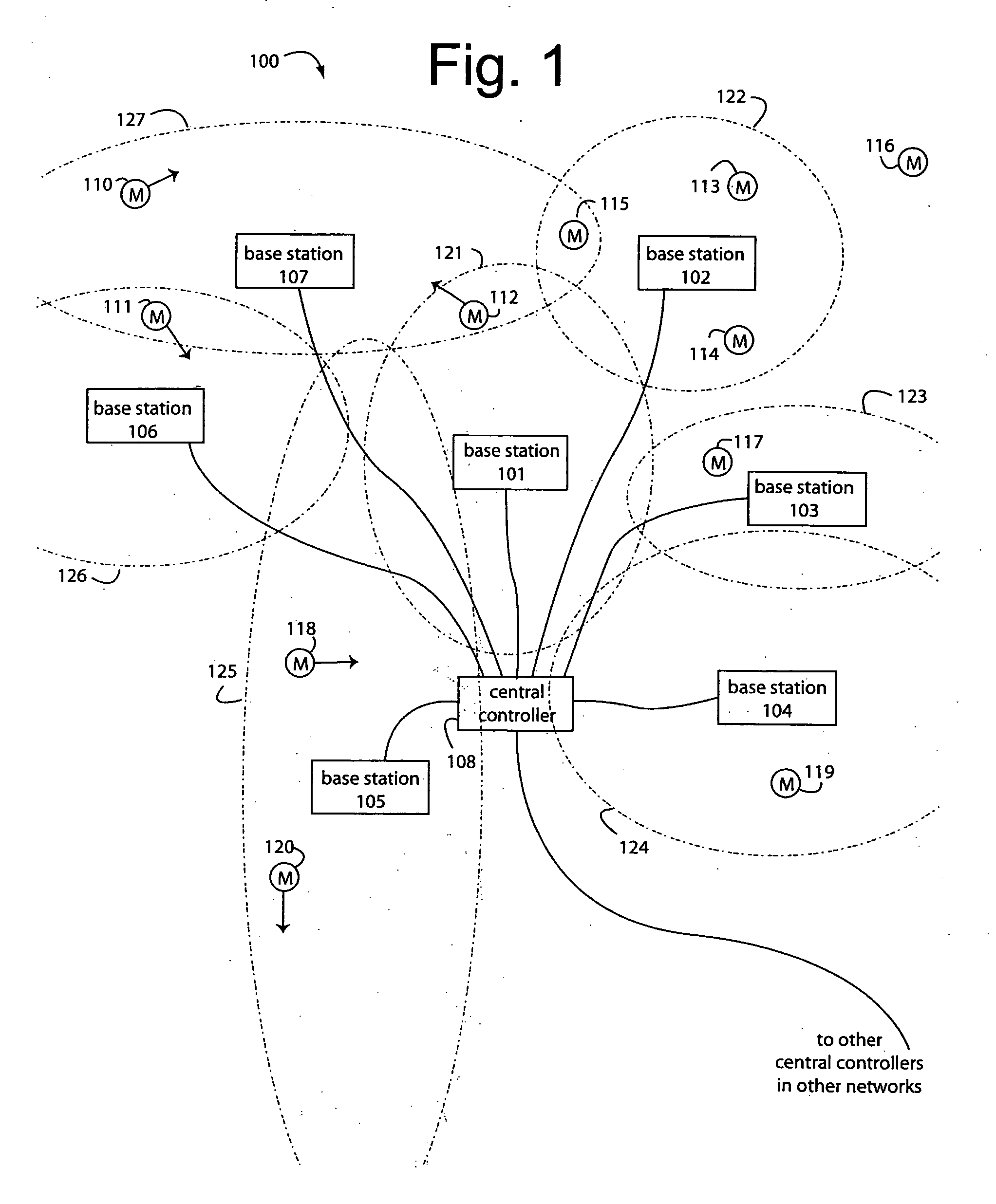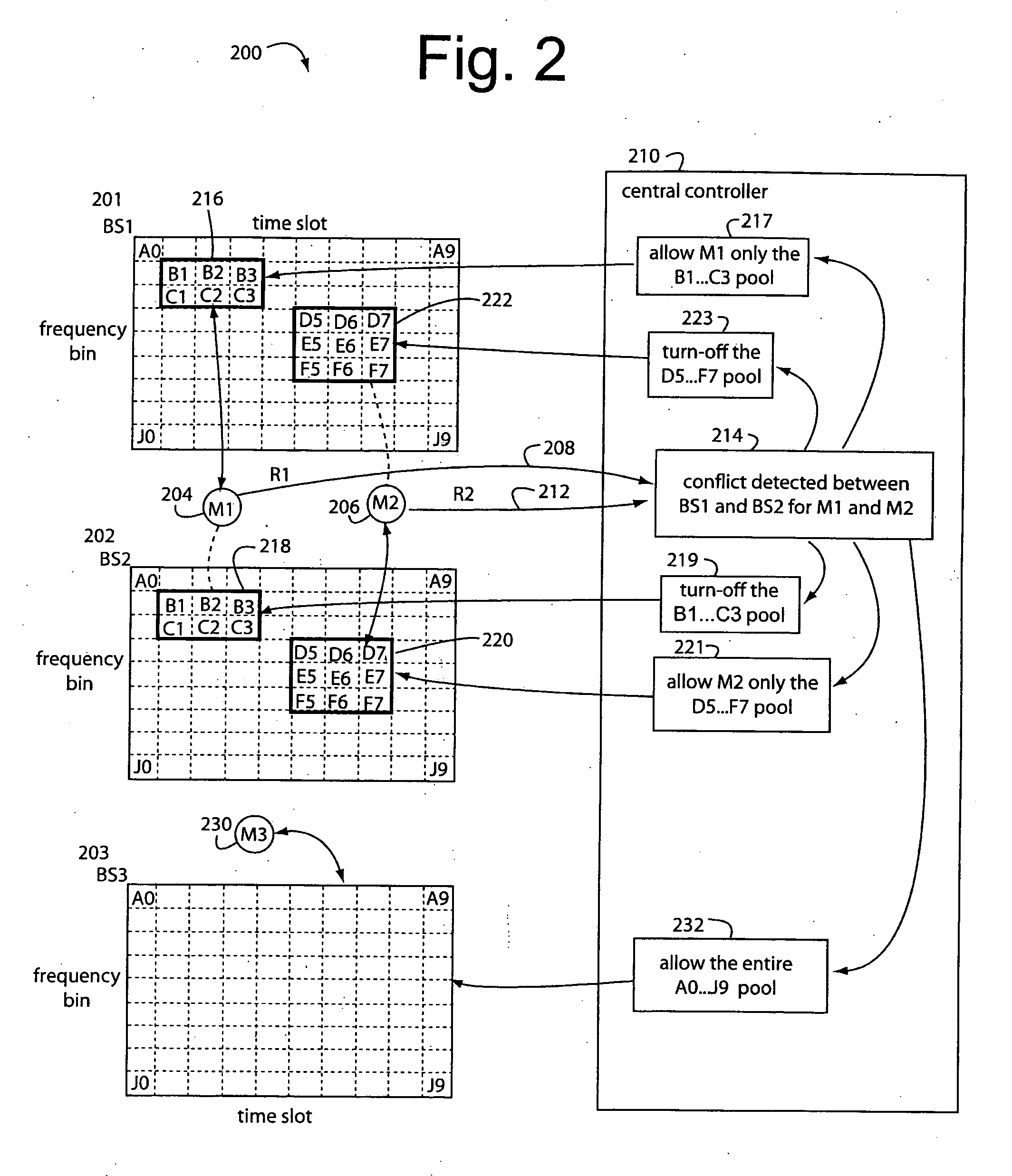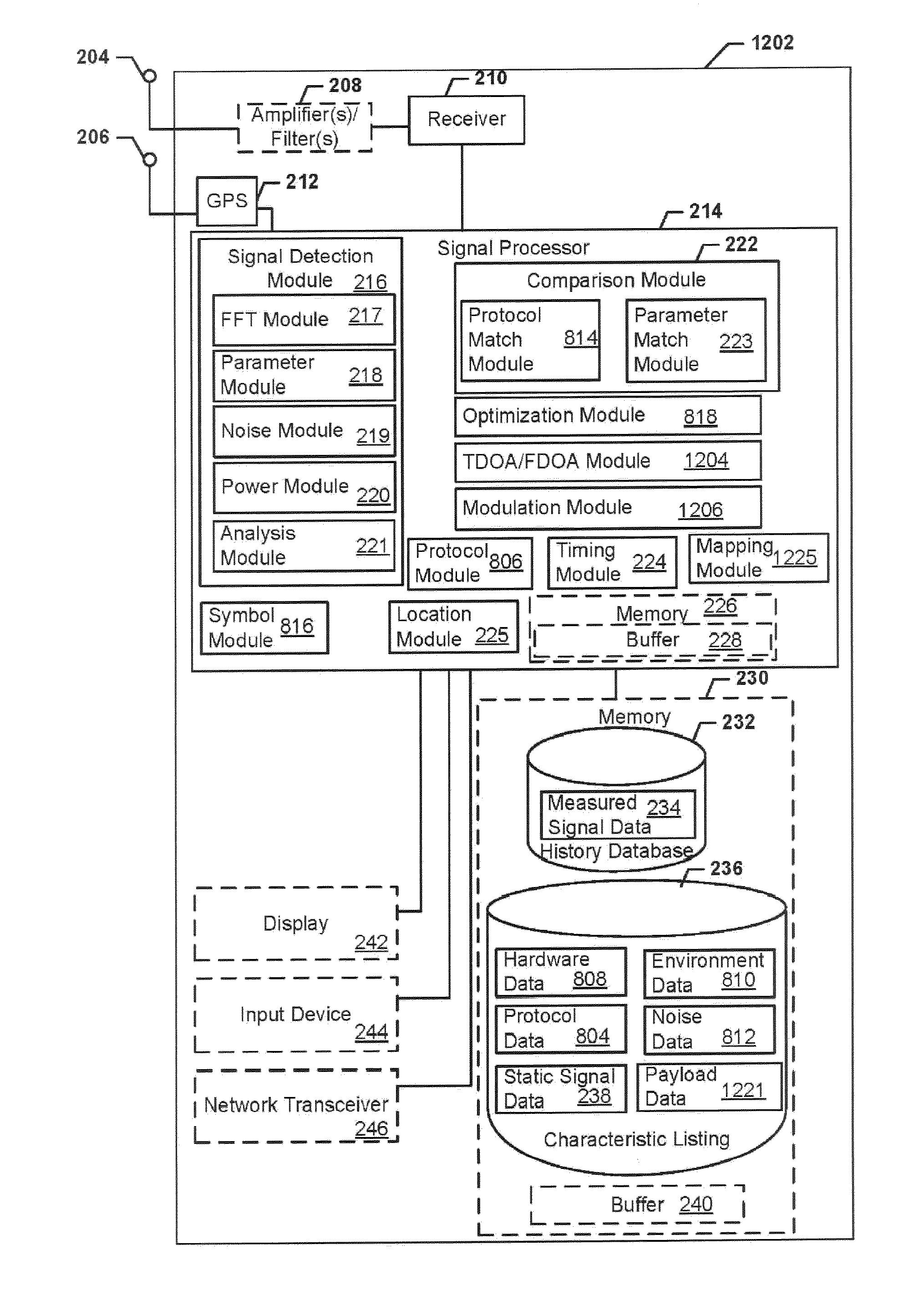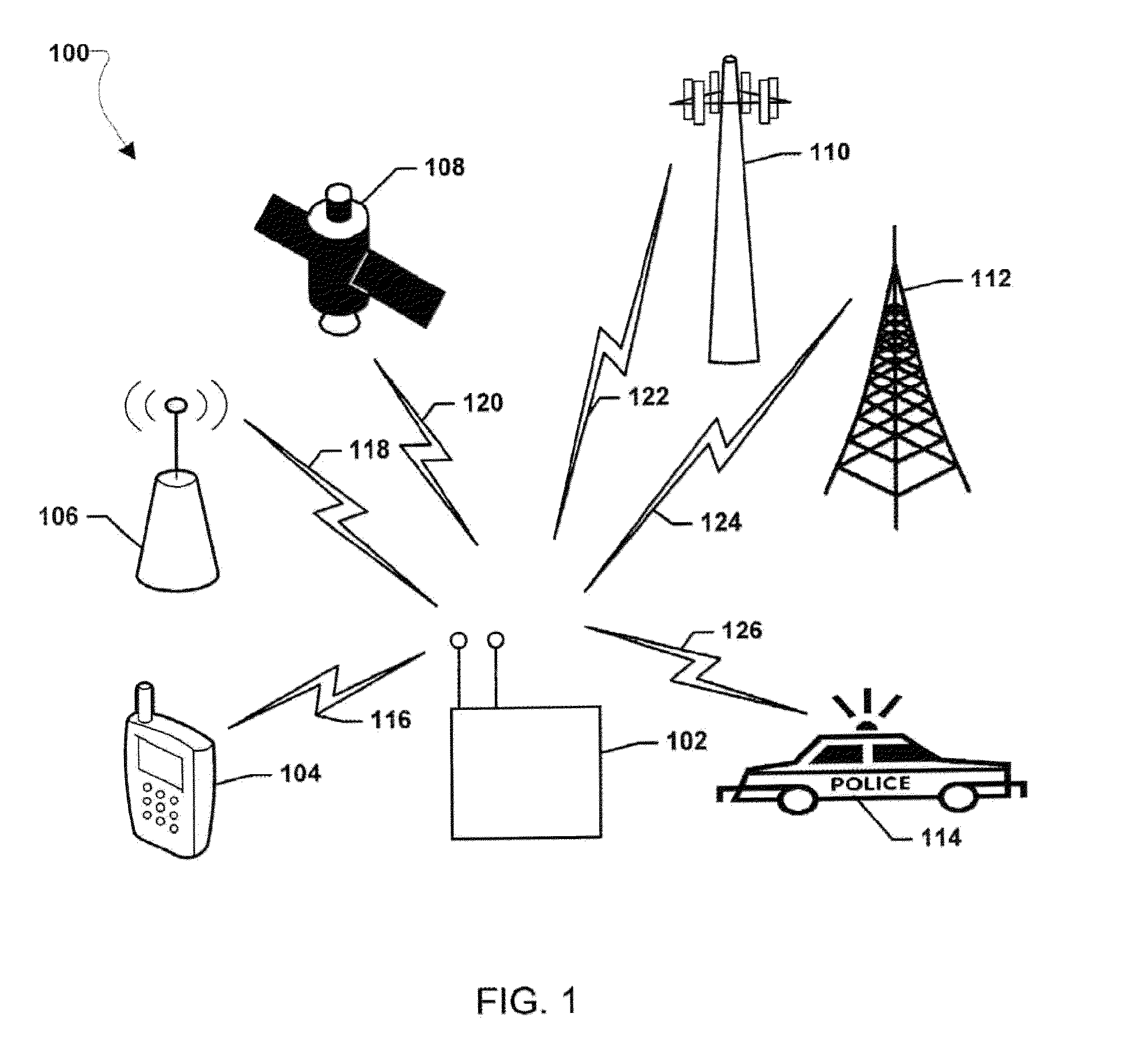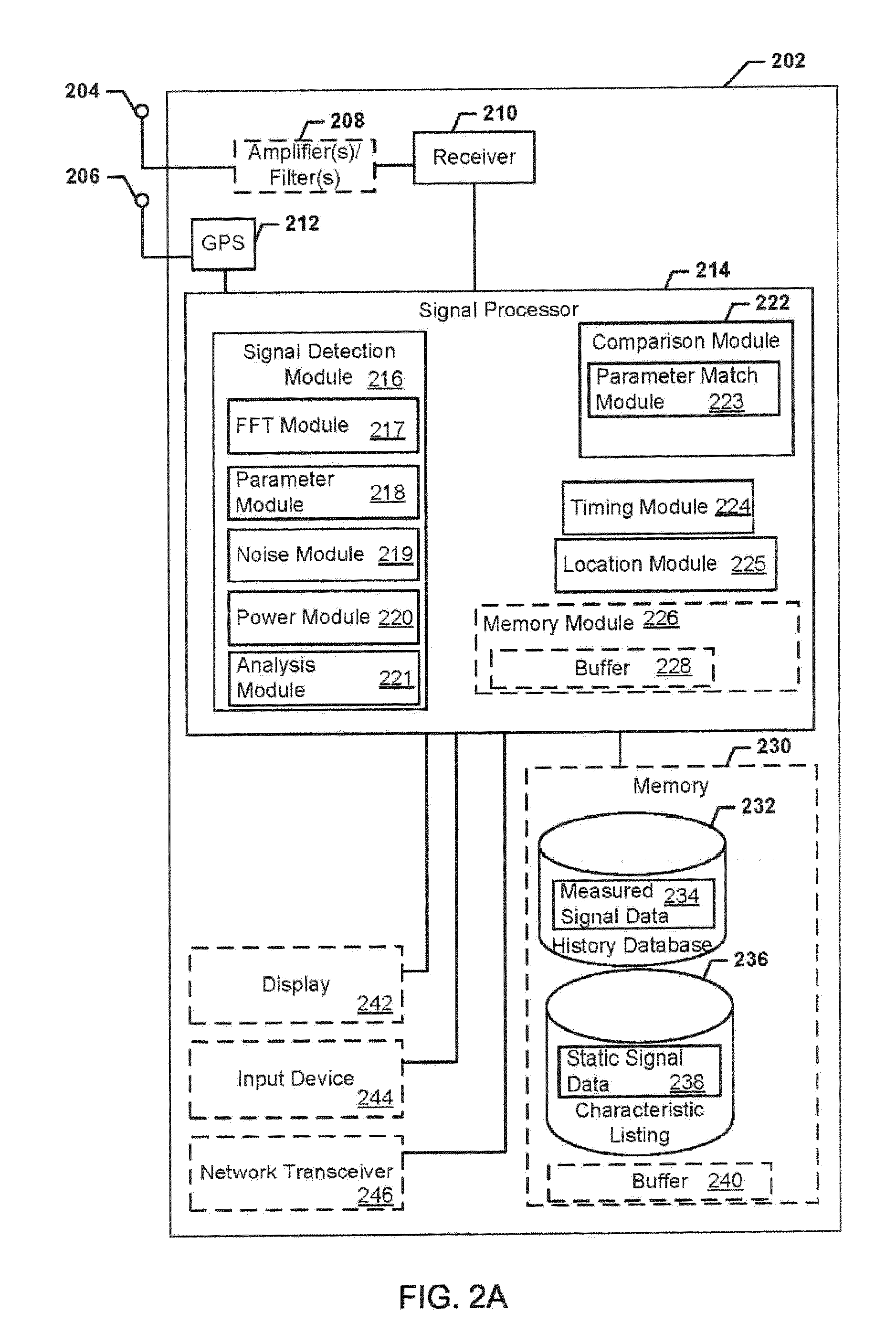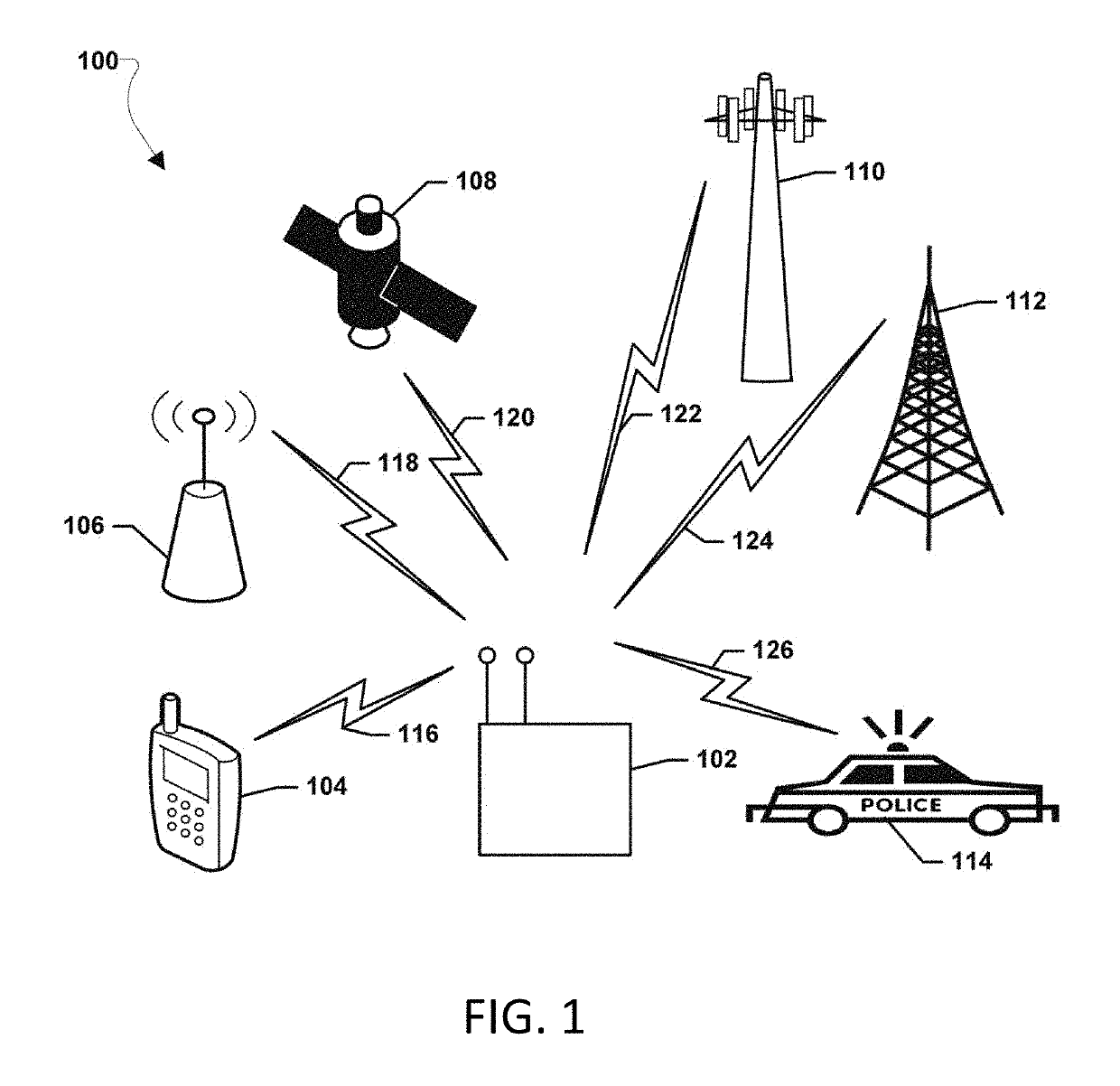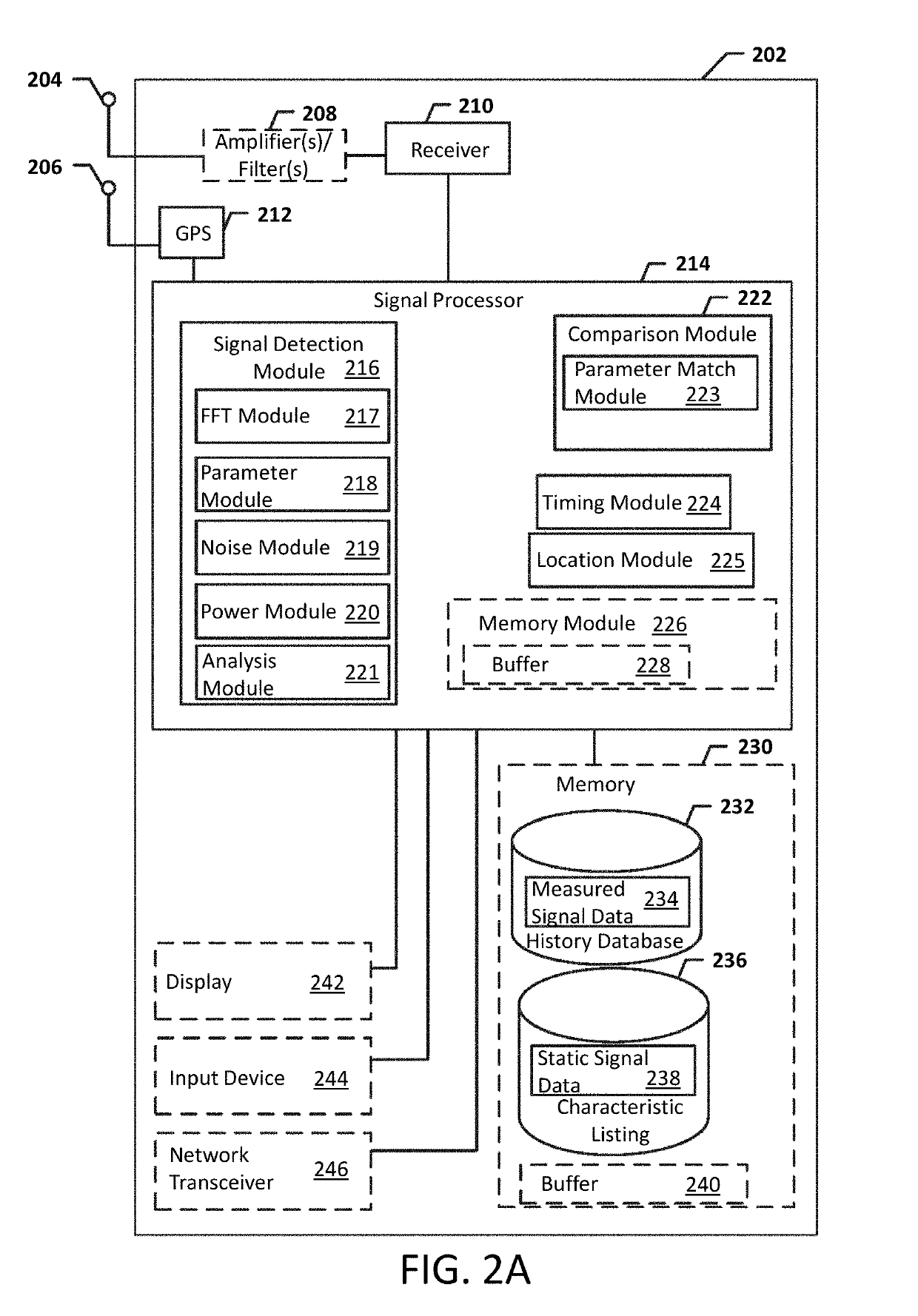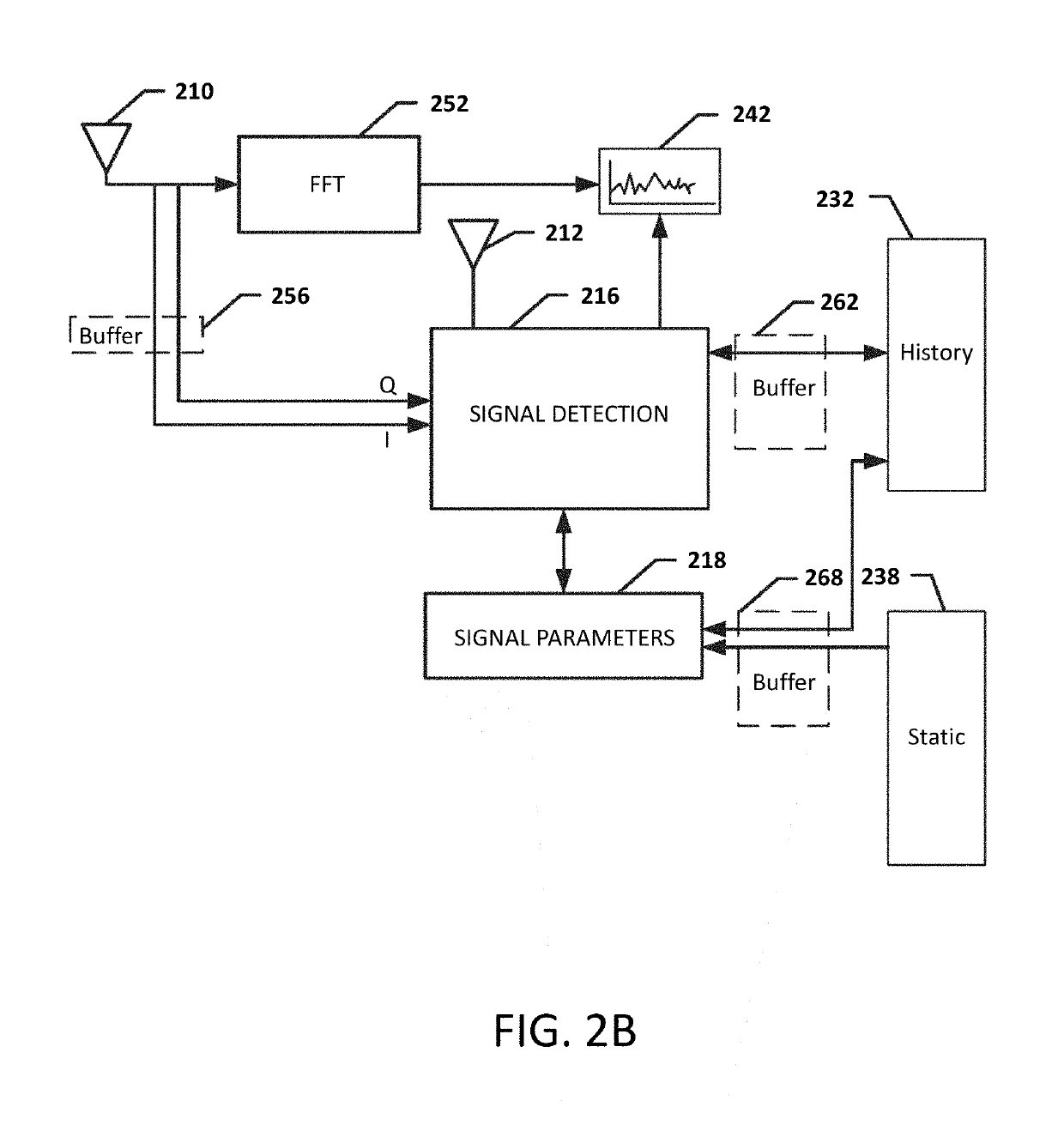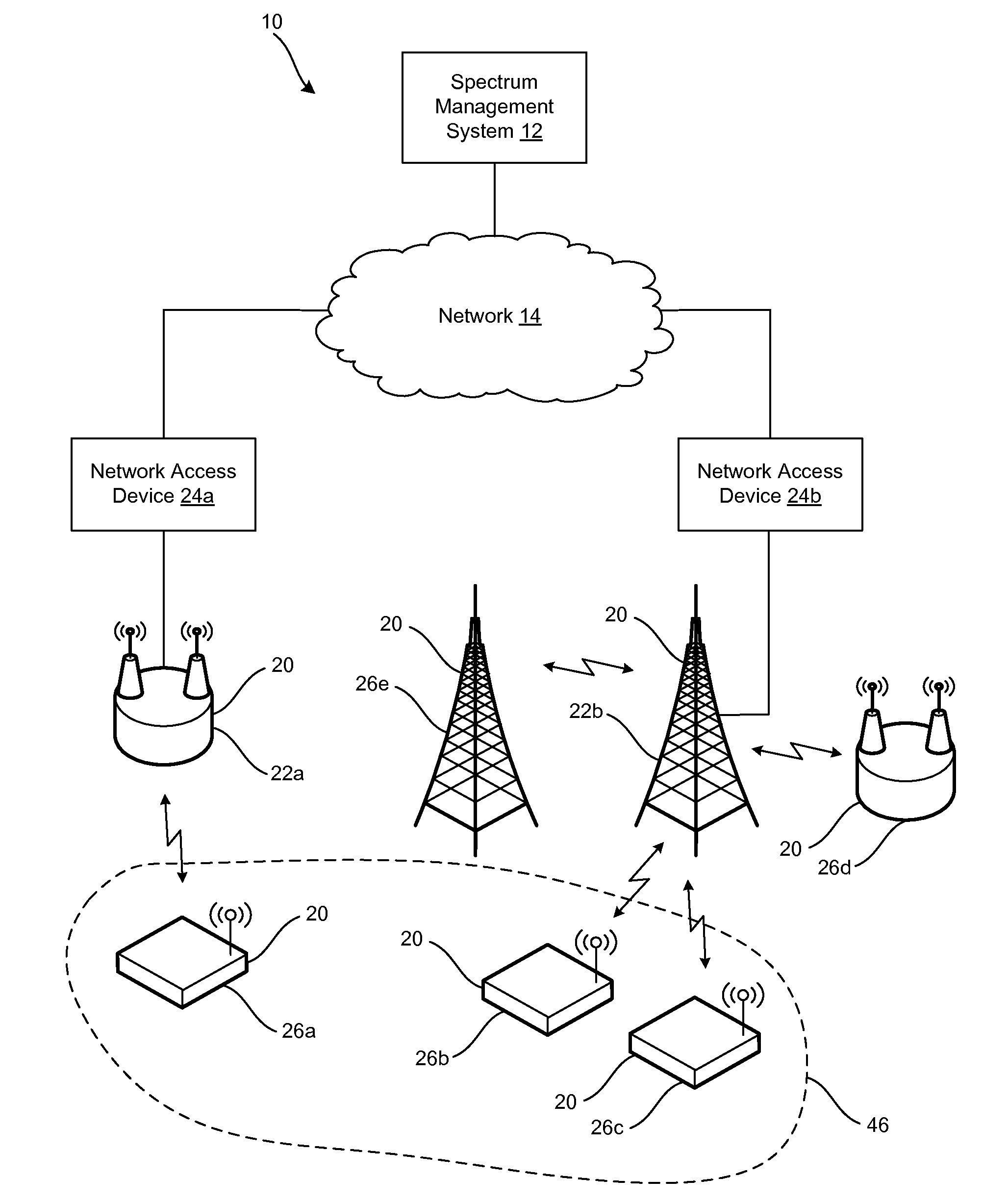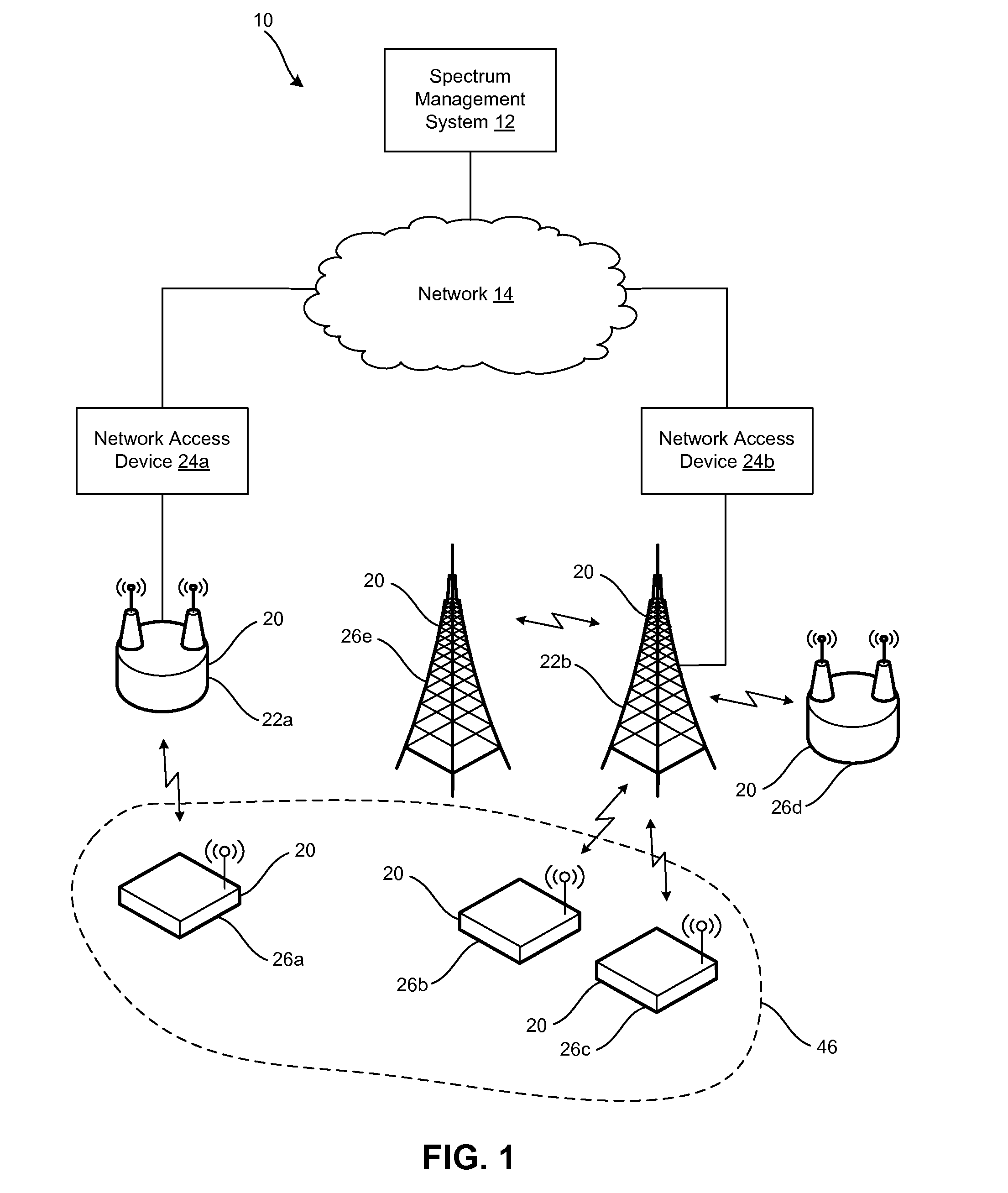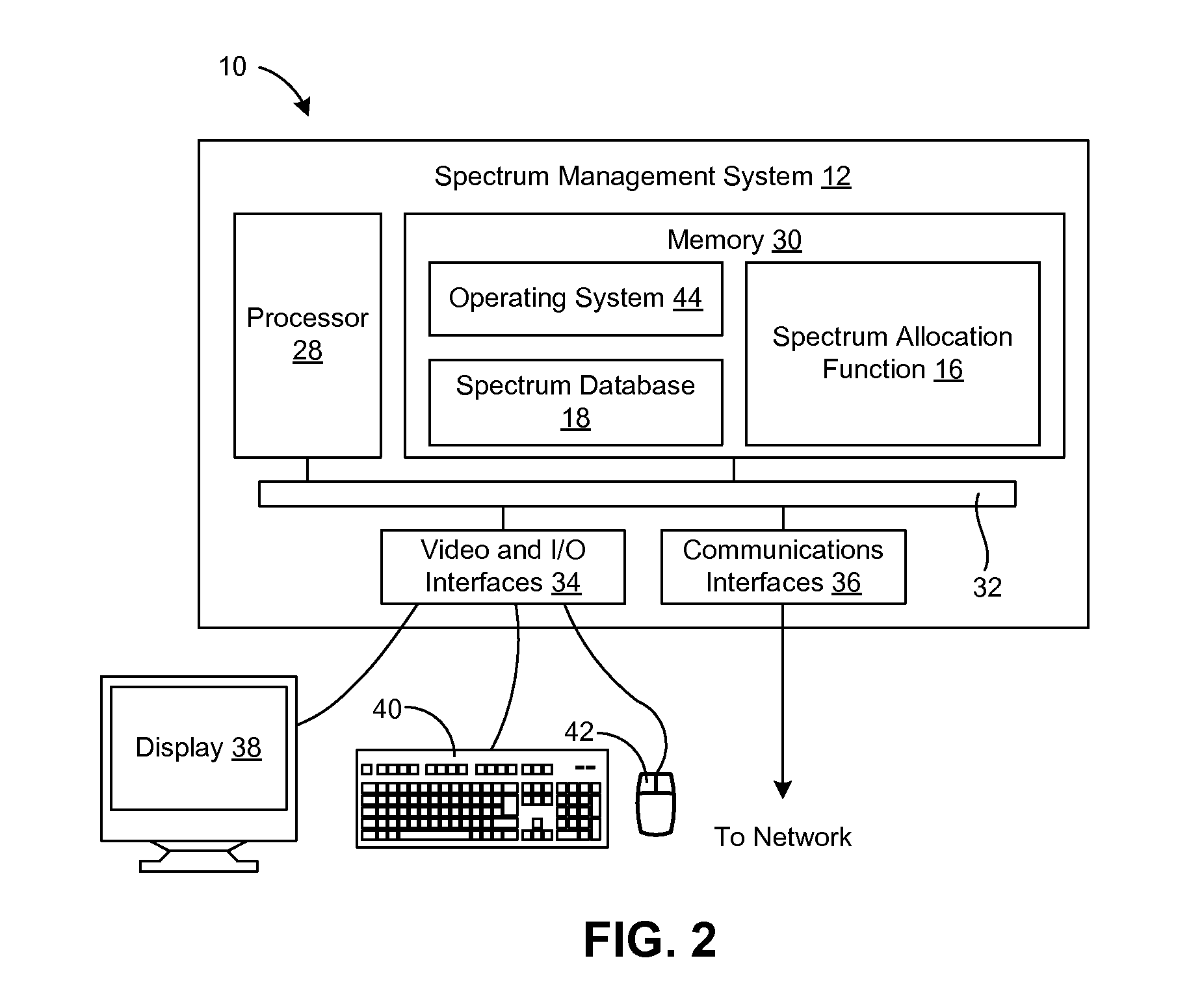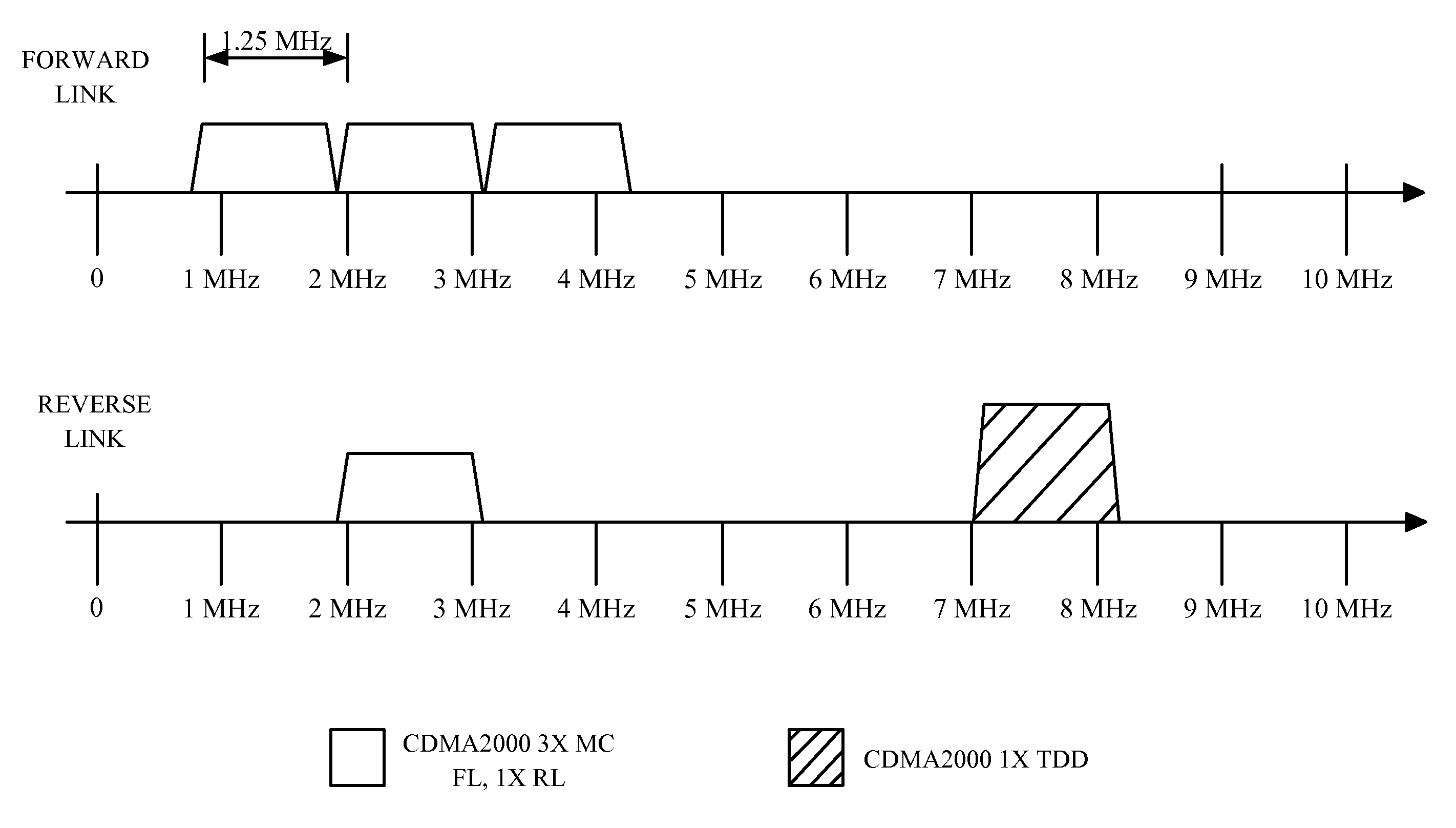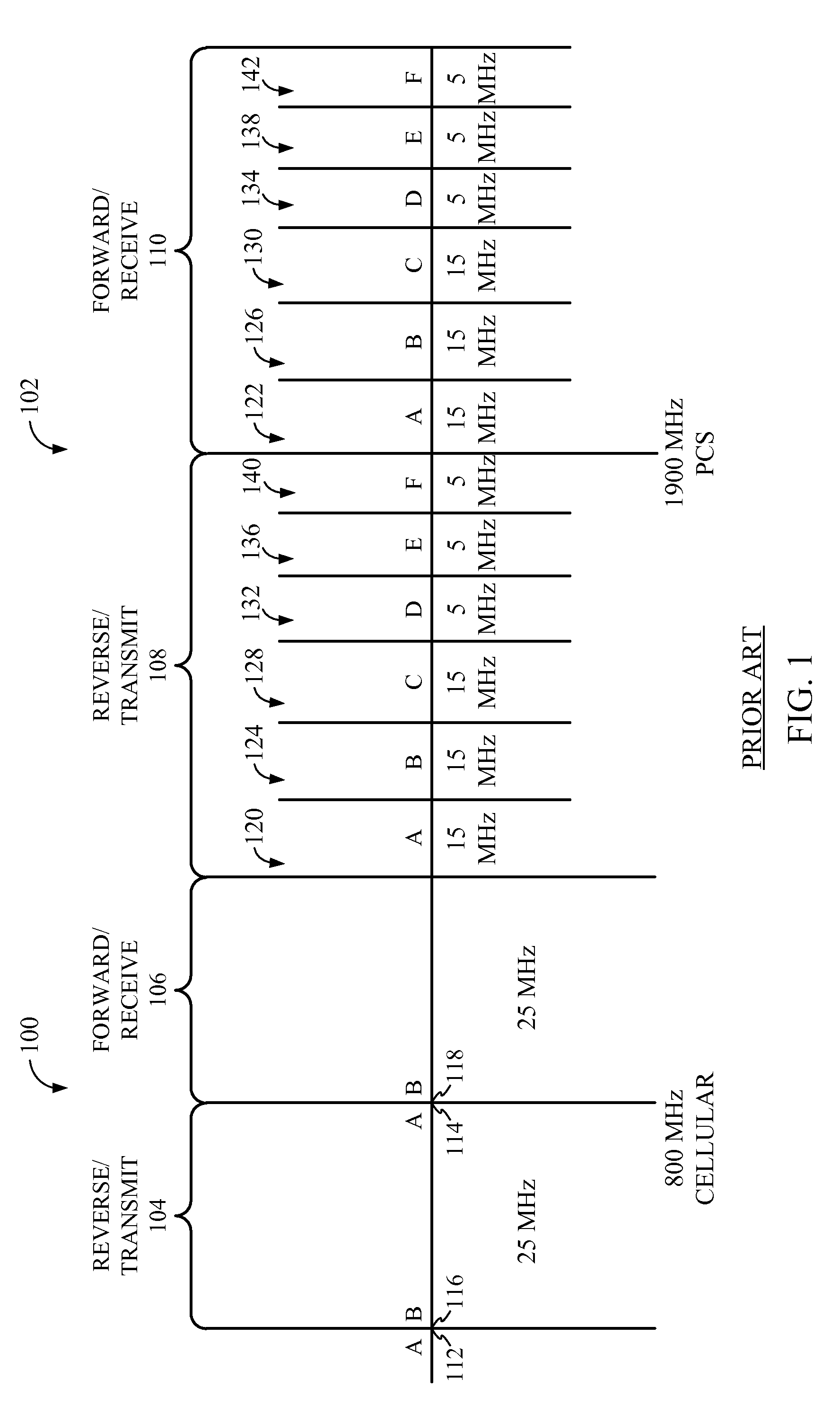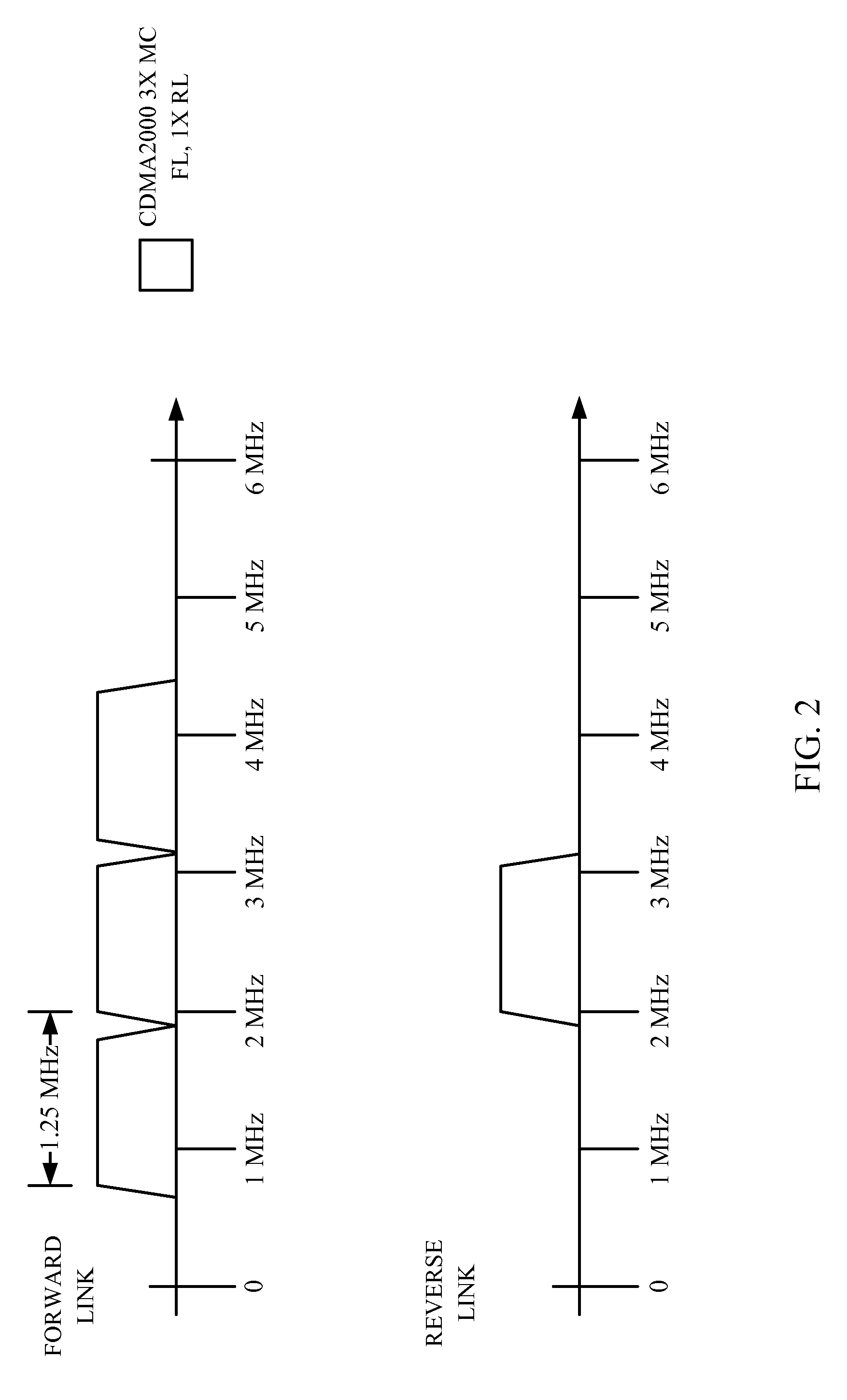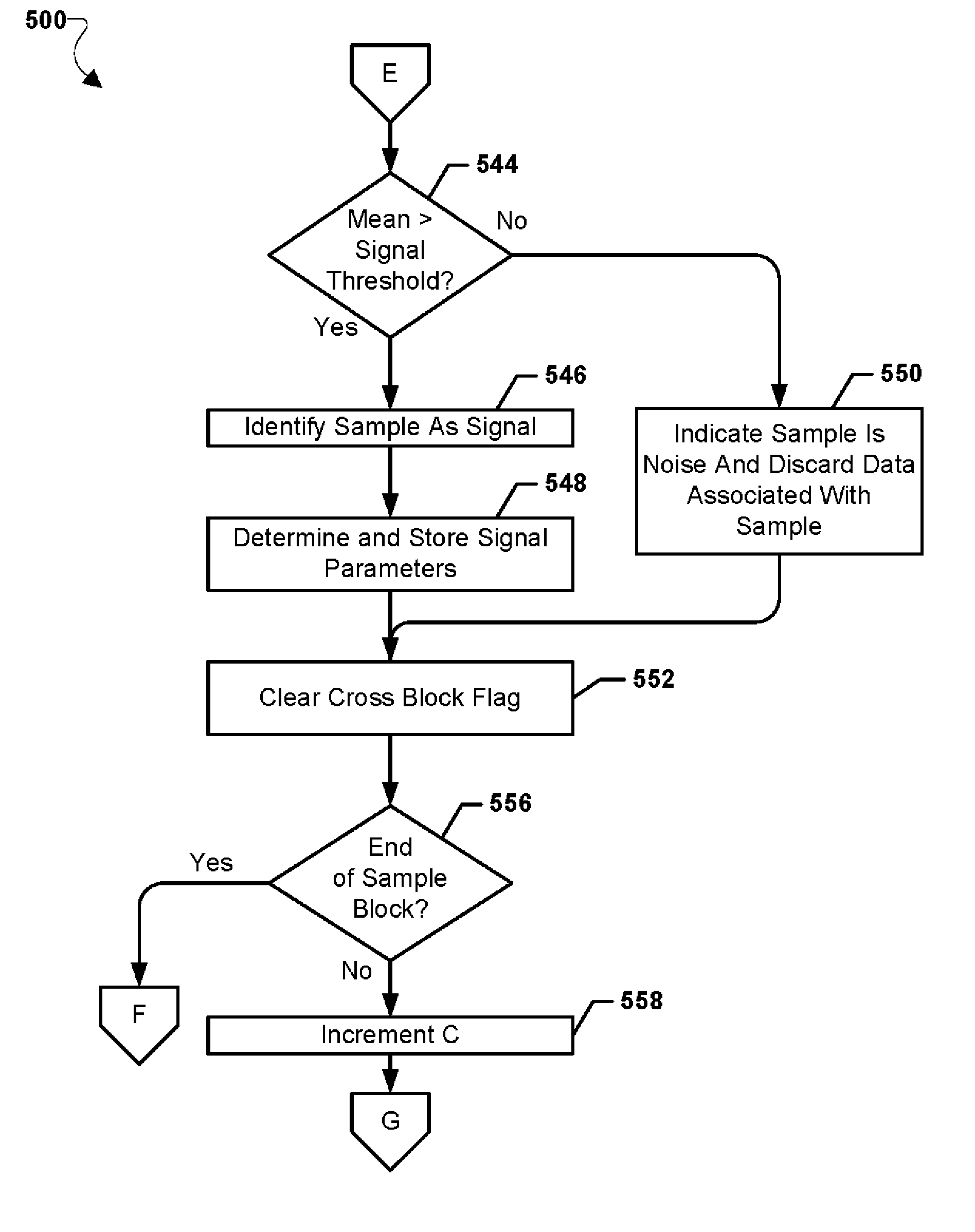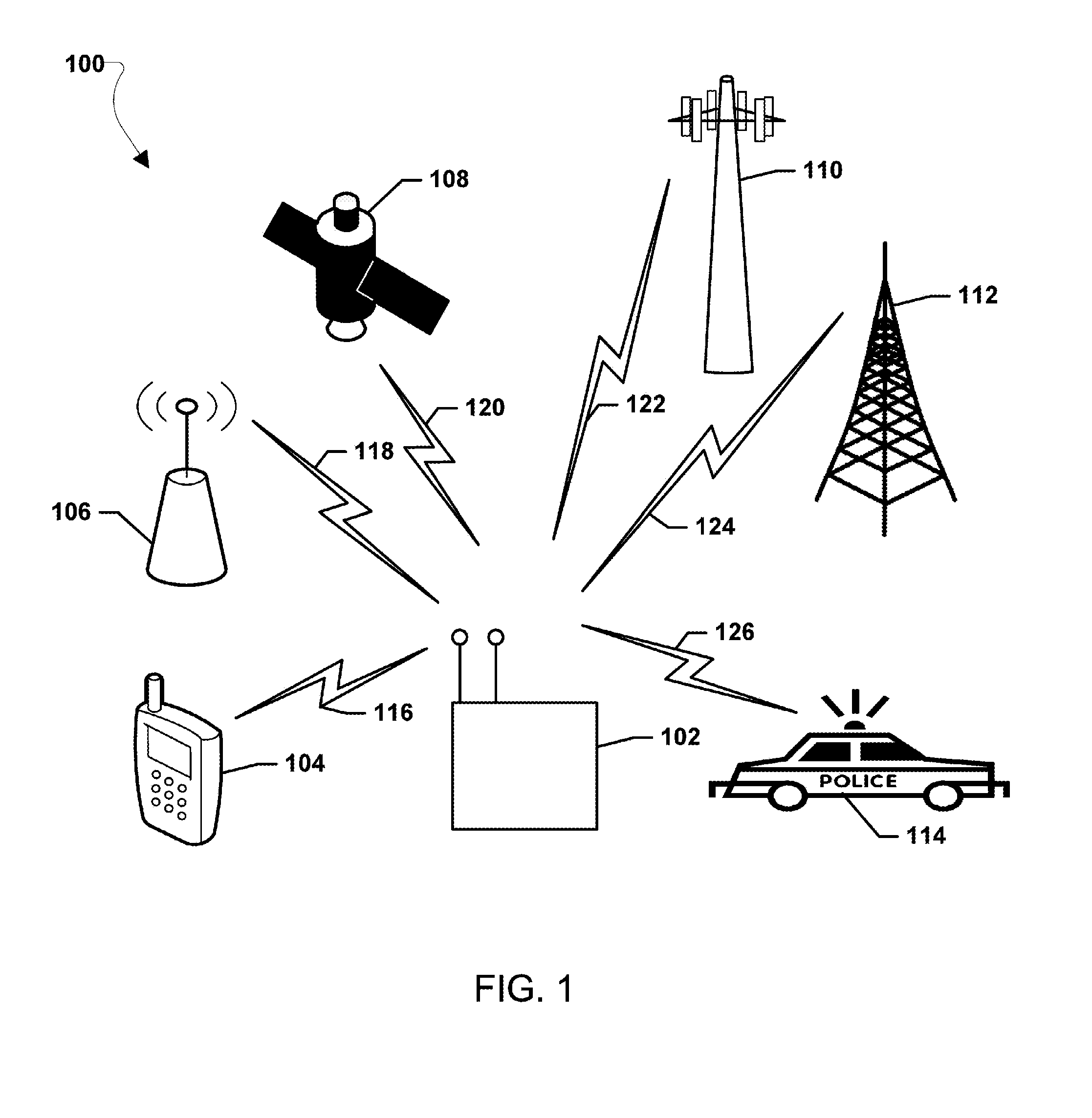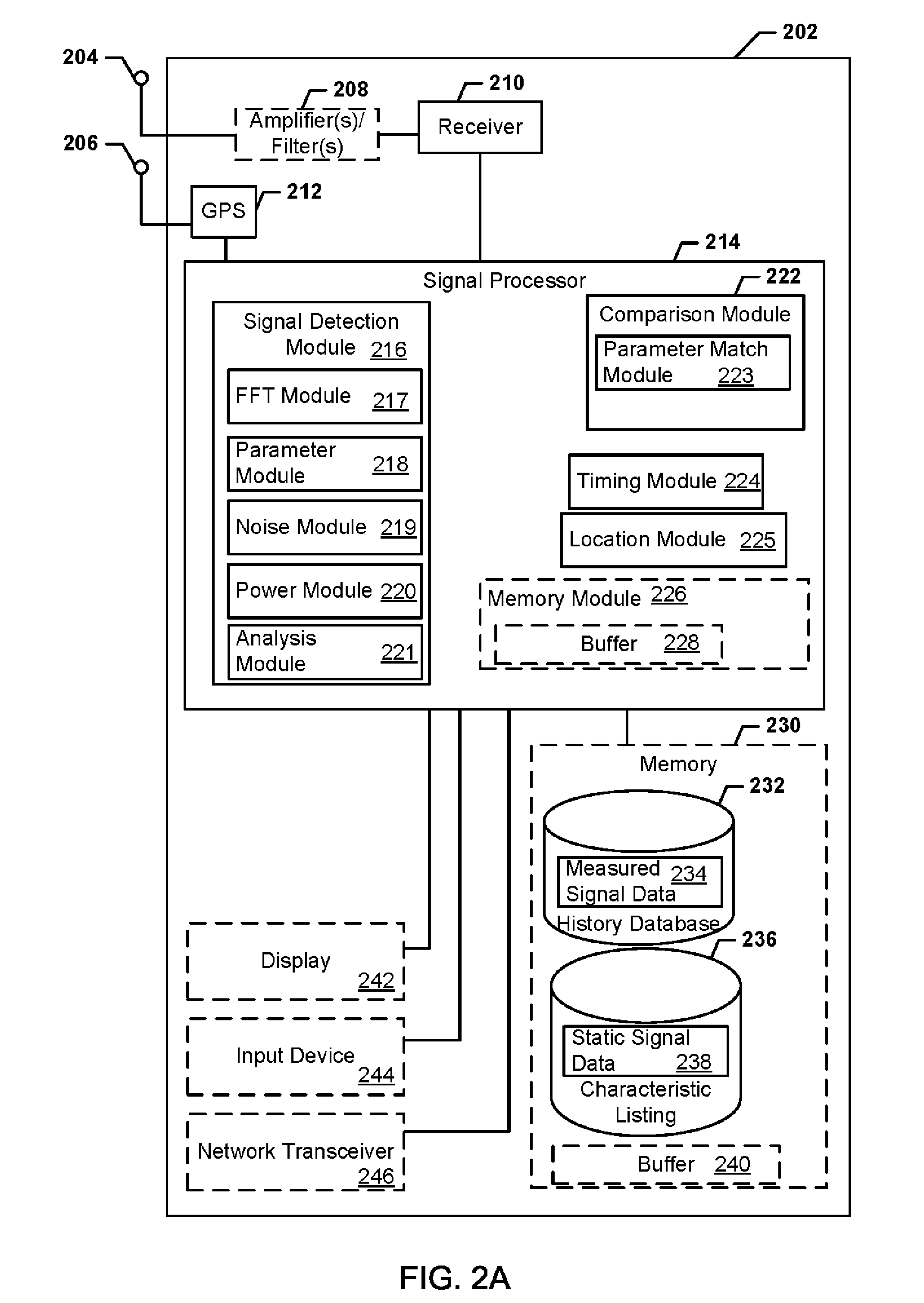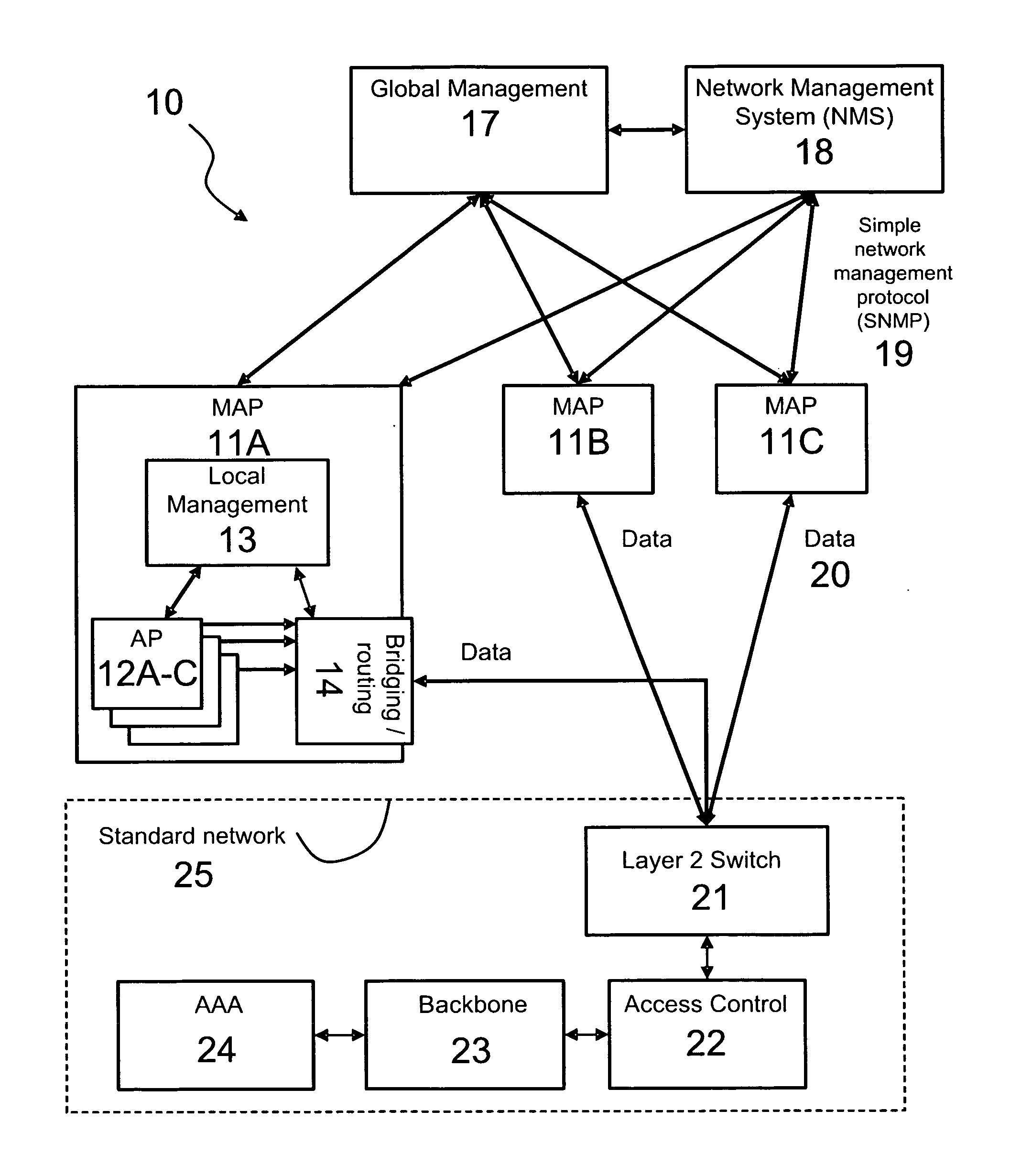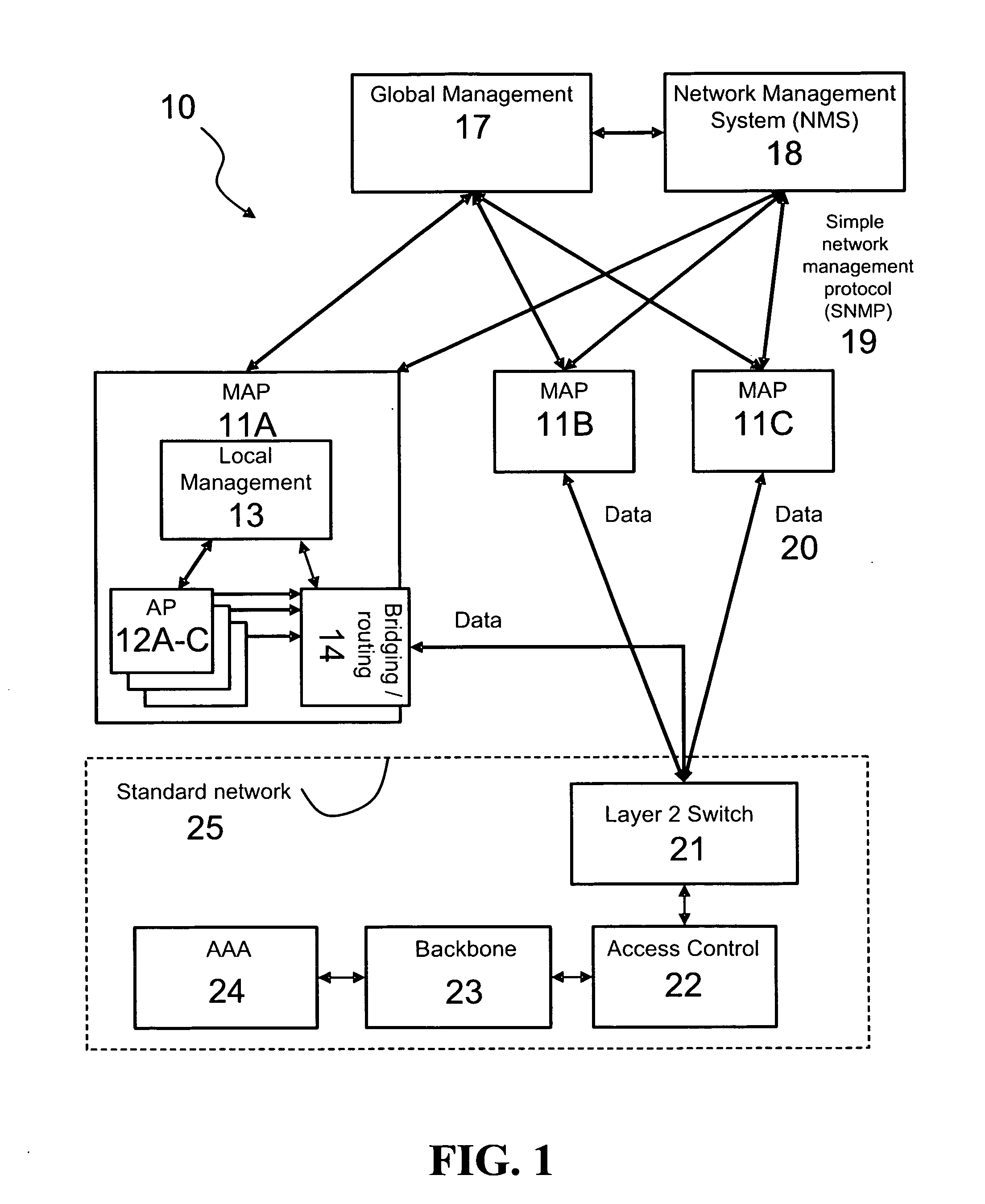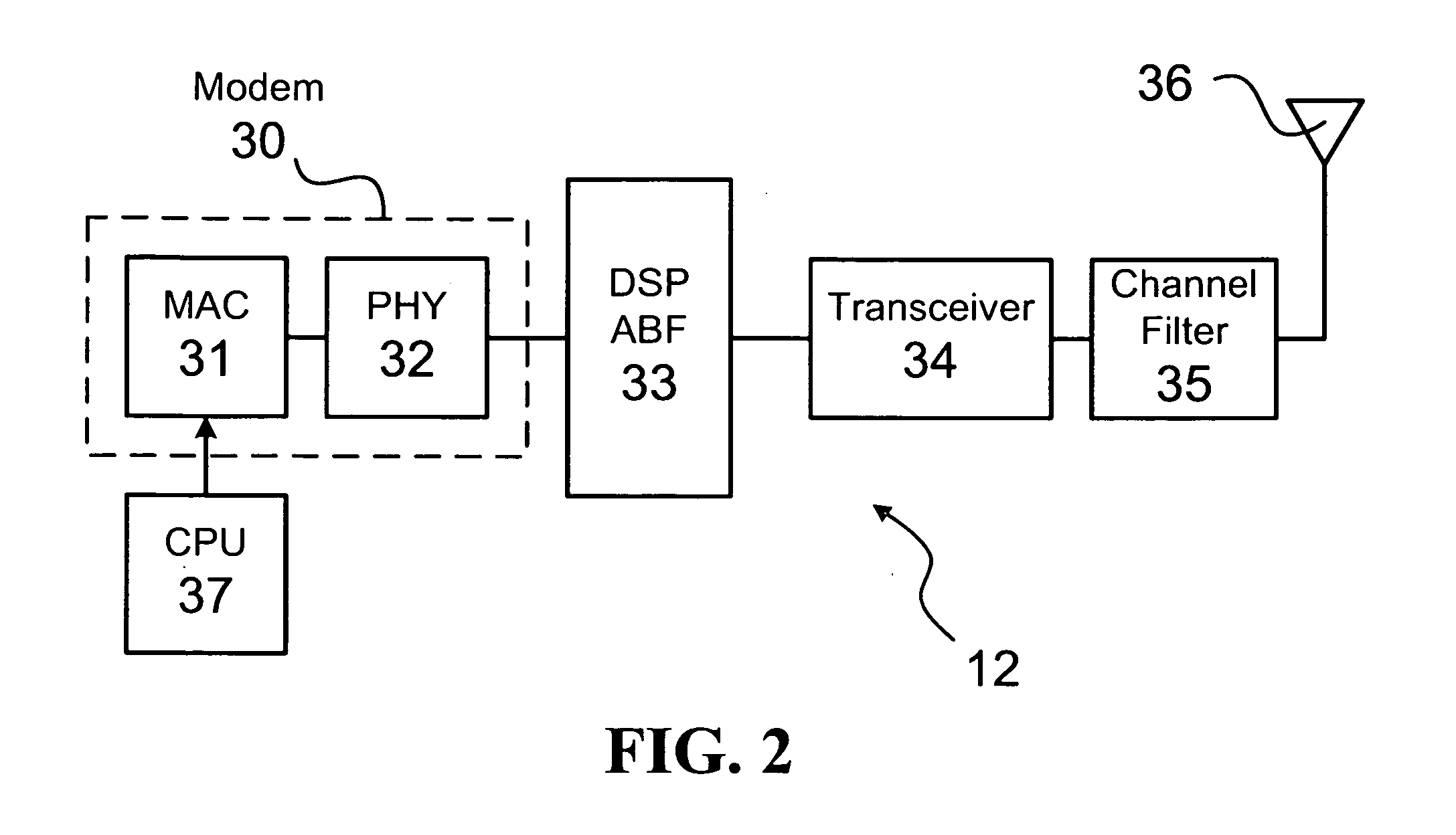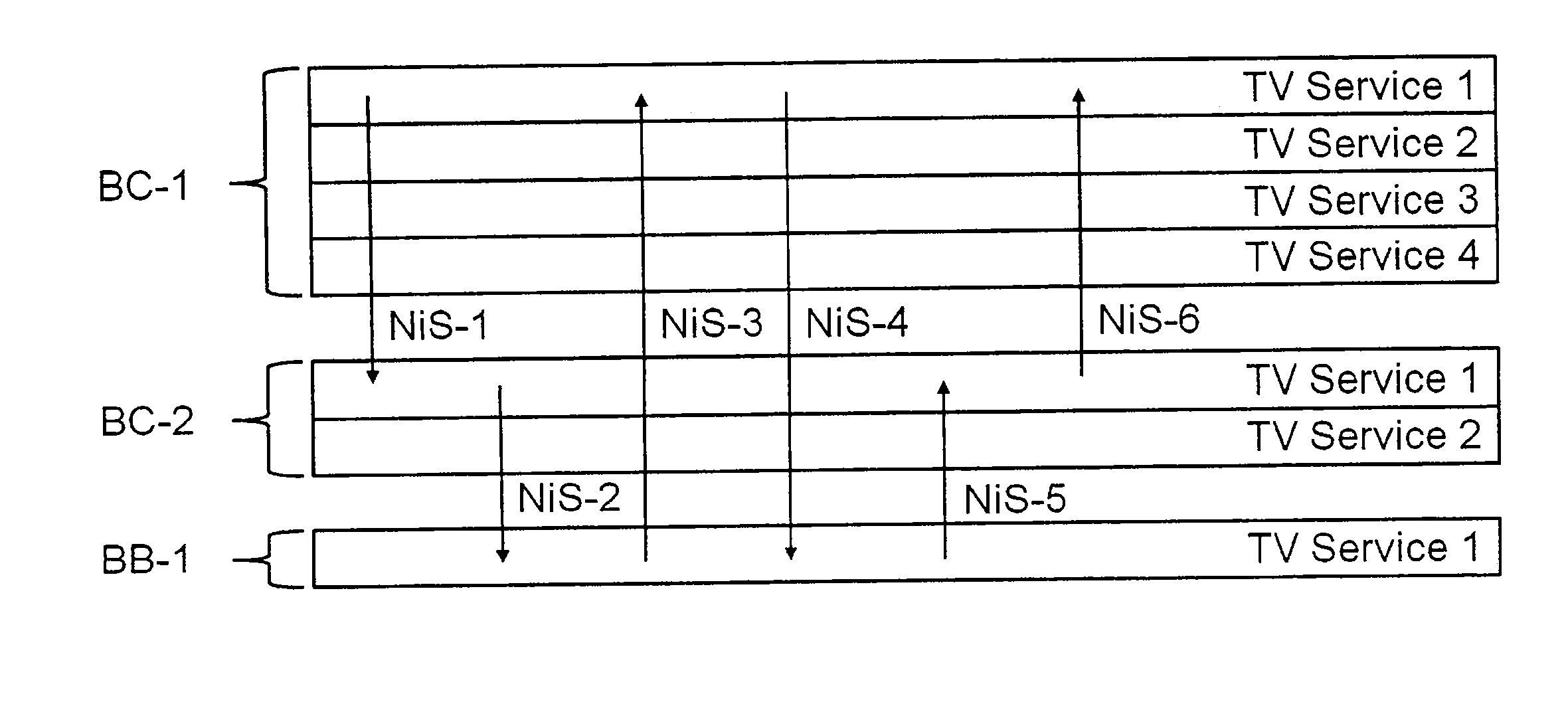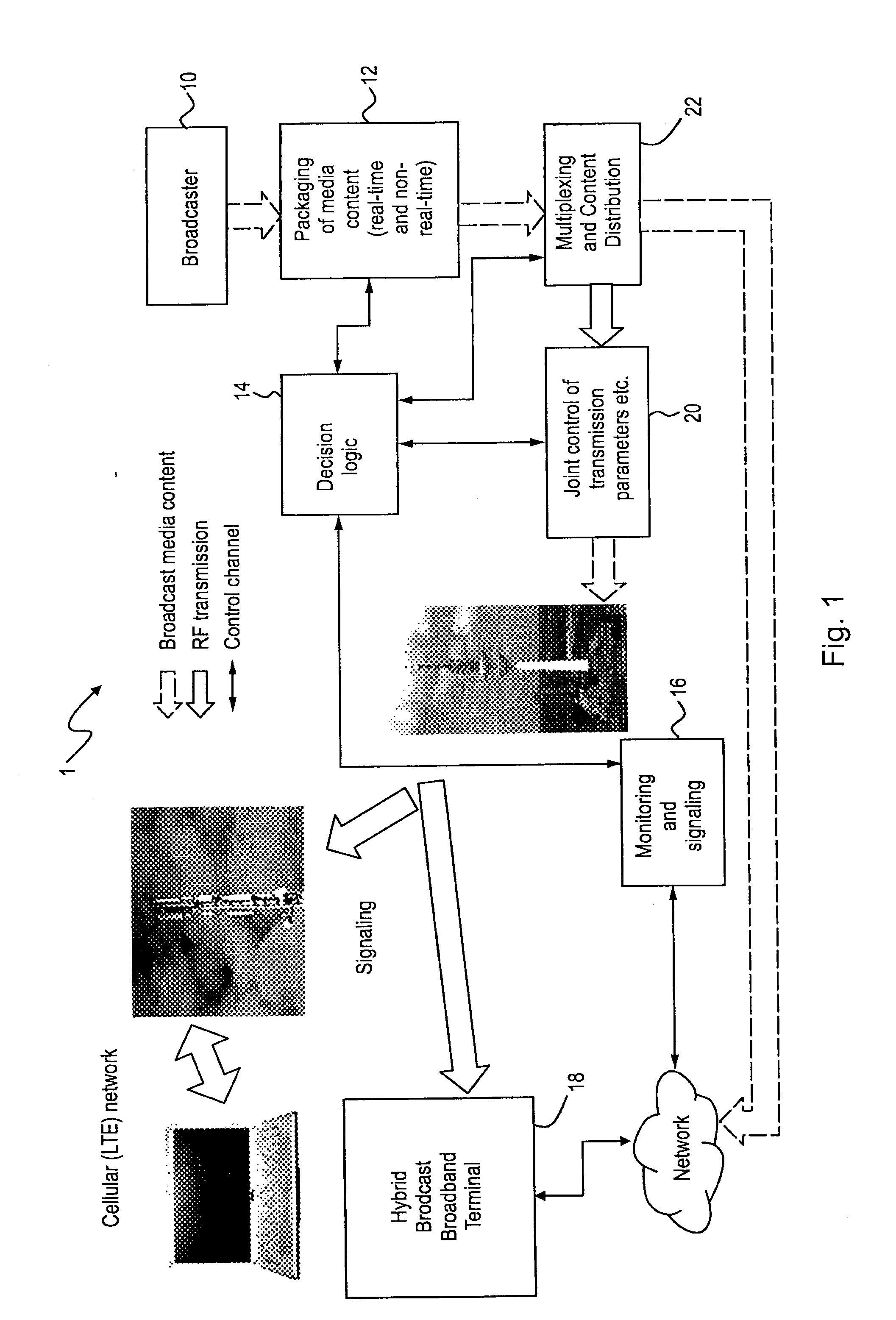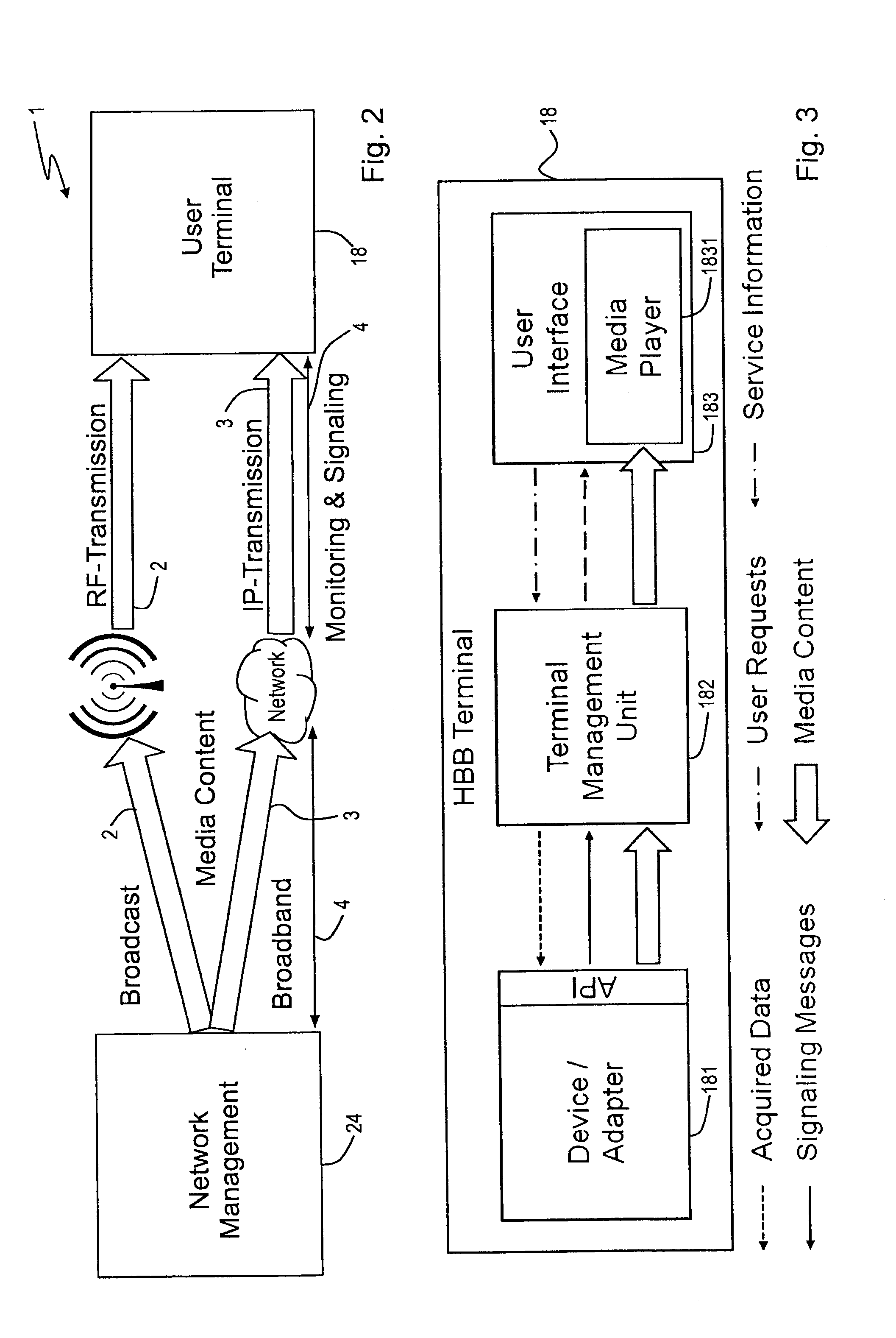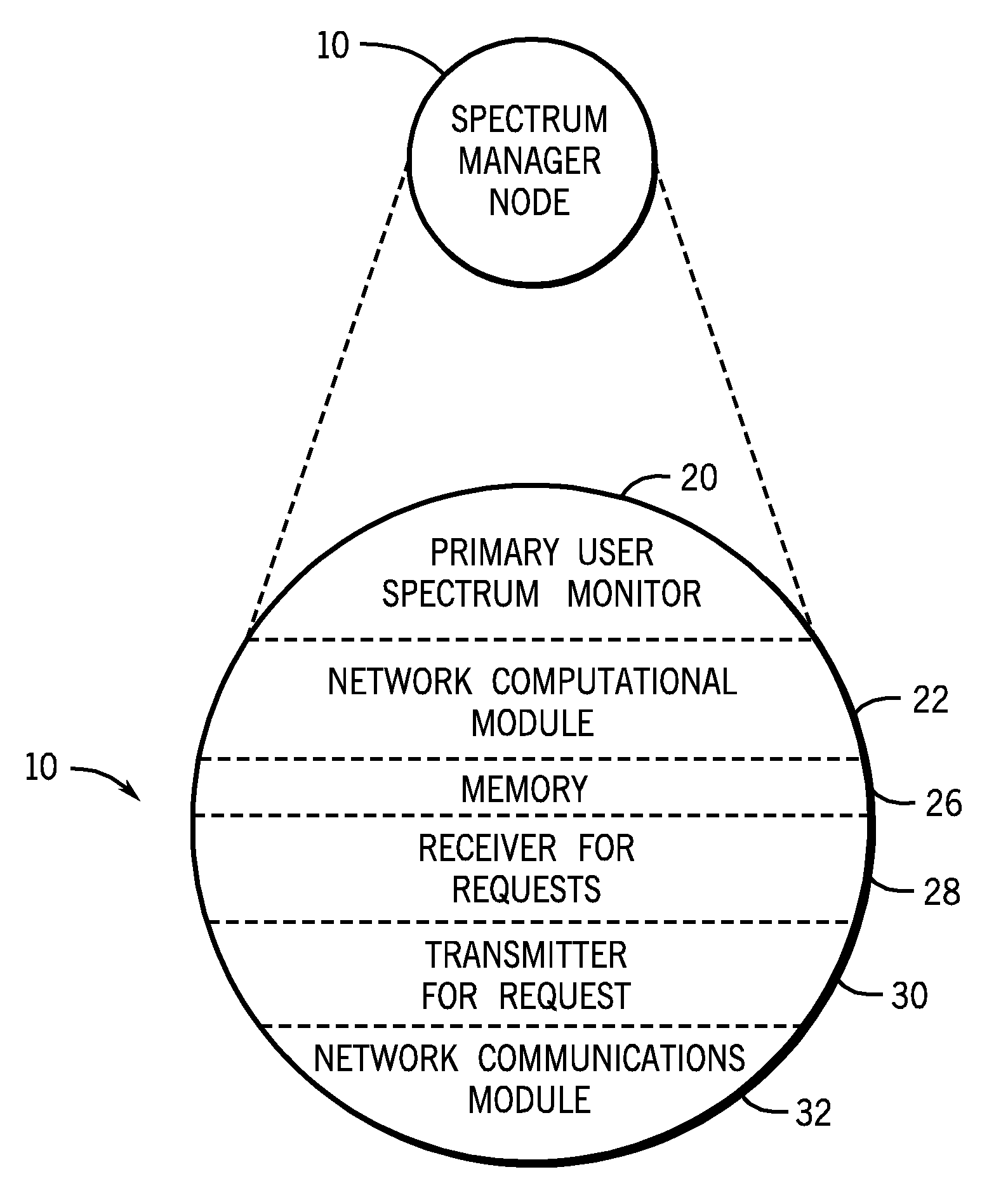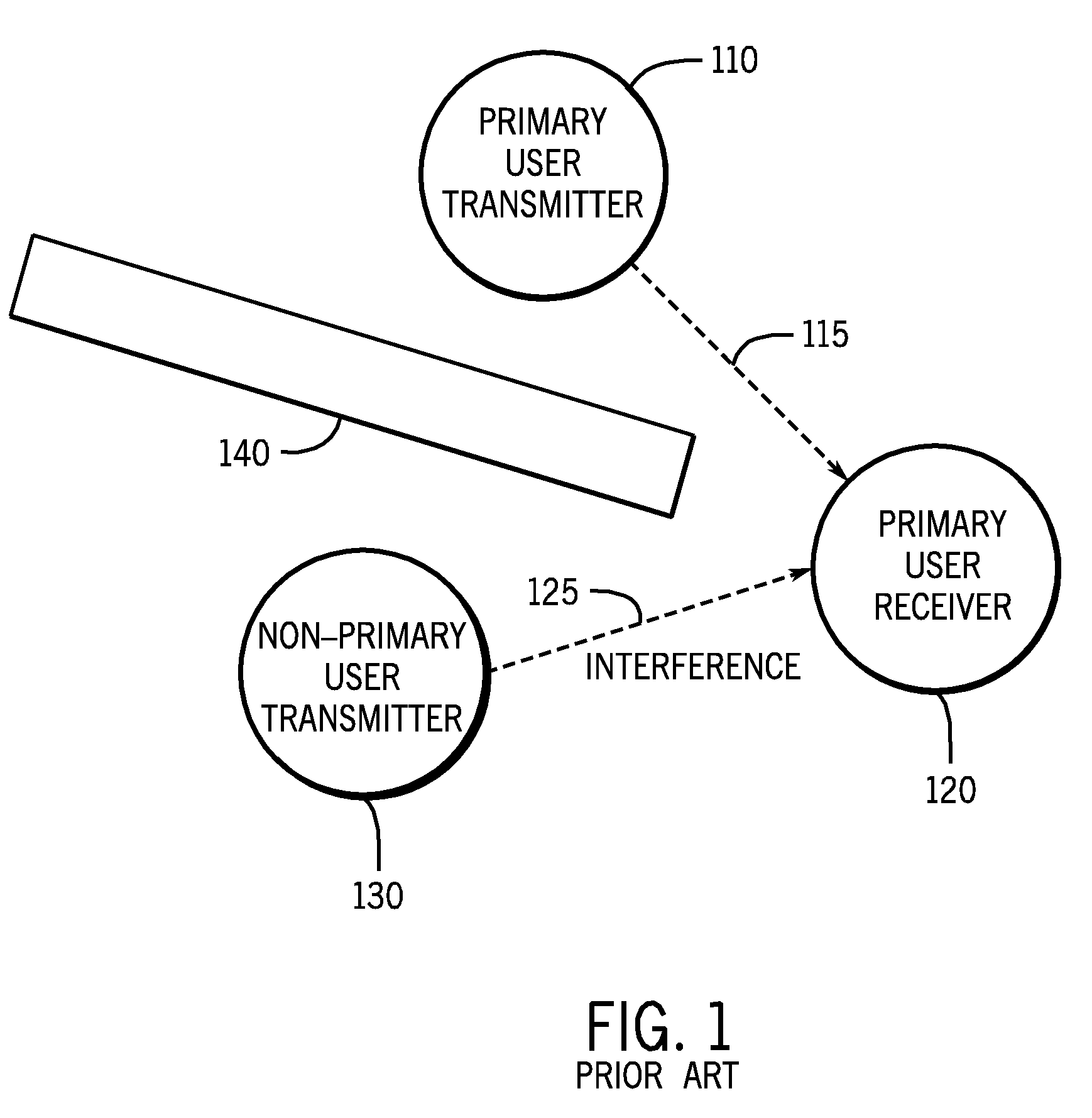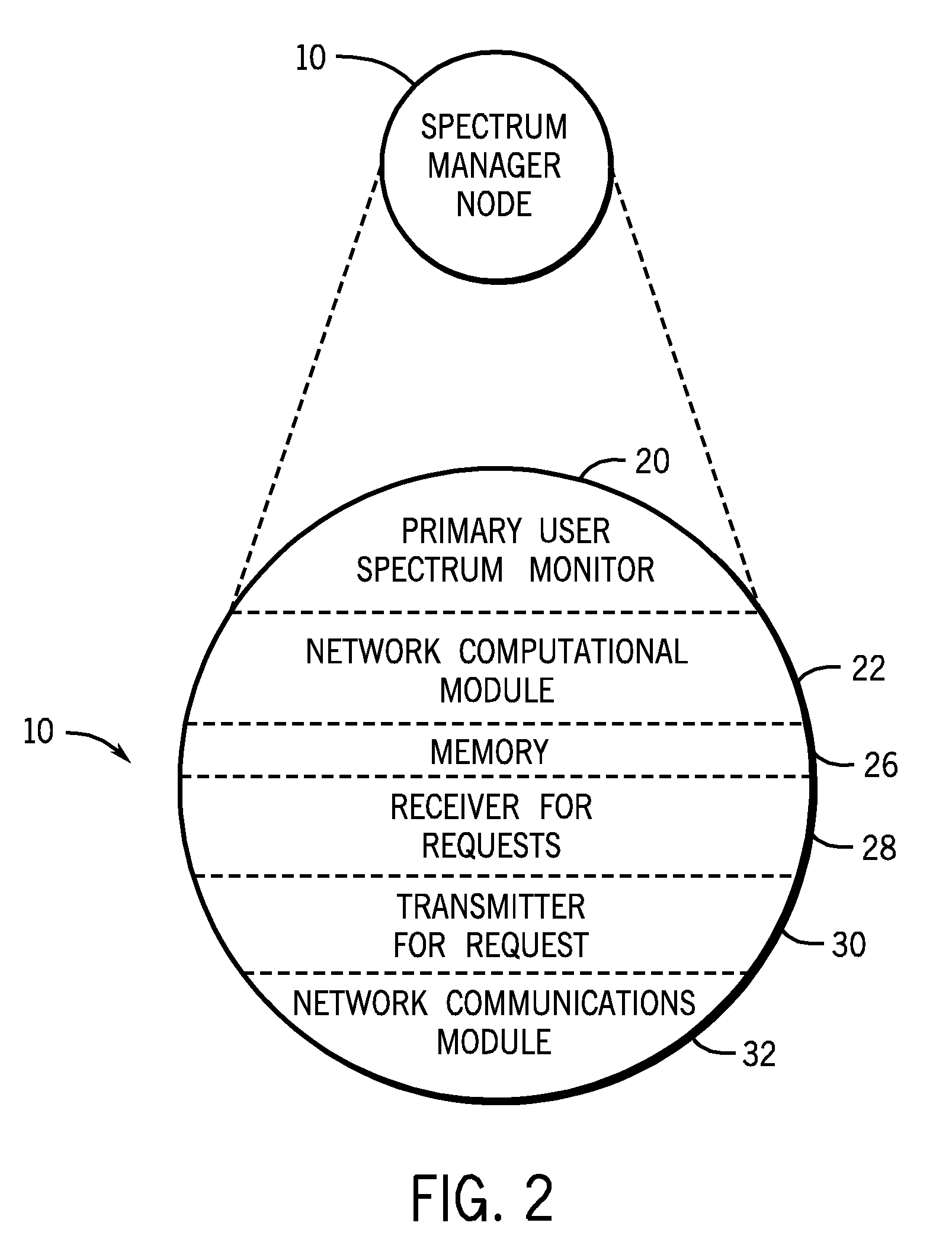Patents
Literature
268 results about "Spectrum management" patented technology
Efficacy Topic
Property
Owner
Technical Advancement
Application Domain
Technology Topic
Technology Field Word
Patent Country/Region
Patent Type
Patent Status
Application Year
Inventor
Spectrum management is the process of regulating the use of radio frequencies to promote efficient use and gain a net social benefit. The term radio spectrum typically refers to the full frequency range from 3 kHz to 300 GHz that may be used for wireless communication. Increasing demand for services such as mobile telephones and many others has required changes in the philosophy of spectrum management. Demand for wireless broadband has soared due to technological innovation, such as 3G and 4G mobile services, and the rapid expansion of wireless internet services.
System and Method for Spectrum Management of a Shared Frequency Band
ActiveUS20030198200A1Avoid interferenceEasy to useError prevention/detection by using return channelRadio/inductive link selection arrangementsFrequency spectrumSignal classification
Abstract of Disclosure A system and method for managing the spectrum utilization of a frequency band that is shared, both in frequency and time, by multiple devices. At one or more devices operating in the frequency band, pulses associated with signals occurring in the frequency band are detected by sampling part or all the frequency band for a time interval. From the detected signal pulses, the signals can be classified. In addition, overall spectrum activity can be measured. Using classification information for signals detected in the frequency band, policies can be executed so that a device may take certain actions in order to avoid interfering with other signals, or to optimize simultaneous use of the frequency band with the other signals. Signal detection occurs at one or more devices operating in a frequency band. Signal classification and measurement, as well as policy execution may occur within a processor of the same device where signal detection occurs, or in another device (located remotely or within the operating region of the frequency band).
Owner:CISCO TECH INC
System and method for interference mitigation for wireless communication
InactiveUS20050122999A1Facilitate interference mitigationEnables utilization of spectrumFrequency-division multiplexDiversity/multi-antenna systemsTime domainFrequency spectrum
Disclosed are systems and methods which provide interference mitigation by making alternative resources available within areas served by wireless communication links. Embodiments provide multiple channel availability in establishing wireless communication links to facilitate interference mitigation. Time domain techniques, spatial processing techniques, and / or frequency domain techniques may be implemented for spectrum management. Embodiments provide wireless base station configurations in which all or a plurality of base station sectors use a same frequency channel and / or in which each sector or a plurality of sectors use all frequency channels. Multi-channel strategies may be implemented such as to provide dynamic selection of a “best” frequency channel, to provide transmission of identical data on multiple channels for combining / selection at the receiver, and / or to provide for dividing the data for transmission on multiple channels.
Owner:HEWLETT-PACKARD ENTERPRISE DEV LP
System and method for spectrum management of a shared frequency band
ActiveUS7269151B2Error prevention/detection by using return channelRadio/inductive link selection arrangementsFrequency spectrumSignal classification
A system and method for managing the spectrum utilization of a frequency band that is shared, both in frequency and time, by multiple devices. At one or more devices operating in the frequency band, pulses associated with signals occurring in the frequency band are detected by sampling part or all the frequency band for a time interval. From the detected signal pulses, the signals can be classified. In addition, overall spectrum activity can be measured. Using classification information for signals detected in the frequency band, policies can be executed so that a device may take certain actions in order to avoid interfering with other signals, or to optimize simultaneous use of the frequency band with the other signals. Signal detection occurs at one or more devices operating in a frequency band. Signal classification and measurement, as well as policy execution may occur within a processor of the same device where signal detection occurs, or in another device (located remotely or within the operating region of the frequency band).
Owner:CISCO TECH INC
Device and method for detecting unused TV spectrum for wireless communication systems
InactiveUS20100309317A1Quick scanSpectral gaps assessmentTelevision systemsCommunications systemFrequency spectrum
TV white space spectrum sensors and methods for detecting and managing the white space are provided. The sensor is provided with a spectrum detector / analyzer, which senses and analizes the wireless signals present in a spectrum of interest, identifies white space, and assigns the white space to secondary services. For reducing the white space detection time, the sensor uses a group detection method whereby multiple channels are sensed simultaneously. For reducing the sensor cost, the dynamic range of the sensor is reduced by operating the sensor in saturation for signals with the energy higher than a threshold. The sensor is also provided with a spectrum manager / planner capable of understanding a plurality of air interface standards, reserving and providing the right amount of white space spectrum to each application, based on the respective standard requirements. The particular architectures used by the sensor result in an affordable addition to any wireless device.
Owner:WI LAN INC
Peer-To-Peer Control Network For A Wireless Radio Access Network
InactiveUS20100309806A1Broadcast with distributionError preventionFrequency spectrumRadio access network
A spectrum manager and base station controller for a wireless radio access network allocates TV band white space to all TV band devices under its control using: an allocation policy; information pulled / pushed from a white space database, spectrum usage data supplied by a spectrum sensing engine, and information received from at least one other peer spectrum manager and base station controller for the wireless radio access network.
Owner:TAIWAN SEMICON MFG CO LTD
Apparatus and methods for network interface and spectrum management
Apparatus and methods for the management of radio frequency spectrum within a network such as a CATV network. In one aspect of the invention, an improved signal reflector apparatus adapted for use in the network is disclosed, the reflector circuit being designed to strongly reflect signal frequencies at the lower end of the CATV reverse band, and / or above the higher end of the forward band, while simultaneously allowing the rest of the reverse band and the entire forward band to pass freely through the device. This selective filtering of the spectrum allows control signals generated within a premises or private network to be directed (by reflection) to other devices within that network. A blocking element (e.g., amplifier) may also be used to provide control of the transmission and attenuation profile of the reflector apparatus. The passage of power signals such as DC or low frequency AC is also optionally provided.
Owner:TIME WARNER CABLE ENTERPRISES LLC
Multiple input multiple output (MIMO) wireless communications system
ActiveUS7333455B1Minimize waterMinimize ground bounce nullPower managementModulated-carrier systemsPolarization diversityFrequency spectrum
A wireless broadband communications system that can transmit signals over communications links with multiple modes of diversity, thereby allowing signals having very low correlation to propagate over the link along multiple orthogonal paths. The system can be implemented as a non-line-of-sight (NLOS) system or a line-of-sight (LOS) system. The NLOS system employs orthogonal frequency division modulation (OFDM) waveforms to reduce multi-path interference and frequency selective fading, adaptive modulation to assure high data rates in the presence of channel variability, and spectrum management to achieve increased data throughput and link availability. The LOS system employs space-time coding and spatial and polarization diversity to minimize ground bounce nulls. The system achieves levels of link availability, data throughput, and system performance that have heretofore been unattainable in wireless broadband communications systems.
Owner:MOTOROLA SOLUTIONS INC
Systems, methods, and devices for electronic spectrum management
ActiveUS8780968B1Receivers monitoringLine-transmission monitoring/testingFrequency spectrumSignal of interest
Systems, methods, and devices enable spectrum management by identifying, classifying, and cataloging signals of interest based on radio frequency measurements. In an embodiment, signals and the parameters of the signals may be identified and indications of available frequencies may be presented to a user. In another embodiment, the protocols of signals may also be identified. In a further embodiment, the modulation of signals, data types carried by the signals, and estimated signal origins may be identified.
Owner:DIGITAL GLOBAL SYST INC
Method for distributed spectrum management of digital communications systems
ActiveUS20070274404A1Lower Level RequirementsManagement overheadFrequency-division multiplex detailsAnalogue computers for nuclear physicsFrequency spectrumCommunications system
A method for distributed spectrum management of digital communication systems having a plurality of communication lines on which signals are transmitted and received by respective users, the method comprising the steps of: collecting information about line, signal and interference characteristics of a plurality of the communication lines from a plurality of sources; determining the line, signal and interference characteristics of a plurality of the communication lines; varying power allocation of particular plurality of the communication lines between respective transmitter and receiver taking into consideration the determined line, signal and interference characteristics of a plurality of the communication lines and consideration of a noise weight of a plurality of the communication lines to enable a minimum power on a plurality of the communication lines and to allow required effective data-rates for each of said respective users to be satisfied.
Owner:TELEFON AB LM ERICSSON (PUBL)
System and method for interference mitigation for wireless communication
InactiveUS7366202B2Enables utilization of spectrumGood reliefFrequency-division multiplexDiversity/multi-antenna systemsTime domainFrequency spectrum
Disclosed are systems and methods which provide interference mitigation by making alternative resources available within areas served by wireless communication links. Embodiments provide multiple channel availability in establishing wireless communication links to facilitate interference mitigation. Time domain techniques, spatial processing techniques, and / or frequency domain techniques may be implemented for spectrum management. Embodiments provide wireless base station configurations in which all or a plurality of base station sectors use a same frequency channel and / or in which each sector or a plurality of sectors use all frequency channels. Multi-channel strategies may be implemented such as to provide dynamic selection of a “best” frequency channel, to provide transmission of identical data on multiple channels for combining / selection at the receiver, and / or to provide for dividing the data for transmission on multiple channels.
Owner:HEWLETT-PACKARD ENTERPRISE DEV LP
Protocol reference model, security and inter-operability in a cognitive communications system
Various cognitive communications system architectures and their corresponding Protocol Reference Models (PRMs) are disclosed. Such PRMs incorporate a Cognitive Plane in addition to conventional Data and Management Planes. The additional Cognitive Plane functionality may include, for example, spectrum sensing, spectrum management, geolocation, and security functions. The Cognitive Plane may further include a Policy Engine and a Learning and Reasoning Module. In some embodiments, Management Plane functions may be effectively combined to form a database of primitives (and their respective values) called a Management Information Base (MIB). In addition, techniques are provided by which various components of cognitive and non-cognitive, as well as mesh-enabled and non-mesh-enabled nodes in a network, inter-operate with each other. The architectures allow a Spectrum Manager (or Signal Space Manager) to combine information from various network layers (e.g., PHY / MAC Layers, Spectrum Sensing Function, Geolocation Function, and / or Security Sublayers), and to make informed decisions on spectrum utilization.
Owner:BAE SYST INFORMATION & ELECTRONICS SYST INTERGRATION INC +1
Systems, methods, and devices having databases for electronic spectrum management
ActiveUS8798548B1Network traffic/resource managementConnection managementBaseline dataState variation
Systems, methods, and apparatus are provided for automated identification of baseline data and changes in state in a wireless communications spectrum, by identifying sources of signal emission in the spectrum by automatically detecting signals, analyzing signals, comparing signal data to historical and reference data, creating corresponding signal profiles, and determining information about the baseline data and changes in state based upon the measured and analyzed data in near real time, which is stored on each apparatus or device units and / or on a remote server computer that aggregates data from each of the units.
Owner:DIGITAL GLOBAL SYST INC
Systems, methods, and devices for electronic spectrum management
ActiveUS20170243139A1Receivers monitoringNetwork traffic/resource managementTerrainRadio frequency energy
Devices and methods enable optimizing a signal of interest based on identifying and analyzing the signal of interest based on radio frequency energy measurements. Signal data is compared with stored data to identify the signal of interest. Signal degradation data is calculated based on noise figure parameters, hardware parameters and environment parameters. The signal of interest is optimized based on the signal degradation data. Terrain data may also be used for optimizing the signal of interest.
Owner:DIGITAL GLOBAL SYST INC
Systems, methods, and devices for electronic spectrum management
Systems, methods, and devices enable spectrum management by identifying, classifying, and cataloging signals of interest based on radio frequency measurements. In an embodiment, signals and the parameters of the signals may be identified and indications of available frequencies may be presented to a user. In another embodiment, the protocols of signals may also be identified. In a further embodiment, the modulation of signals, data types carried by the signals, and estimated signal origins may be identified.
Owner:DIGITAL GLOBAL SYST INC
Systems, methods, and devices for electronic spectrum management with remote access to data in a virtual computing network
Systems, methods, and apparatus are provided for automated geolocation of a signal using automated identification of baseline data and changes in state in a wireless communications spectrum, by identifying sources of signal emission in the spectrum by automatically detecting signals, analyzing signals, comparing signal data to historical and reference data, creating corresponding signal profiles, and determining information about the baseline data and changes in state based upon the measured and analyzed data in near real time.
Owner:DIGITAL GLOBAL SYST INC
Systems, methods, and devices for electronic spectrum management for identifying signal-emitting devices
ActiveUS20170250766A1Receivers monitoringSpectral gaps assessmentFrequency spectrumSignal of interest
Apparatus and methods for identifying a wireless signal-emitting device are disclosed. The apparatus is configured to sense and measure wireless communication signals from signal-emitting devices in a spectrum. The apparatus is operable to automatically detect a signal of interest from the wireless signal-emitting device and create a signal profile of the signal of interest; compare the signal profile with stored device signal profiles for identification of the wireless signal-emitting device; and calculate signal degradation data for the signal of interest based on information associated with the signal of interest in a static database including noise figure parameters of a wireless signal-emitting device outputting the signal of interest. The signal profile of the signal of interest, profile comparison result, and signal degradation data are stored in the apparatus.
Owner:DIGITAL GLOBAL SYST INC
Systems, methods, and devices for electronic spectrum management
ActiveUS20170243138A1Receivers monitoringKnowledge representationFrequency spectrumSignal of interest
Systems, methods, and devices enable spectrum management by identifying, classifying, and cataloging signals of interest based on radio frequency measurements. Signal data is compared with stored data to identify the signal of interest. Signal degradation data is calculated based on noise figure parameters, hardware parameters and environment parameters.
Owner:DIGITAL GLOBAL SYST INC
Systems, methods, and devices having databases and automated reports for electronic spectrum management
Systems, methods and apparatus for spectrum data management for a radio frequency (RF) environment are disclosed. An apparatus comprises at least one receiver, an automatic signal detection (ASD) module, and a learning and conflict detection engine. The apparatus is at the edge of a communication network. The at least one receiver processes RF energy received from the RF environment, thereby generating processed data. The ASD module is configured to extract meta data and detect anomaly based on the processed data. The learning and conflict detection engine is configured for conflict recognition and anomaly identification based on the processed data. The apparatus is operable to generate at least one report for the RF environment.
Owner:DIGITAL GLOBAL SYST INC
Method and apparatus for optimization of channel capacity in multi-line communication systems using spectrum management techniques
InactiveUS7356049B1Increase channel capacityReduce contentionModulated-carrier systemsFrequency-division multiplex detailsSpectrum managementChannel capacity
The present invention advantageously provides a method and apparatus for optimization of channel capacity in multi-line multi-tone communications such as X-DSL among subscriber lines which are bundled with one another. In an embodiment of the invention an apparatus for optimizing channel capacity of multi-tone communications effected by opposing sets of modems coupled to one another by a plurality of subscriber lines is disclosed. The apparatus includes a spectrum manager coupled to at least one of the opposing sets of modems. The spectrum manager includes: a profiler, a demand module and an optimizer. The profiler obtains from the at least one of the opposing sets of modems the spectral characteristics of each of the plurality of subscriber lines. The demand module determines for each of the plurality of subscriber lines the subscriber demand profile. The optimizer defines target parameters for at least one of bit loading, and power spectral density (PSD) for selected tones of the multi-tone communications based on the spectral characteristics from the profile module and the demand profiles from the demand module and downloads the target parameters to the at least one of the opposing sets of modems.
Owner:IKANOS COMMUNICATIONS
Systems, methods, and devices having databases and automated reports for electronic spectrum management
ActiveUS20170238203A1Receivers monitoringLocation information based serviceSpectrum managementAnalysis data
Systems and methods are disclosed for providing at least one report relating to a wireless communications spectrum. At least one device is operable for wideband scan; to detect and measure at least one signal transmitted from at least one signal emitting device autonomously, thereby creating signal data; to analyze the signal data in near real-time, thereby creating analyzed data; generate the at least one report in near real-time; and to communicate at least a portion of the at least one report over a network to at least one remote device.
Owner:DIGITAL GLOBAL SYST INC
Protocol reference model, security and inter-operability in a cognitive communications system
ActiveUS20090124208A1Transmission monitoringWireless commuication servicesInformation repositoryInteroperability
Various cognitive communications system architectures and their corresponding Protocol Reference Models (PRMs) are disclosed. Such PRMs incorporate a Cognitive Plane in addition to conventional Data and Management Planes. The additional Cognitive Plane functionality may include, for example, spectrum sensing, spectrum management, geolocation, and security functions. The Cognitive Plane may further include a Policy Engine and a Learning and Reasoning Module. In some embodiments, Management Plane functions may be effectively combined to form a database of primitives (and their respective values) called a Management Information Base (MIB). In addition, techniques are provided by which various components of cognitive and non-cognitive, as well as mesh-enabled and non-mesh-enabled nodes in a network, inter-operate with each other. The architectures allow a Spectrum Manager (or Signal Space Manager) to combine information from various network layers (e.g., PHY / MAC Layers, Spectrum Sensing Function, Geolocation Function, and / or Security Sublayers), and to make informed decisions on spectrum utilization.
Owner:BAE SYST INFORMATION & ELECTRONICS SYST INTERGRATION INC +1
Real-time spectrum management to increase frequency reuse
InactiveUS20070147287A1Eliminate co-channel interferenceRadio/inductive link selection arrangementsRadio transmissionFrequency spectrumFrequency reuse
A wireless network allocates special base-station resources to mobile user devices in the inter-station overlapping fringes that are also serviceable by a neighboring base-station. Included-fringe mobile user devices interoperate with a base-station that has been assigned to handle those particular mobile user devices. If a central controller has assigned another base-station to service them, they are referred to as an excluded-fringe mobile user device. Mobile user devices that are not visible to other base-stations can access the general base-station resources, but not any of the special base-station resources reserved for overlapping fringe area use. If no mobile user devices are operating in the overlapping fringe areas, then all the special base-station resources can be returned to the main pool of general base-station resources. A global scheduler, one part of split-level scheduling, in the central controller determines the amount of special and general base-station resources. A local scheduler, another part of split-level scheduling, in the base station do fair-sharing of its resources among user devices within their allocated type of resources. Base station can use special base-station resource of others with electronically steering antennas together with network wide awareness of central controller to optimize the spectrum usage
Owner:WICHORUS LLC
Systems, Methods, and Devices for Electronic Spectrum Management with Remote Access to Data in a Virtual Computing Network
Systems, methods, and apparatus are provided for automated geolocation of a signal using automated identification of baseline data and changes in state in a wireless communications spectrum, by identifying sources of signal emission in the spectrum by automatically detecting signals, analyzing signals, comparing signal data to historical and reference data, creating corresponding signal profiles, and determining information about the baseline data and changes in state based upon the measured and analyzed data in near real time.
Owner:DIGITAL GLOBAL SYST INC
Systems, methods, and devices for electronic spectrum management for identifying signal-emitting devices
ActiveUS20190208491A1Spectral gaps assessmentReceivers monitoringFrequency spectrumSignal of interest
Apparatus and methods for identifying a wireless signal-emitting device are disclosed. The apparatus is configured to sense and measure wireless communication signals from signal-emitting devices in a spectrum. The apparatus is operable to automatically detect a signal of interest from the wireless signal-emitting device and create a signal profile of the signal of interest; compare the signal profile with stored device signal profiles for identification of the wireless signal-emitting device; and calculate signal degradation data for the signal of interest based on information associated with the signal of interest in a static database including noise figure parameters of a wireless signal-emitting device outputting the signal of interest. The signal profile of the signal of interest, profile comparison result, and signal degradation data are stored in the apparatus.
Owner:DIGITAL GLOBAL SYST INC
System and method for managing radio access to spectrum and to a spectrum management system
A communication system where radios without a normally available communication pathway to a spectrum management system (referred to as spoke radio devices) communicate with the spectrum management system by joining a network established by a hub radio device that has a prior registration with the spectrum management system. Once joined, the spoke may seek registration with the spectrum management system and, if appropriate, obtain a spectrum allocation from the spectrum management system. Also, once registered, spoke radio devices may form a network of their own.
Owner:QUALCOMM INC
Method and apparatus using a multi-carrier forward link in a wireless communication system
InactiveUS8064409B1Easy to migrateEfficient comprehensive utilizationNetwork traffic/resource managementTime-division multiplexComputer hardwareCommunications system
A method and apparatus that allows a telecommunications system using cdma2000 1× to easily migrate to using cdma2000 3×. In other embodiments, the invention provides for better spectrum management, allows concurrent usage of a standard cdma2000 1× reverse link with a cdma2000 1× time-division-duplexing (TDD) reverse link, and provides for hardware supplementation—as opposed to total replacement—when additional services are added to an existing code-division-multiple-access (CDMA) system.
Owner:QUALCOMM INC
Systems, methods, and devices for electronic spectrum management for identifying open space
Systems, methods, and apparatus are provided for automated identification of open space in a wireless communications spectrum, by identifying sources of signal emission in the spectrum by automatically detecting signals, analyzing signals, comparing signal data to historical and reference data, creating corresponding signal profiles, and determining information about the open space based upon the measured and analyzed data in near real-time.
Owner:DIGITAL GLOBAL SYST INC
Method and corresponding system for spectrum management
ActiveUS20060262767A1Avoid interferenceNetwork traffic/resource managementRadio/inductive link selection arrangementsTelecommunicationsFrequency spectrum
Method and corresponding system for spectrum management featuring advanced frequency-allocation planning and advanced interference avoidance. The invention discloses access points that transmit directionally and assigning a predefined channel in a predefined direction, in order to reduce interference between closely located access-points
Owner:GO NET SYST
Devices and methods for dynamic broadcast
ActiveUS20130311669A1Efficient and automatic and flexible transmissionResource management arrangementsMultiple digital computer combinationsFrequency spectrumComputer science
A dynamic broadcast system and a spectrum management device for use in a dynamic broadcast system. A dynamic white space database unit stores and dynamically updates a dynamic white space database of frequency resources that are assigned for broadcasting broadcast content but can locally not be used for broadcasting. One or more white space devices can access the frequency resources included in the dynamic white space database. A spectrum server dynamically manages the frequency resources included in the dynamic white space database for access by the one or more white space devices.
Owner:SONY CORP
Quiet Spectrum Harvester
ActiveUS20100216404A1Transmission monitoringTransmission noise suppressionFrequency spectrumComputer science
Present embodiments provide methods and systems for identifying quiet and / or under utilized segments of the radio spectrum and assigning the identified spectrum to non-primary license holders. The methods and systems may include spectrum management nodes for monitoring frequency bands of the radio spectrum for transmission by a primary user. When a primary user is not transmitting, segments of the quiet spectrum may be assigned to a non-primary user.
Owner:GENERAL ELECTRIC CO
Features
- R&D
- Intellectual Property
- Life Sciences
- Materials
- Tech Scout
Why Patsnap Eureka
- Unparalleled Data Quality
- Higher Quality Content
- 60% Fewer Hallucinations
Social media
Patsnap Eureka Blog
Learn More Browse by: Latest US Patents, China's latest patents, Technical Efficacy Thesaurus, Application Domain, Technology Topic, Popular Technical Reports.
© 2025 PatSnap. All rights reserved.Legal|Privacy policy|Modern Slavery Act Transparency Statement|Sitemap|About US| Contact US: help@patsnap.com
